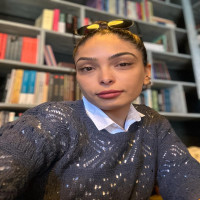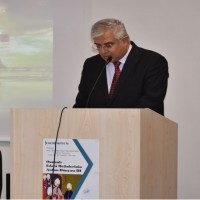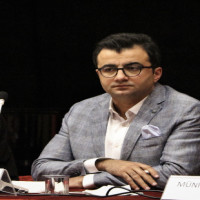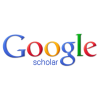Research Article
Issue Reviewers






Fethi DEMİR, 1977’de Tunceli’de doğdu. Dokuz Eylül Üniversitesi Buca Eğitim Fakültesi, Türk Dili ve Edebiyatı Bölümü’nü bitirdi. Van Yüzüncü Yıl Üniversitesi’nde “Mehmet Eroğlu’nun Romanlarında Tutunamayan Kahramanlar” konulu yüksek lisans, “Orhan Pamuk’un Romanları Üzerine Bir Araştırma” konulu doktora tezi hazırladı. Hâlen Van Yüzüncü Yıl Üniversitesi Eğitim Fakültesi’nde öğretim üyesi olarak çalışan Fethi Demir’in postmodernizm, poetika, çağdaş tiyatro edebiyatı, Yeraltı edebiyatı, minör edebiyat ve küresel edebiyat konusunda yayımlanmış kitapları, kitap bölümleri, makaleleri ile çeşitli seminerleri ve bildirileri bulunmaktadır. Aynı zamanda Hürriyet Gösteri, Türk Edebiyatı, Üvercinka, Evrensel Kültür, Yasak Meyve, Beyaz Gemi gibi dergilerde yazıları yayımlanan Demir, “Hayatlar, Dramlar, Komediler” adını verdiği teatral bir gösteriyi de sahnelemektedir. Yazarın ilk kitabı Orhan Pamuk’un Roman Dünyası, Alim Kitaplar tarafından; Türkiye’deki oyun yazarlığının güncel panoramasını içeren 1980 Sonrası Türk Tiyatro Edebiyatı ise 2016 yılında, Mitos Boyut Yayınları tarafından yayımlandı. Modern Türk edebiyatı tarihinin ilginç simalarından Faik Ali Ozansoy’un tiyatroları bağlamında hazırladığı Faik Ali Ozansoy’un Manzum Dramı: Pây-ı Tahtın Kapısında adlı araştırması ise yine aynı yıl Sosyal Yayınları tarafından basıldı. Fethi Demir’in bir diğer kitabı, 2022 yılında Kopernik Yayınları tarafından yayımlanan Yeraltı Edebiyatı adını taşımaktadır. Yazar, son olarak 2024 yılında Nahide Ece Uzunyol ile birlikte Küresel Edebiyat adlı bir kitap yayımladı. Fethi Demir, evli ve iki kız çocuğu babasıdır.
2011 yılından beri Dicle Üniversitesi'nde çalışıyor





 Web
Web

Yeni Türk Edebiyatı alanında 2020 yılında doktoramı almış bulunmaktayım. Hâlen daha bu alanda çalışmalar yapmaya devam etmekteyim.








ÖZGEÇMİŞ VE YAYIN LİSTESİ
PROF. DR. KEMAL TİMUR
Kahramanmaraş Sütçü İmam Üniversitesi
İnsan ve Toplum Bilimleri Fakültesi Türk Dili ve Edebiyatı Bölümü
Yeni Türk Edebiyatı Ana Bilim Dalı Başkanı
Özgeçmiş
1969 yılında Besni’nin Yazı Yalankoz Köyü’nde doğdu. 1987’de lise, 1993’te lisans, 1995’te yüksek lisans, 2001’de doktora öğrenimini tamamladı. 2003 yılında Erciyes Üniversitesi Yozgat Fen-Edebiyat Fakültesi Türk Dili ve Edebiyatı Bölümü, Yeni Türk Edebiyatı Anabilim Dalında Yrd. Doç. Dr. kadrosuna atandı. 9 Ocak 2009 tarihinde Doçent, 22 Temmuz 2014 tarihinde ise Prof. Dr. olarak ataması yapıldı. 2011 yılında üç ay Amerika Birleşik Devletleri Kuzey Texas Üniversitesinde (University of North Texas) çalıştı ve bazı araştırmalarda bulundu.
Akademik hayatında Dumlupınar Üniversitesi, Yozgat Bozok Üniversitesi, Dicle Üniversitesi, Düzce Üniversitesi ve Kahramanmaraş Sütçü İmam Üniversitesinde Yeni Türk Edebiyatı, Batı Edebiyatı, Edebi Akımlar, Şiir Tahlilleri, Türk Hikâyesi, Türk Romanı, Tenkit Tarihi, Tanzimat Devri Türk Edebiyatı, Servet-i Fünûn Dönemi Türk Edebiyatı, Tanzimat Dönemi Edebi Metinleri, Servet-i Fünûn Dönemi Edebi Metinleri, Metin Tahlilleri, Yeni Türk Edebiyatında Devirler ve Nesiller, Servet-i Fünûn Şiiri, Yeni Türk Edebiyatında Roman ve Hikâye Tahlilleri, Yeni Türk Edebiyatında Şiir Tahlilleri, Sosyal Değişim ve Roman, Yeni Türk Nesrinde Hikâye ve Romanın Gelişimi ve Günümüz Türk Şiiri derslerini yürüttü.
Kemal Timur, Türkiye’nin farklı illerinde Üniversitedeki görevi sırasında farklı öğrenci ve kesimlere Safahat atölyesi çerçevesinde Mehmet Akif ve Safahat Okumaları konusunda seminerler verdi. Yine çalıştığı farklı üniversitelerde Dekanlık, Dekan Yardımcılığı, Bölüm Başkanlığı, Senato Üyeliği, Üniversite Yönetim Kurulu Üyeliği ve Sosyal ve Beşeri Bilimler Etik Kurulu Üyeliği gibi görevlerde bulundu.
Yeni Türk Edebiyatı alanında kırk beş civarında öğrencinin Yüksek Lisans ve Doktora tezini yönetti. Edebiyat ve sanat alanında ulusal ve uluslararası dergilerde seksen civarında makalesi yayınlandı. Elli beş civarında radyo ve televizyon programında konuşmacı olarak yer aldı. Yaklaşık altmış kitap ve kitap bölümüne imza attı. Kırk civarında kitap ve dergide editörlük görevinde bulundu. Alanıyla ilgili altı farklı projede yürütücü olarak görev yaptı.
Evli ve üç çocuk babası olan Kemal Timur, Kahramanmaraş Sütçü İmam Üniversitesi, İnsan ve Toplum Bilimleri Fakültesi Türk Dili ve Edebiyatı Bölümündeki görevini sürdürmektedir.
Unvanı Prof. Dr.
Tel 0 505 292 11 27
e-mail kemaltimur@hotmail.com
Doğum Tarihi 05.04.1969
Bölümü Türk Dili ve Edebiyatı Bölümü
Ana Bilim Dalı Yeni Türk Edebiyatı Anabilim Dalı
Lisans Eğitim Fakültesi Türk Dili ve Edebiyatı Eğitimi 1993
Yüksek Lisans Türk Dili ve Edebiyatı Eğitimi Anabilim Dalı/Türk Edebiyatı Eğitimi Bilim Dalı 1995
Doktora Yeni Türk Edebiyatı Bilim Dalı 2001
Yard. Doç. Dr. Yeni Türk Edebiyatı Bilim Dalı 2003-2009
Doçent Türk Edebiyatı 9 Ocak 2009
Profesör Yeni Türk Edebiyatı Bilim Dalı 2014-2018
Profesör Türkçe Eğitimi Anabilim Dalı 12 Şubat 2018
Profesör Yeni Türk Edebiyatı Ana Bilim Dalı 20 Mayıs 2019...
YAYIN LİSTESİ
KİTAPLAR
1. Timur, K., Mekteb, Eğitim-Öğretim Dergisi (1891-1892), Sosyal Bilimler Enstitüsü Türk Dili ve Edebiyatı Eğitimi Anabilim Dalı, Türk Edebiyatı Eğitimi Bilim Dalı, Yüksek Lisans Tezi, 1995.
2. Timur, K., Türk Romanında Dinler ve İnançlar 1872-1896, Elips Yayınları, Ankara, 2006.
3. Timur, K., “Bir Ömür Boyu Kıbrıs Romanlarında Boyun Eğiş ve Hayır Deyişler”, Mustafa Necati Sepetçioğlu, Editör: Hülya ARGUNŞAH, 296-303, TC Kültür ve Turizm Bakanlığı Yayınları, Ankara, 2007.
4. Timur, K., “Romanlarında Eserlerinin Reklamını Yapan Bir Yazar: Ahmet Midhat Efendi”, Ahmet Midhat Efendi Kitabı, Editör: Mustafa ARMAĞAN, 61-71, Beykoz Belediyesi Kültür Yayınları, İstanbul, 2007.
5. Timur, K., Ömer Seyfettin’in Kaleminden Şair ve Yazarlar, Akademik Kitap Yayınları, İstanbul, 2010.
6. Timur, K., “Rasim Özdenören’in Öykülerinde Yabancılaşma”, Kitabın Adı: Medeniyetin Burçları: Rasim Özdenören Kitabı, Editörler: Ali DURSUN ve Turan KARATAŞ, Kayseri Memursen Kültür Hizmetleri Yayınları, Sayfa Sayısı: 496, Sayfa Aralığı 249-250, ISBN: 978-605-87792-0-4, Kayseri, 2011.
7. Timur, K., Meçhule Yolculuk Türk Romanında Sürgün, Akademik Kitap Yayınları, İstanbul, 2012.
8. Timur, K., “Ahmet Midhat Efendi’nin Romanlarında Din Adamları”, Ölümünün 100. Yılında Ahmet Mithat Efendi Sempozyumu Kitabı, (24-25 Aralık 2012, İstanbul); Yayına Hazırlayan: Prof. Dr. Kâzım YETİŞ, İstanbul Aydın Üniversitesi Yayınları 2013; s. 167-203; ISBN: 978-605-4303-23-6
9. Timur, K., Berdel Yazarı Esma Ocak Hayatı ve Eserleri, Akademik Kitap Yayınları, İstanbul, 2013, 479s.
10. Timur, K., Müşahedat, Yazarı: Ahmet Mithat Efendi, Tema Yayınları, Ankara, 2013.
11. Timur, K., Altın Aşıkları, Yazarı: Ahmet Mithat Efendi, Tema Yayınları, Ankara, 2013.
12. Timur, K., Doğumunun 100. Yılında Uluslararası Cahit Sıtkı Tarancı Sempozyumu Kitabı, Atatürk Kültür Merkezi Başkanlığı Yayınları, (07-09 Ekim 2010) Ankara 2013, ISBN: 978-975-16-2569-4, Sayfa Sayısı: 1113.
13. Timur, K., “Tek İhtirasım Güzel Şiirler Söylemektir: Cahit Sıtkı Tarancı”, 07-09 Ekim 2010 Doğumunun 100. Yılında Uluslararası Cahit Sıtkı Tarancı Sempozyumu, Atatürk Kültür Merkezi Başkanlığı Yayınları, ISBN: 978-975-16-2569-4; s. 97-118, Ankara 2013.
14.Timur, K., Sezai Karakoç Sempozyum Bildirileri Kitabı, Uluslararası Sezai Karakoç Sempozyumu (12-14 Nisan 2012 Diyarbakır), Atatürk Kültür Merkezi Başkanlığı Yayınları, Ankara 2014, ISNB: 978-975-16-2947-0, Sayfa sayısı: 351.
15. Timur, K., Dürdâne Hanım, Yazarı: Ahmet Mithat Efendi, Tema Yayınları, Ankara, Ekim 2016.
16. Timur, K., Paris’te Bir Türk, Yazarı: Ahmet Mithat Efendi, Tema Yayınları, Ankara, Eylül 2017.
17. Timur, K., Hüseyin Fellah, Yazarı: Ahmet Mithat Efendi, Tema Yayınları, Ankara, Eylül 2017.
18. Timur, K., Felatun Bey ile Rakım Efendi, Yazarı: Ahmet Mithat Efendi, Tema Yayınları, Ankara, Eylül 2017.
19. Timur, K., “Diyarbakırlı Bir Kadın Yazar: Esma Ocak”, Diyarbekir’de İz Bırakanlar Kitabı, Kitabın Yazar ve Editörü: İbrahim EVİRGEN, s. 213-221, Yelkovan Yayınları, Ankara, 2017.
20. Timur, K., “Avrupa’da Bir Cevelan’ın Muhayyel Mukaddimesi: Paris’te Bir Türk”, Avrupa Macerasının Erken Dönem Bir Örneği Avrupa’da Bir Cevelan, Kitabın Editörü: Selim SOMUNCU, s. 23-40, Manas Yayınları, Ankara, 2018.
21. Timur, K., Kitap Adı: Postmodern Zamanın Metal Şairi Murathan Mungan’ın Şiirlerinde Postmodernizmin İzinde, Kitabın Editörleri: Prof. Dr. Kemal TİMUR, Fatih Atik, Akademik Kitaplar Yayınları, İstanbul, 2018, ISBN: 978-605-9786-26-3; Kitabın Toplam Sayfası: 384.
22. Timur, K., "Mâzî'den Âtî'ye Bir Seyahat: Hocam Prof. Dr. Kâzım Yetiş'e Dair Bazı Hatıralar" Prof. Dr. Kâzım Yetiş Armağanı", Kitabın Editörleri: Prof. Dr. Zeki Taştan, Prof. Dr. Ali Şükrü Çoruk, Arş. Gör. Bilal Demir, s. 91-104, Hiperyayın, İstanbul, 2019.
23. Timur, K., Kitap Bölümü: "Edebî Eserlerin Temel Özellikleri ve Edebî Dilin Niteliği (Nesir/Nazım)" Kitap Adı: Edebiyat Bilgi Ve Kuramları I (Edebiyat Bilimi, Kavramlar, Eserler, Dönemler, Kuramlar, Topluluklar, Türler, Akımlar, Sanatlar), Kitabın Editörleri: Prof. Dr. Ahmet Mermer, Prof. Dr. Yavuz Bayram, s. 8-19, Nobel Yayınları, Ankara, 2019, ISBN: 978-605-033-151-6; Kitabın Toplam Sayfası: 207
24. Timur, K., Kitap Bölümü: "Tanzimat Sonrası Türk Edebiyatında Ortaya Çıkan Edebî Topluluklar ve Sanat Anlayışları" Kitap Adı: Edebiyat Bilgi Ve Kuramları I (Edebiyat Bilimi, Kavramlar, Eserler, Dönemler, Kuramlar, Topluluklar, Türler, Akımlar, Sanatlar), Kitabın Editörleri: Prof. Dr. Ahmet Mermer, Prof. Dr. Yavuz Bayram, s. 65-71, Nobel Yayınları, Ankara, 2019; ISBN: 978-605-033-151-6; Kitabın Toplam Sayfası: 207
25. Timur, K., Kitap Bölümü: "Münekkit Yönüyle Ömer Seyfettin" Kitap Adı: Sonsuzluğa Uzanan Ses: Ömer Seyfettin, Kitabın Editörleri: Prof. Dr. Hülya Argunşah, Prof. Dr. Abdullah Şengül, Dr. Murat Gür, Sayfa Aralığı: 42-51, Dergah Yayınları, İstanbul 2020; ISBN: 978-625-7005-94-4; Kitabın Toplam Sayfası: 660.
26. Timur, K., Acayib-i Âlem, Yazarı: Ahmet Mithat Efendi, Tema Yayınları, Ankara 2019. ISBN: 978-605-121-573-0; Kitabın Toplam Sayfası: 352
27. Timur, K., Kitap Bölümü: "Milli ve Manevi Değerler Hususunda Duyarlı Bir Şair Abdürrahim Karakoç ve Şehadet Duygusu" Kitap Adı: Türk Şiirinde Şehadet, Kitabın Editörleri: Prof. Dr. Önder GÖÇGÜN, Prof. Dr. Zeki TAŞTAN, Prof. Dr. Kemal TİMUR, Sayfa Aralığı: 267-291, Kesit Yayınları, İstanbul, 2021, ISBN: 978-625-7698-25-2; Kitabın Toplam Sayfası: 368
28. Timur, K., Kitap Bölümü: "İstiklal Marşını Anma Programları Çerçevesinde İnandıklarını Yaşayan Samimi İnsan Akif" Kitap Adı: Sırat-ı Müstakim/Sebilürreşad Dergisi ve Mehmet Âkif Ersoy, Kitabın Editörü: Doç. Dr. Ali KURT, Sayfa Aralığı: 270-284, Gölcük Belediyesi Yayınları, Kocaeli, 2021, ISBN: 978-605-83339-2-5; Kitabın Toplam Sayfası: 302
29. Timur, K., Kitap Bölümü: "Türkiye ve Ukrayna Milli Marşları", Kitap Adı: 100 Ülke 100 Marş İstiklal Marşı, Editörler: Prof. Dr. Birol EMİL, Prof. Dr. Zeki TAŞTAN, Sayfa Aralığı: 549-555, Kesit Yayınları, İstanbul 2021, ISBN: 978-625-7698-41-2; Kitabın Toplam Sayfası: 720
30. Timur, K., Kitap Bölümü: "İsmiyle Müsemma Zarif, Arif ve Mümtaz Bir Şair: Arif EREN" Kitap Adı: Bütün Yönleriyle Mümtaz Bir Şair Arif Eren, Kitabın Editörleri: Prof. Dr. Kemal TİMUR, Hatice EĞİLMEZ KAYA, Sayfa Aralığı: 17-34, Kesit Yayınları, İstanbul, 2021, ISBN: 978-625-7698-39-9; Kitabın Toplam Sayfası: 239
31. Timur, K., Kitap Bölümü: "İstiklal Marşını Değiştir (eme) me Teşebbüsleri” Kitap Adı: Mehmet Akif ve İstiklal Marşı Kitabın Editör: Prof. Dr. Hakan YEKBAŞ, Sayfa aralığı: 65-72, Sivas Cumhuriyet Üniversitesi Yayını, Sivas, 2021, ISBN: 978-605-7902-53-5; Kitabın Toplam Sayfası: 131
32. Timur, K., Kitap Bölümü: "Bir Karakter Abidesi ve Samimi Bir İnsan Olan Akif’in Rahat Zamanların Sahte Kahramanları Tarafından Dışlanması” Kitap Adı: Safahat Şairi Mehmet Akif Ersoy, Kitabın Editörleri: Yazar Duran Boz ve Doç. Dr. Selim Somuncu, Sayfa aralığı: 25-31, Kahramanmaraş Büyükşehir Belediyesi Kültür Yayınları Kültür Yayınları Serisi 125, Kahramanmaraş, Haziran 2022, ISBN: 978-605-73882-6-1; Kitabın Toplam Sayfası: 288
33. Timur, K., Kitap Bölümü: "Zaman ve Mekân Bağlamında Kahramanmaraş ve Şair Abdurrahim Karakoç” Kitap Adı: Maraş Araştırmaları 3, Kitabın Editörleri: Prof. Dr. İbrahim SOLAK ve Dr. Öğr. Üyesi Samet ALIÇ, Sayfa Aralığı: 435-446, Kahramanmaraş Büyükşehir Belediyesi Kültür Yayınları Kültür Yayınları Serisi 133, Kahramanmaraş, Eylül 2022, ISBN: 978-625-8414-36-3; Kitabın Toplam Sayfası: 483
34. Timur, K., Vah, Yazarı: Ahmet Mithat Efendi, Tema Yayınları, Ankara, Eylül 2022, ISBN: 978-605-121-732-1; Kitabın Toplam Sayfası: 238.
35. Timur, K., Gönüllü, Yazarı: Ahmet Mithat Efendi, Tema Yayınları, Ankara, Ağustos 2022, ISBN: 978-605-121-729-1; Kitabın Toplam Sayfası: 223.
36. Timur, K., Eski Mektuplar, Yazarı: Ahmet Mithat Efendi, Tema Yayınları, Ankara, Ağustos 2022, ISBN: 978-605-121-703-1; Kitabın Toplam Sayfası: 207.
37. Timur, K., Bahtiyarlık, Yazarı: Ahmet Mithat Efendi, Tema Yayınları, Ankara, Temmuz 2022, ISBN: 978-605-121-722-2; Kitabın Toplam Sayfası: 94.
38. Timur, K., Dünyaya İkinci Geliş Yahut İstanbul’da Neler Olmuş, Yazarı: Ahmet Mithat Efendi, Tema Yayınları, Ankara, Temmuz 2022, ISBN: 978-605-121-572-3; Kitabın Toplam Sayfası: 151.
39. Timur, K., Diplomalı Kız, Yazarı: Ahmet Mithat Efendi, Tema Yayınları, Ankara, Temmuz 2022, ISBN: 978-605-121-704-8; Kitabın Toplam Sayfası: 111.
40. Timur, K., Demir Bey yahut İnkişaf-ı Esrar, Yazarı: Ahmet Mithat Efendi, Tema Yayınları, Ankara, 2022, ISBN: 978-605-121-629-4; Kitabın Toplam Sayfası: 352.
41. Timur, K., Cinli Han, Yazarı: Ahmet Mithat Efendi, Tema Yayınları, Ankara, 2022, ISBN: 978-605-121-622-5; Kitabın Toplam Sayfası: 80
42. Timur, K., Fenni Bir Roman yahut Amerikan Doktorları, Yazarı: Ahmet Mithat Efendi, Tema Yayınları, Ankara, 2022, ISBN: 978-605-121-623-2; Kitabın Toplam Sayfası: 112.
43. Timur, K., Jön Türk, Yazarı: Ahmet Mithat Efendi, Tema Yayınları, Ankara, 2022, ISBN: 978-605-121-563-1; Kitabın Toplam Sayfası: 232.
44. Timur, K., Mesail-i Muğlaka, Yazarı: Ahmet Mithat Efendi, Tema Yayınları, Ankara, 2022, ISBN: 978-605-121-707-9; Kitabın Toplam Sayfası: 160.
45. Timur, K., Hasan Mellah yahut Sır İçinde Esrar, Yazarı: Ahmet Mithat Efendi, Tema Yayınları, Ankara, 2022, ISBN: 978-605-121-533-4; Kitabın Toplam Sayfası: 848.
46.Timur, K., Karnaval, Yazarı: Ahmet Mithat Efendi, Tema Yayınları, Ankara, 2022, ISBN: 978-605-121-717-8; Kitabın Toplam Sayfası: 352.
47. Timur, K., Gürcü Kızı yahut İntikam, Yazarı: Ahmet Mithat Efendi, Tema Yayınları, Ankara, 2022, ISBN: 978-605-121-730-7; Kitabın Toplam Sayfası: 232.
48. Timur, K., Rikalda yahut Amerika’da Vahşet Âlemi, Yazarı: Ahmet Mithat Efendi, Tema Yayınları, Ankara, 2022, ISBN: 978-605-121-710-9; Kitabın Toplam Sayfası: 296.
49. Timur, K., Çengi, Yazarı: Ahmet Mithat Efendi, Tema Yayınları, Ankara, 2022, ISBN: 978-605-121-632-4; Kitabın Toplam Sayfası: 192.
50. Timur, K., Esrar-ı Cinayat, Yazarı: Ahmet Mithat Efendi, Tema Yayınları, Ankara, 2022, ISBN: 978-605-121-727-7; Kitabın Toplam Sayfası: 288.
51. Timur, K., Taaffüf, Yazarı: Ahmet Mithat Efendi, Tema Yayınları, Ankara, 2022, ISBN: 978-605-121-733-8; Kitabın Toplam Sayfası: 128.
52. Timur, K., Kitap Bölümü: "Kelimeler Diyarından Gelen Bilge Bir Ses: Sezai Karakoç (Sanat - Sanatçı - Şair) (2)" Kitap Adı: İman, Duruş ve Diriliş: Sezai Karakoç, Kitabın Editörleri: Mahmut Hakkı Akın ve Yunus Şahbaz, Sayfa Aralığı: 105-119, Kadim Yayınları, Ankara, 2022; ISBN: 978-605-7629-78-4; Kitabın Toplam Sayfa sayısı: 280
53. Timur, K., Kitap Bölümü: "Kelimeler Diyarından Gelen Bilge Bir Ses: Sezai Karakoç (Sanat - Sanatçı - Şair) (1)" Kitap Adı: Tüm Yönleriyle Sezai Karakoç
Edebiyat Düşüncesi, Kitabın Editörleri: Doç. Dr. Kemal Şamlıoğlu, Prof. Dr. Ahmet Tanyıldız, Doç. Dr. Mustafa Uğurlu Arslan, Öğr. Gör. Mümtaz Korkutan, Sayfa Aralığı: 165-177, Ekin Yayınevi, Bursa, 2022; ISBN: 978-625-6952-11-9; Kitabın Toplam Sayfa sayısı: 312.
54. Timur, K., Kitap Bölümü: “Sezai Karakoç’un Hatıralarındaki Necip Fazıl Bey - 1" Kitap Adı: Necip Fazıl Kısakürek, Kitabın Editörleri: Prof. Dr. Mitat DURMUŞ, Prof. Dr. Mustafa KARABULUT, Sayfa Aralığı: 161-172, Ihlamur Ekin Yayınevi, İstanbul, 2023; ISBN: 978-605-73567-7-2; Kitabın Toplam Sayfa sayısı: 351.
55. Timur, K., Kitap Adı: Öykülerde Gizlenen Bir Hayat: ESMA OCAK, Kitabın Editör: Doç. Dr. Özkan CİĞA, DBY Yayınları (Sertifika No: 52315, İstanbul, 2023; ISBN: 978-625-6769-20-5; Kitabın Toplam Sayfası: 236.
56. Timur, K., Kitap Bölümü: "Zamanın Ruhunu Kavrayan Usta Bir Şair: Arif Eren” Kitap Adı: Maraş Araştırmaları 4, Kitabın Editörleri: Prof. Dr. İbrahim SOLAK ve Doç. Dr. Samet ALIÇ, Sayfa Aralığı: 361-372, Kahramanmaraş Büyükşehir Belediyesi Kültür Yayınları Kültür Yayınları Serisi 134, Kahramanmaraş, Eylül 2023, ISBN: 978-625-6775-06-0; Kitabın Toplam Sayfası: 372
57. Timur, K., Kitap Bölümü: "Cumhuriyet Aydını Bir Kadın Yazar: Esma Ocak” Kitap Adı: Cumhuriyet'in 100. Yılında 100 Türk Yazar, Kitabın Editörleri: Elmas ŞAHİN ve Kadir Can DİLBER, Sayfa Aralığı: 185-191, Akademisyen Yayınları, Ankara, 2023, ISBN: 978-625-399-553-9; Kitabın Toplam Sayfası: 742.
58. Timur, K., Kitap Bölümü: "Taşrada Kaleme Alınan Tarihi Bir Roman: Münire” Kitap Adı: Cumhuriyet'in 100. Yılında Yeni Türk Edebiyatı İncelemeleri Prof. Dr. Hülya Eraydın Argunşah Armağanı, Kitabın Editörleri: Dilek Çetindaş, Duygu Oylubaş Katfar, Bülent Sayak, Sayfa Aralığı: 253-272, Kapadokya Üniversitesi Yayınları, Ankara 2024, ISBN: 978-605-4448-86-9; Kitabın Toplam Sayfası: 854.
59. Timur, K., Kitap Adı: Hayatını Şiire Adayan Bir Ses: Arif Eren, Kahramanmaraş Büyükşehir Belediyesi Kültür Yayınları 2024, Sertifika No: 43937, ISBN: 978-625-94644-4-2; Kitabın Toplam Sayfası: 421.
60. Timur, K., Kitap Bölümü: "Bir Felaketin Ardından Satırlara Yansıyanlar” Kitap Adı: Maraş Araştırmaları 5 (Deprem Özel), Kitabın Editörleri: Prof. Dr. İbrahim SOLAK; Doç. Dr. Samet ALIÇ, Doç. Dr. Mustafa Edip ÇELİK, Sayfa Aralığı: 215-235, Nobel Akademik Yayıncılık, Yayın No.: 5706, Ankara, Kasım 2024, ISBN: 978-625-371-920-3; E-ISBN: 978-625-371-921-0; Kitabın Toplam Sayfası: 260.
ULUSLARARASI HAKEMLİ DERGİLERDE YAYINLANMIŞ MAKALELER
1. Timur, K., “Romanlarında Eserlerinin Reklamını Yapan Bir Yazar: Ahmet Midhat Efendi”, Türk Dili, 634, 401-412 (2004).
2. Timur, K., “Amin Maalouf’un “Doğunun Limanları” Romanında Orta Doğu Sorununa Çözüm Önerileri”, Türk Dili, 635, 698-709, (2004).
3. Timur, K., “Ülkü Mecmuası ve Şiirlerin Diliyle Atatürk”, Atatürk Üniversitesi Türkiyat Araştırmaları Enstitüsü Dergisi, 28, 177-198, (2005).
Timur, K., “Ülkü Dergisinde Yayınlanan Atatürk Konulu Şiirler” Türklük Bilimi Araştırmaları, ISSN: 1300-7874, S.17, 2005, ss.177-203.
Link: https://www.acarindex.com/turkluk-bilimi-arastirmalari/ulku-dergisinde-yayinlanan-ataturk-konulu-siirler-968833
4. Timur, K., “Süleyman Muslî ve Semerkant Romanlarında Batınilik ve Hasan Sabbah”, Atatürk Üniversitesi Türkiyat Araştırmaları Enstitüsü Dergisi, 31, 217-232, (2006).
5. Timur, K., “Ömer Seyfettin’e Göre Klasik Türk Edebiyatı Divan Şairleri ve Yeni Türk Edebiyatı”, Türk Dili, 666, 529-540, (2007).
6. Timur, K., “Tanzimat Dönemi Türk Romanında Din Duygusu ve İnançlar”, Turkish Studies, 4, (2009).
7. Timur, K., “İki Münevverin Dostluğu: Peyami Safa - Cahit Sıtkı”, Erdem Dergisi, Peyami Safa Özel Sayısı, Erdem Atatürk Kültür Merkezi Dergisi, E-ISSN: 2667-8713, Yıl: 27, Sayı: 62, Sayfa 223-236, Nisan (2012).
8. Timur, K., “Mithat Cemal Kuntay'ın Gözüyle Mehmet Akif", Dicle Üniversitesi Sosyal Bilimler Enstitüsü Dergisi, ISSN: 1308-6219, Yıl 6, Sayı 11, Sayfa 53-78, Nisan (2014).
9. Timur, K., “Sıradışı Yönleriyle Diyarbakır'ın Birkaç Zirve Şahsiyeti", Dicle Üniversitesi Sosyal Bilimler Enstitüsü Dergisi, Özel Sayı, Yıl 8, Sayı 15/1 , Sayfa 220-242, Nisan (2016).
10. Timur, K., “Kaliteli Eğitim, Edebiyat, Felsefe ve Bir Roman: Diplomalı Kız", Dicle Üniversitesi Sosyal Bilimler Enstitüsü Dergisi, Yıl 8, Sayı 15/2 , Sayfa 365-376, Nisan (2016).
11. Timur, K., Ulaş BİNGÖL, “Postmodern Şiir Nedir?" TEKE Uluslararası Türkçe Edebiyat Kültür Eğitim Dergisi, E-ISSN 2147-0146 Yıl 5, Sayı 5/3, Sayfa: 1288-1304, Türkiye (2016).
12. Timur, K., “Kural Tanımayan Bir İdeoloji: Postmodernizm” HİKMET - Akademik Edebiyat Dergisi (Journal Of Academic Literature), ISSN: 2458 – 8636, Yıl 3, Sayfa: 1-9, Gelenek ve Postmodernizm Özel Sayısı, Türkiye (2017).
13. Timur, K., “Bilinmez Diyarın Garîb Misafiri: Sürgün ve Bireye Etkisi” HİKMET - Akademik Edebiyat Dergisi (Journal Of Academic Literature), Yıl 3, Sayı: 7, Sayfa: 26-34, Güz 2017.
14. Timur, K., “Üniversite Yarasını Deşmek” Necip Fazıl ve Büyük Doğu Perspektifiyle Tarlan-Karahan Meselesi” HİKMET - Akademik Edebiyat Dergisi (Journal Of Academic Literature), Yıl 4, Ali Nihat Tarlan Özel Sayısı, Sayfa: 57-74, Türkiye (Aralık 2018).
15. Timur, K., “Tanzimat’tan Millî Edebiyata Tenkit” HİKMET - Akademik Edebiyat Dergisi (Journal Of Academic Literature), Yıl 5, Sayı: 10, Sayfa: 1-11, Bahar 2019.
16. Timur, K., “Bir Romancının Gözüyle Ortadoğu’yu Şekillendiren Milletler” Kahramanmaraş Sütçü İmam Üniversitesi Sosyal Bilimler Dergisi, Yıl: 17, Cilt: 17, Sayı: 1, Sayfa: 179-194, Yayınlanma Tarihi: 30 Nisan 2020; Doi: 10.28981/hikmet.902850; ORCID: https://orcid.org/0000-0002-3116-7087; E-ISSN: 2149-2786,
Link: https://dergipark.org.tr/tr/pub/ksusbd/issue/54069/690228
17. Timur, K., “İlim Kubbesinde Bâkî Kalan Bir Hoş Sadâ Prof. Dr. M. Orhan Okay” HİKMET - Akademik Edebiyat Dergisi (Journal Of Academic Literature), Yıl 6, Prof. Dr. M. Orhan Okay Özel Sayısı, Sayfa: 1-8, Türkiye (Aralık 2020), Doi: 10.28981/hikmet.902850, ORCID: https://orcid.org/0000-0002-3116-7087: ISSN: 2458 – 8636, Link: https://dergipark.org.tr/tr/download/article-file/1409941
18. Timur, K., Topçu, Ömer, “Hikâye ve Roman Yazarı Esma Ocak’ta Feminizm” HİKMET - Akademik Edebiyat Dergisi (Journal Of Academic Literature), Yıl 7, Sayı 14, Sayfa: 297-314, Türkiye (Bahar 2021) Doi: 10.28981/hikmet.902850, ORCID: https://orcid.org/0000-0002-3116-7087, ISSN: 2458-8636, Doi: 10.28981/hikmet.902850,
Link: https://dergipark.org.tr/tr/download/article-file/1660896
19. Timur, K., Önal, Gökhan, “Kuzguncuk Oteli” Şiiri Merkezinde Haydar Ergülen’in Poetikasında Mekân ve Şehir İmgesi” Edebî Eleştiri Dergisi, Yıl 5, Cilt 5, Sayı 2, Sayfa: 351-370, Türkiye (Ekim 2021) Orcid: 0000-0002-3116-7087, ISSN: 2602-4616, Doi: 10.31465/eeder.911094,
Link: https://dergipark.org.tr/tr/pub/eeder/issue/65638
20. Timur, K., “Sultan II. Abdülhamit Döneminde Okul Vazifesi Gören Bir Mecmua: “Mektep” Edebî Eleştiri Dergisi, Yıl 5, Sayı: Takvîm-i Vekâyi'den 1928 Yılına Süreli Yayınlar ve Edebiyat Özel Sayısı, Sayfa Aralığı: 45-55, Türkiye (Aralık 2021), Orcid: 0000-0002-3116-7087, e-ISSN: 2602-4616, Doi: 10.31465/eeder.1005731 Link: https://dergipark.org.tr/tr/pub/eeder/issue/67467
21. Timur, K., Lokman Sarı, “Şiirleriyle Renklere Bürünmüş Bir Şair: Özdemir Asaf” Iğdır Üniversitesi Sosyal Bilimler Dergisi, Yıl: 14, Cilt Sayı 30, Sayfa Aralığı: 208-221., Türkiye (Bahar 2022) Doi: 0000-0002-3116-7087, E-ISSN: 2147-6152, DOI: https://doi.org/10.54600/igdirsosbilder.1074301;
Erişim Linki: https://dergipark.org.tr/tr/pub/igdirsosbilder/issue/69999
22. Timur, K., “ŞAİRİN ÖNGÖRÜSÜ: SEZAİ KARAKOÇ (Üçüncü Dünya Savaşı - Ukrayna Rus Savaşı)” Dicle Üniversitesi Sosyal Bilimler Dergisi, Yıl: 14, Cilt Sayı 31, Sayfa Aralığı: 262 - 269., Türkiye (Ekim 2022) Doi: 0000-0002-3116-7087, ISSN: 1308-6219, ORCID: 0000-0002-3116-7087;
Erişim Linki: https://dergipark.org.tr/tr/download/article-file/2545375
23. Timur, K. ve Bulut, Feyza, AHMET MİDHAT EFENDİ’NİN SEYAHATNÂMELERİNDEN: “SAYYADANE BİR CEVELAN” International Journal of Filologia (IJOF), Yıl: 6, Cilt Sayı 9, Sayfa Aralığı: 1-14., Türkiye (30.06.2023) Doi: https://doi.org/10.51540/ijof.1309657, ISSN: : 2667-7318, ORCID: 0000-0002-3116-7087; Erişim Linki: https://dergipark.org.tr/tr/pub/ijof/issue/78432/1309657
ULUSAL HAKEMLİ DERGİLERDE YAYINLANMIŞ MAKALELER
1. Timur, K., “Ahmet Midhat Efendi’nin “Arnavutlar Solyotlar” Adlı Romanında Hızır-İlyas Günleri ve Nevruz Bayramı”, İstanbul Üniversitesi Edebiyat Fakültesi Türk Dili ve Edebiyatı Dergisi, XXXI, 337-343, (2004). E-ISSN: 2458 – 8636; Link:
2. Timur, K., “İstanbul’un İç Yüzü” ve “Üç İstanbul” Romanlarından İnsan Manzaraları”, İlmî Araştırmalar Dil ve Edebiyat İncelemeleri Dergisi, 18, 103-122, (2004).
3. Timur, K., “İstanbul’un İç Yüzü” ve “Üç İstanbul” Romanlarında İnsan, Mekân ve Siyaset”, Erciyes Üniversitesi Sosyal Bilimler Enstitüsü Dergisi, E-ISSN: 2757-7031 18, 93-109, (2005).
4. Timur, K., “Diyarbakırlı Bir Kadın Yazar: Esma Ocak", Değirmen Edebiyat ve Düşünce Dergisi, Diyarbakır Özel Sayısı, Yıl 10, Sayı 37-38, Sayfa 239-256, Temmuz-Aralık, (2013).
5. Timur, K., “Prof. Dr. Orhan Okay Hocamıza Rahmet Dilerken", TYB Akademi Dil Edebiyat ve Sosyal Bilimler Dergisi Orhan Okay Özel Sayısı, Yıl 8, Sayı 22, Sayfa: 159-165, Ocak (2018). (Ulusal Hakemli Dergi)
6. Timur, K., “Eğitimin Temeli Kaliteli ve Nitelikli Öğretmen Yetiştirmektir 1", Maarifinsesi Web Sitesi, 06.05.2024 12:00, Link: https://www.maarifinsesi.com/egitimin-temeli-kaliteli-ogretmen-yetistirmektir/
7. Timur, K., “Eğitimin Temeli Kaliteli ve Nitelikli Öğretmen Yetiştirmektir 2", Maarifinsesi Web Sitesi, 13.05.2024 14:00, Link: https://www.maarifinsesi.com/egitimin-temeli-kaliteli-ve-nitelikli-ogretmen-yetistirmektir/
8. Timur, K., “Eğitim Öğretim Bağlamında Ahmet Mithat Efendi ve Diplomalı Kız” Romanı-1-", Maarifinsesi Web Sitesi, 25.05.2024 Saat: 18:59, Link: https://www.maarifinsesi.com/egitim-ogretim-baglaminda-ahmet-mithat-efendi-ve-diplomali-kiz-romani-1/
9. Timur, K., “Eğitim Öğretim Bağlamında Ahmet Mithat Efendi ve Diplomalı Kız” Romanı-2-", Maarifinsesi Web Sitesi, 11.06.2024 Saat: 06:41, Link: https://www.maarifinsesi.com/egitim-ogretim-baglaminda-ahmet-mithat-efendinin-diplomali-kiz-romani-2/
10. Timur, K., “Okumak… Derinleşmek… Olgunlaşmak…”, Maarifinsesi Web Sitesi, 23.07.2024 Saat: 17:12, Link: https://www.maarifinsesi.com/okumak-derinlesmek-olgunlasmak/
11. Timur, K., “Tarih Hep Tekerrür Ediyor”, Maarifinsesi Web Sitesi, 10.08.2024 18:19,
Link: https://www.maarifinsesi.com/tarih-hep-tekerrur-ediyor/
12. Timur, K., “Ortadoğu’daki Olayların Çözüm Şifrelerini Elinde Tutan Bir Millet: Türkler -1-”, Maarifinsesi Web Sitesi, 11.11.2024 10:00,
Link: https://www.maarifinsesi.com/ortadogudaki-olaylarin-cozum-sifrelerini-elinde-tutan-bir-milletturkler-1/
13. Timur, K., “Batılılaşma Süreci ve Ahmet Midhat Efendi", BERDÜCESİ Mevsimlik Kültür, Edebiyat ve Sanat Dergisi, Kahramanmaraş Büyükşehir Belediyesi Dergisi, ISSN: 3023-6339, Yıl 5, Sayı: Güz 11, Sayfa 40-44, Güz 2024.
14. Timur, K., “Ortadoğu’daki Olayların Çözüm Şifrelerini Elinde Tutan Bir Millet: Türkler -2-”, Maarifinsesi Web Sitesi, 16.12.2024 14:06,
Link: https://www.maarifinsesi.com/orta-dogudaki-olaylarin-cozum-sifrelerini-elinde-tutan-bir-millet-turkler-2/
ULUSAL VE ULUSLARARASI BİLDİRİLER
1. Timur, K., “Ömer Seyfettin’in Siyasi Makalelerinde Mefkure” Ölümünün 85. Yılında Ömer Seyfettin’i Anma Toplantısı, Erciyes Üniversitesi Yayınları, 245-274, Kayseri, 2006.
2. Timur, K., “Boşluğa Takıl(may)an Bir Ses: Abbas Sayar”, I. Uluslararası Bozok Sempozyumu, 13-14 Mayıs 2006, Yozgat.
3. Timur, K., “Münevver Ayaşlı Örneğinde Roman Yazarının Tarihe Tanıklığı”, II. Kayseri ve Yöresi Kültür, Sanat ve Edebiyat Bilgi Şöleni, Erciyes Üniversitesi Yayınları No: 155, 589-608, Kayseri 2007.
4. Timur, K., “Hece Aruz Tartışmaları Karşısında Yahya Kemal”, 03-07 Kasım 2008 Bir Medeniyeti Yorumlamak, Yahya Kemal Sempozyumu, İstanbul Fetih Cemiyeti Yayınları, No: 108, 285-292, İstanbul 2008.
5. Timur, K., “Tek İhtirasım Güzel Şiirler Söylemektir: Cahit Sıtkı Tarancı”, 07-09 Ekim 2010 Doğumunun 100. Yılında Uluslararası Cahit Sıtkı Tarancı Sempozyumu, Atatürk Kültür Merkezi Başkanlığı Yayınları, s. 97-118, Ankara 2013.
6. Timur, K., “Mithat Cemal Kuntay’ın Gözüyle Mehmet Akif”, İstiklal Marşı'nın Kabulünün 90. Yılında Mehmet Akif Ersoy ve İstiklal Marşı'na Genç Bakışlar Ulusal Öğrenci Sempozyumu (10-12 Mart 2011, Bartın)
7. Timur, K., “İki Münevverin Dostluğu: Peyami Safa - Cahit Sıtkı”, Ölümünün 50. Yılında Fikir ve Sanat Adamı Peyami Safa Sempozyumu, (18-20 Nisan 2011, İstanbul)
8. Timur, K., “Ahmet Midhat Efendi’nin Romanlarında Din Adamları”, Ölümünün 100. Yılında Ahmet Mithat Efendi Sempozyumu Kitabı, (24-25 Aralık 2012, İstanbul); Yayına Hazırlayan: Prof. Dr. Kâzım YETİŞ, İstanbul Aydın Üniversitesi Yayınları 2013; s. 167-203; ISBN: 978-605-4303-23-6
9. Timur, K., “Fizikötesi Yaşantılı Bir Kazazede: Sanat ve Sanatçı”, Uluslararası Sezai Karakoç Sempozyumu (12-14 Nisan 2012 Diyarbakır), Atatürk Kültür Merkezi Başkanlığı Yayınları, Ankara 2014, s. 61-83.
10. Timur, K., “Dîvânu Lugati’t-Türk’ün Keşfini Tiyatroya Döken Bir Kadın Yazar: Esma OCAK”, Alî Emîrî Hatırasına Uluslararası VIII. Klâsik Türk Edebiyatı Sempozyumu Diyarbakır Valiliği Kültür Sanat Yayınları (Kasım 2014, s. 411-431 Diyarbakır).
11. Timur, K., “Mazlumun Yanında Yer Alan Bir Şair: Necip Fazıl”, Uluslararası Necip Fazıl Kısakürek Sempozyumu (23-25 Mayıs 2013, Kahramanmaraş)
12. Timur, K., “Sıradışı Yönleriyle Diyarbakır'ın Birkaç Zirve Şahsiyeti”, Said Paşa ve Süleyman Nazif Sempozyumu (26-27 Mart 2015, Diyarbakır)
13. Timur, K., “Eğitim Felsefesi Bağlamında Diplomalı Kız Romanı”, Felsefe Edebiyat Sempozyumu (29-30 Nisan 2015, Van)
14. Timur, K., “Bilinmez Diyarların Garîb Misafirleri: Edebiyatta Göç ve Sürgün Üzerine”, 2. Uluslararası Göç ve Mülteci Kongresi (6-8 Aralık 2018, Düzce/Türkiye), Düzce Üniversitesi Yayınları, Eylül 2019, e-ISBN: 978-605-81938-6-0; Sayfa Aralığı: 324-349.
15. Timur, K., “İstiklal Marşını Anma Programları Çerçevesinde İnandıklarını Yaşayan Samimi İnsan Akif”, Sırat-ı Müstakim - Sebilürreşad ve Mehmet Akif Sempozyumu (27 Aralık 2020, Kocaeli/Gölcük, Gölcük Belediyesi Yayını, İstanbul 2021, ISBN: 978-605-83339-2-5; Sayfa Aralığı: 270-284
16. Timur, K., “Akif ve İstiklal Marşının Anlam Dünyası” Kütahya Dumlupınar Üniversitesi Lisansüstü Öğrenci Sempozyumu, 11/03/2021; Saat 14: 30; Zoom Üzerinden Yapıldı, Programın Linki: https://youtu.be/X27nsj3my2M
17. Timur, K., “İstiklal Marşını Değiştir(eme)me Teşebbüsleri” İstiklal Marşı’nın 100. Yılı Anısına Sivas Cumhuriyet Üniversitesi Mehmet Akif ve İstiklal Marşı Sempozyumu, 31/05/2021; Saat 13: 00; Zoom Üzerinden Yapıldı, Programın Linki: Mehmet Âkif ve İstiklâl Marşı Sempozyumu: II. Oturum - YouTube
18. Timur, K., “Ahmet Midhat Efendi’nin Seyahatnâmelerinden: “Sayyadane Bir Cevelan” Kütahya Dumlupınar Üniversitesi Lisansüstü Eğitim Enstitüsü Akademide Üç Kuşak Bilim, Kültür ve Sanat Sempozyumu, 25/11/2021; Saat 14: 45; Zoom Üzerinden Yapıldı, Programın Linki: https://youtu.be/g8-XhC2wYes
19. Timur, K., “Rus ve Türk Edebiyatında Ortak Yönler ve Etkilenmeler” II. Uluslararası Kahramanmaraş Belediyesi Şiir ve Edebiyat Günleri Sempozyumu 18-22 Ekim 2021, 20/10/2021; Saat 14: 00; Yüz yüze yapıldı, KSÜ Avşar Kampüsü Kongre Merkezi, Kahramanmaraş
20. Timur, K., Altınay, Emine Seyhan, “Tanzimat’tan Günümüze Türk Edebiyatında Köken ve Kuşak Dağılımına İlişkin Bir Analiz” 11. Uluslararası Kültür ve Medeniyet Kongresi, 23 Şubat 2022, Saat 10: 00 - 12: 30; Basım Tarihi: 10/03/2022, Sayfa Aralığı: 103-117, K. Timur ORCID ID: https://orcid.org/0000-0002-3116-7087, E. Seyhan Altınay ORCID ID: https://orcid.org/0000-0002-3976-7810, ISBN 978 -625 -7898 -66 – 9, Editör: Prof. Dr. Mustafa GÜÇLÜ, Yüz yüze ve çevrimiçi, hem sunum yapıldı hem de basıldı, Mardin/Türkiye
21. Timur, K., “Kelimeler Diyarından Gelen Bilge Bir Ses Sezai Karakoç (Sanat - Sanatçı - Şair) (1)” Uluslararası Sezai Karakoç Sempozyumu, 27 Mayıs 2022, Saat 14: 00; Basım Tarihi: K. Timur ORCID ID: https://orcid.org/0000-0002-3116-7087, Yüz yüze, sunum yapıldı, Diyarbakır/Türkiye
22. Timur, K., Yıldız, Aliye “Esma Ocak’ın Roman ve Hikâyelerinde Taşra Kadını”, 8. Uluslararası Mardin Artuklu Bilimsel Araştırmalar Kongresi, 4-6 Haziran 2022, Saat: 10: 00-12:30; Basım Tarihi: 04.07.2022, Sayfa Aralığı: 150-165, K. Timur ORCID ID: https://orcid.org/0000-0002-3116-7087, Doi: https://orcid.org/0000-0002-3116-7087, Aliye Yıldız ORCID: 0000-0003-0573-9106; ISBN: 978-625-8323-28-3; Editör: Dr. Priya J; Zoom üzerinden sunum yapıldı, Mardin/Türkiye
23. Timur, K., TANIRLI, Zübeyde “Romanla Bezenen Bir Hayat: Peyami Safa”, 14. Uluslararası Çin'den Adriyatik'e Sosyal Bilimler Kongresi, 10-12 Haziran 2022, Saat: 10: 00-12:30; Basım Tarihi: 12/06/222, Sayfa Aralığı: 589-596, K. Timur ORCID ID: https://orcid.org/0000-0002-3116-7087, Doi: https://orcid.org/0000-0002-3116-7087, ISBN 978-625-8323-42-9, Editör: Prof. Dr. M. Güneş AÇIKGÖZ ve Zhanuzak Alimgerey, Zoom üzerinden sunum yapıldı, Mardin/Türkiye
24. Timur, K., DOĞAN, Bilge “Mukayeseli Okuma: Samipaşazâde Sezai’nin “Pandomima” ile Halit Ziya Uşaklıgil’in “Mösyö Kanguru” Hikâyesi”, 9. Uluslararası Gap Zirvesi Bilimsel Araştırmalar Kongresi, 1-3 Temmuz 2022, Saat: 10: 00-12:30; Basım Tarihi: 26.07.2022, Sayfa Aralığı: 30-38, K. Timur ORCID ID: https://orcid.org/0000-0002-3116-7087, ISBN 978-625-8323-36-8 Editör: Prof. Dr. Hasan ÇİFTÇİ ve Prof. Dr. Muhammed Yaşar DÖRTBUDAK, Zoom üzerinden sunum yapıldı, Adıyaman/Türkiye
25. Timur, K., “Kelimeler Diyarından Gelen Bilge Bir Ses Sezai Karakoç (Sanat - Sanatçı - Şair) (3)” Ulusal Diriliş Nesli Sezai Karakoç Sempozyumu, Rize Çayeli Belediyesi, 18 Kasım 2022, Saat 14: 00; ORCID ID: https://orcid.org/0000-0002-3116-7087, Yüz yüze, sunum yapıldı, Çayeli/Rize/Türkiye
26. Timur, K., KOÇ, Muhammet “Modern Türk Şiirinin Mühim Şairlerinden Metin Eloğlu'nun Poetikası”, EUROASIA International Congress on Scientific Researches and Recent Trends-X (10. Avrasya Uluslararası Bilimsel Araştırmalar ve Akımlar Kongresi) 17 Şubat 2023, Saat: 10: 00-13:30; Basım Tarihi: 14.03.2023, Sayfa Aralığı: 508-521, K. Timur ORCID ID: https://orcid.org/0000-0002-3116-7087, M. Koç ORCID: 0000-0002-2821-580X, ISBN: 978-625-6404-89-2 Editörler: Prof. Dr. GÜlzar İBRAHİMOVA ve Merve KIDIRYÜZ, Zoom üzerinden sunum yapıldı, Bakü/Azerbaycan
27. Timur, K., ŞEN, Mine “MEKÂN BAĞLAMINDA MUSTAFA ÇİFTÇİ’NİN HİKÂYELERİ ÜZERİNE BİR İNCELEME -1-”, Latin Amerika 7. Uluslararası Bilimsel Araştırmalar Kongresi (LATIN AMERICA 7th INTERNATIONAL CONFERENCE ON SCIENTIFIC RESEARCHES), 11-13 Ağustos 2023, Saat: 10: 00-12:00; Basım Tarihi: 10.09.2023, Sayfa Aralığı: 265-283, K. Timur ORCID ID: https://orcid.org/0000-0002-3116-7087, Mine Şen ORCID ID: 0000-0001-9249-9985, ISBN 978-625-6830-18-9, Editör: PROF. DR. HAJAR HUSEYNOVA, Zoom üzerinden sunum yapıldı, Mexico City/Latin Amerika Meksika,
E.Linki: file:///C:/Users/kemal/OneDrive/Masa%C3%BCst%C3%BC/TE%C5%9EV%C4%B0K%20EVRAKLARI%202023/AmerikanKONGRE%20Mine%20Sen/7.%20Latin%20Amerika%20Kongre%20kitab%C4%B1%20Mine%20%C5%9Een.pdf
28. Timur, K., ŞEN, Mine “Mekân Bağlamında Mustafa Çiftçi’nin Hikâyeleri Üzerine Bir İnceleme -2-”, 17. Uluslararası Eğitimde Dil Araştırmaları Kongresi ULEAD 2023 (17th Internatıonal Congress On Research İn Educatıon 7th Internatıonal Conference On Research İn Applıed Lınguıstıcs), 28-30 EYLÜL 2023, Saat: 10: 50-12:05; Basım Tarihi: Aralık 2023, Sayfa Aralığı: 1-17, K. Timur ORCID ID: https://orcid.org/0000-0002-3116-7087, Mine Şen ORCID ID: 0000-0001-9249-9985, ISBN 978-625-99507-1-6, Baş Editörler: Prof. Dr. Dinçay KÖKSAL ve Prof. Dr. Yakup POYRAZ, Zoom üzerinden sunum yapıldı, Kahramanmaraş/Türkiye
E.Linki: file:///C:/Users/kemal/OneDrive/Masa%C3%BCst%C3%BC/TE%C5%9EV%C4%B0K%20EVRAKLARI%202023/ULEAD%20Sempozyum%20Mine%202023/ULEAD%20Kitap%20Metni%202023.pdf
29. Timur, K., ŞEN, Mine “Mekân Bağlamında Mustafa Çiftçi’nin Hikâyeleri Üzerine Bir İnceleme -3-”, “8. Uluslararası Göbeklitepe Bilimsel Çalışmalar Kongresi 2024” (8. Internatıonal Göbeklitepe Scıentıfıc Studıes Congress), 02.03.2024, Saat: 11: 00-13: 30; Basım Tarihi: 10.07.2024, Sayfa Aralığı: 202-216, K. Timur ORCID ID: https://orcid.org/0000-0002-3116-7087, Mine Şen ORCID ID: 0000-0001-9249-9985, ISBN 978-625-367-652-0, Editörler: Assoc. Prof. Dr. Sevcan YILDIZ Junaid K. AHMED, Zoom üzerinden sunum yapıldı, ŞANLIURFA/Türkiye
E.Linki: file:///C:/Users/kemal/Downloads/8.%20GO%CC%88BEKLI%CC%87TEPE%20KI%CC%87TABI-4.pdf
30. Timur, K., BAYKARA YOĞURTCU, Seçil “Mekân Bağlamında Aziz Nesin’in Öyküleri Üzerine Bir İnceleme”, “İPEK YOLU 3. Uluslararası Bilimsel Araştırma Kongresi” (SILK ROAD 3. International Scientific Research Congress), Sunum: 07.03.2024, Saat: 12: 30-14: 30; Basım Tarihi: 26.03.2024, Sayfa Aralığı: 664-679, Kemal Timur ORCID ID: https://orcid.org/0000-0002-3116-7087, Seçil BAYKARA YOĞURTCU ORCID ID:, ISBN 978-625-367-663-6, Editörler: Çiğdem CANBAY TÜRKYILMAZ, Mykola VASKIV, Zoom üzerinden sunum yapıldı, Semerkant, Özbekistan
E.Linki: file:///C:/Users/kemal/OneDrive/Masa%C3%BCst%C3%BC/2024%20AKADEM%C4%B0K%20TE%C5%9EV%C4%B0K/Bildiri%20Kitab%C4%B1%20Se%C3%A7il%20ile%20Olan%20Kitap%202024.pdf
31. Timur, K., ATALAY, Nuray “Gönül Coğrafyamızın Ruhuyla İnsanımıza Seslenen Bir Romancı: Emine Işınsu”, 11. Uluslararası New York Sosyal, Beşeri Bilimler, İdari ve İdari Akademik Araştırmalar Kongresi (11th Internatıonal New York Academıc Research Congress On Socıal, Humanıtıes, Admınıstratıve, And), 10.10.2024, Saat: 15: 45-16:00; Basım Tarihi: 08.10.2024, Sayfa Aralığı: 265-283, K. Timur ORCID ID: 0000-0002-3116-7087; https://doi.org/10.30546/19023.978-9952-8536-1-2.7.2024, Nuray Atalay ORCID: 0000-0003-0202-9854, ISBN 978-9952-8536-1-2, Editörler: Prof. Dr. Muhlise COSKUN ÖGEYIK, Prof. Héctor Ramiro ORDÓÑEZ ZÚÑIGA Zoom üzerinden sunum yapıldı, New York/ Amerika. E. Linki: https://drive.google.com/file/d/1VQnlPjzFIN0n_-Uc3sYzeU3ujno8TJjz/view
DİĞER ULUSAL HAKEMLİ DERGİLERDE YAYINLANAN YAYINLAR
1. Timur, K., “Tanımı Yapılamayan Postmodernizm”, Dumlupınar Üniversitesi Sosyal Bilimler Dergisi, ISSN: 1302-1842; 1, 319-323. (1999)
2. Timur, K., “Şair Ahmedi”, Dumlupınar Üniversitesi Sosyal Bilimler Dergisi, 4, 245-250. (2000).
3. Timur, K., “Tanzimat Devri Romanı ve Araba Sevdası’nda Ramazan Ayı”, Dergah Edebiyat Sanat Kültür Dergisi, 154, 17-19, (2002).
4. Timur, K., “Meçhule Yolculuk: Türk Romanında Sürgün (Mülakat)”, Dergah Edebiyat Sanat Kültür Dergisi, 239, 12-15, (2010).
5. Timur, K., “Boşluğa Takıl(may)an Bir Ses: Abbas Sayar”, Bozok Üniversitesi İlahiyat Fakültesi Dergisi, I, 125-138, (2012).
6. Timur, K., “Diyarbakır’ın Markalaşan Türküsü: Kırklar Dağının Düzü”, Hevsel Eğitim, Kültür, Sanat ve Edebiyat Dergisi, Yıl I, Sayı 2, s. 29-32, Ekim 2016.
7. Timur, K., “Diyarbekir’in Efsane Dağı Karacadağ ve Sırlı Kentin Sır Suyu HAMRAVAT”, Hevsel Eğitim, Kültür, Sanat ve Edebiyat Dergisi, Yıl II, Sayı 3, s. 25-27, Ekim 2017.
8. Timur, K., “Öykülerinde Hayatını Gizleyen Diyarbekirli Bir Kadın Yazar: Esma Ocak”, Diyârbekîr Dergisi, Sayı 2, s. 8-16, Yaz 2018.
9. Timur, K., “Mardin, Gaziantep ve Kahramanmaraş Güzergâhında Yaşanmış Hazin Bir Öykü “Antepli Baklavacının Bahtsız Hanımı Naciye”, Mevsimler Sanat-Edebiyat-Kültür Dergisi, Sayı 25, s. 20-26, Yıl: 5, Yaz Sayısı 2020, ISSN: 2458-9063; Dergi ve Yazı Linki: www.mevsimler.org
10. Timur, K., “Kural Tanımayan Bir İdeoloji Postmodernizm Üzerine Bir Söyleşi 1”, Şehir ve Kültür Dergisi, Sayı 68, Yıl: 6, s. 72-74, 2020, ISSN: 2148 5488, Doi: https://orcid.org/0000-0002-3116-7087
11. Timur, K., “Her Memleketin Marka Şehirleri… Mekân… Şairler… Ve Söz Üstadı Arif Eren…”, Mevsimler Sanat-Edebiyat-Kültür Dergisi, Sayı 27, s. 10-13, Yıl: 6, Kış Sayısı 2020, Doi. https://orcid.org/0000-0002-3116-7087; ISSN: 2458-9063; Link: www.mevsimler.org
12. Timur, K., “İki Dünya Arasında, Yaşamın Tam Ortasında: Esma Ocak”, Diyarbakır Kültür ve Medeniyet Dergisi, Diyarbakır Büyükşehir Belediyesi Yayını, Sayı 5, s. 86-93, 2022, Doi. https://orcid.org/0000-0002-3116-7087; ISSN: 2757-8755
YÖNETİLEN TEZLER
1. Çetintaş, Dilek, “Popüler Tarihi Romanlar ve M. Turhan TAN”, Erciyes Üniversitesi, Başarıyla Sunuldu 2006.
2. Yıldırım, Berrin, “Musavver Ma’lumat-ı Nafia Mecmuası (Tahlili Fihrist ve İnceleme)”, Erciyes Üniversitesi, Başarıyla Sunuldu 2007.
3. Özdemir, Mehmet, “Vassaf Kadri Hayatı Sanatı ve Eserleri”, Erciyes Üniversitesi, Başarıyla Sunuldu 2008.
4. Zariç, Mahfuz, “Hüseyin Su Hayatı, Sanatı ve Eserleri”, Erciyes Üniversitesi, Başarıyla Sunuldu 2008
5. Numanoğlu, Meliha, “Füruzan, Hayatı Sanatı ve Eserleri”, Erciyes Üniversitesi, Başarıyla Sunuldu 2009.
6. Mehmet Emin Gönen: (Ekim 2010) Türk Romanında Din ve İnanç Algısı (1896-1908), Doktora Tezi, (Başarıyla Sunuldu 20.06.2014)
7. İlyas AKMAN: (Ekim 2010) “Bilge Karasu’nun Eserlerinde Postmodernist Unsurlar” Doktora Tezi, (Başarıyla Sunuldu 2016)
8. Arş. Gör. Feyza İSLAMOĞLU: (02.09.2012) “Orhan Pamuk ve Umberto Eco'nun Romanlarında Metinlerarasılık" Yüksek Lisans, (Başarıyla Sunuldu 27.06.2014)
9. Okutman Halil SAĞLAM (Kasım 2014) Türk Romanında Din ve İnanç Algısı 1934-1938 Doktora Tezi, (Başarıyla Sunuldu 2016)
10. Arş Gör. Ulaş BİNGÖL (23.12.2014): Murathan Mungan'ın Şiirlerinde Postmodernist Unsurlar Doktora Tezi, (Başarıyla Sunuldu 2016)
11. Araş. Gör. Mahir KARAÇAR: (Nisan 2014) Türk Romanında Din ve İnanç Algısı 1929-1934 Doktora Tezi (Başarıyla Sunuldu 01.03.2018)
12. Araş. Gör. Abdulhakim TUĞLUK, "Postmodern Türk Romanında İroni", Doktora Tezi, Mart 2014 (Başarıyla Sunuldu, Haziran 2016)
13. Öğretmen Fatih Demir: (24 Haziran 2014 Doktora) Necip Fazıl'ın Nesir Türündeki Sanat Eserleri Üzerine Tahlili Bir Çalışma (Başarıyla Sunuldu 04.01.2018)
14. Araş. Gör. İbrahim ÇALAN: (Kasım 2014 Yüksek Lisans, Tez Dönemi, Ahmet Hamdi Tanpınar'ın Eserlerinde Rüya ve Musiki, (Başarıyla Sunuldu 23.05.2017)
15. Okt. Ahmet USLU, 1980-2000 Türk Hikâyeciliğinde Yapı, (Kasım 2014) Doktora Tezi, (Başarıyla Sunuldu 2016)
16. Kadriye CİĞA: (Haziran 2016 Yüksek Lisans, “Ali Ulvi Kurucu, Hayatı Sanatı ve Eserleri”, (Başarıyla Sunuldu 01.03.2018)
17. Aybüke GÜÇLÜ: (Haziran 2016 Yüksek Lisans, “Edebi Hatıralar Çerçevesinde M. Ertuğrul Düzdağ’ın Hayatı Sanatı ve Eserleri”, (25/04/2019 tarihinde başarıyla sunuldu)
18. Araş. Gör. Fethullah ÇİFTÇİ, Doktora Tezi, “Kadızâde Mehmet Efendi Mebhas-ı İman (Dil İncelemesi-Tenkitli Metin-Dizin”, (25/04/2019 tarihinde başarıyla sunuldu)
19. Araş. Gör. Feyza İSLAMOĞLU, (Teze Başlama: Kasım 2015) Doktora Tez Dönemi, “Toplumsal ve Bireysel Fayda Açısından Ahmet Mithat Efendinin Romanlarında Pragmatizm”, (10.02.2020 Başarıyla sunuldu)
20. Öğrt. Gör. Serap TANYILDIZ: (Mart 2019) Türk Romanında Din ve İnanç Algısı (1939-1942) Doktora Tezi (27.05.2022 tarihinde tamamlandı)
21. Ümit GÖREN: (Mart 2018) 1943 Yılı Türk Romanında Din ve İnanç Algısı, Yüksek Lisans Tezi (Devam Ediyor)
22. Zübeyde TANIRLI: (Haziran 2020), Kadir Tanır Hayatı Sanatı ve Eserleri, Yüksek Lisans Tezi ((Başarıyla Sunuldu 30.06.2022)
23. Bayram KAYABAŞI: (Haziran 2020), Ses İpine Söz Asan Şair Arif Eren (Hayatı, Sanatı ve Eserleri), Yüksek Lisans Tezi (Başarıyla Sunuldu 2022)
24. Kübra GÖRMEZ: (Haziran 2020), Şevket Yücel (Hayatı Sanatı ve Eserleri), Yüksek Lisans Tezi (Başarıyla Sunuldu 2023)
25. Emine Seyhan Altınay: (Mart 2021) 1944 Yılı Türk Romanında Din ve İnanç Algısı, Yüksek Lisans Tezi (Başarıyla Sunuldu 29.07.2022)
26. Ömer Topçu: (Mart 2021) 1945-46 Yılı Türk Romanında Din ve İnanç Algısı, Yüksek Lisans Tezi (Başarıyla Sunuldu 27.06.2022)
27. Gökhan ÖNAL: (Temmuz 2021) 1947-1948 Türk Romanında Din ve İnanç Algısı (1947-48), Yüksek Lisans Tezi (Başarıyla Sunuldu 28.06.2022)
28. Lokman Sarı: (Eylül 2021) Türk Romanında Din ve İnanç Algısı (1948-1949), Yüksek Lisans Tezi (Başarıyla Sunuldu 29.06.2022)
29. Vedat SÜREK: (Ekim 2021) Türk Romanında Din ve İnanç Algısı (1950-1952), Yüksek Lisans Tezi (Devam Ediyor 33 roman)
30. Bilge Doğan: (Mart 2022) Türk Romanında Din ve İnanç Algısı (1953-1954), Doktora Tezi, Toplam 52 Roman (Devam Ediyor….)
31. Aliye Yıldız: (Nisan 2022) Türk Romanında Din ve İnanç Algısı (1955), Yüksek Lisans Tezi, Toplam 25 Roman (Başarıyla Sunuldu 14.05.2024)
32. Mine Şen: (Temmuz 2022) Türk Romanında Din ve İnanç Algısı (1956), Yüksek Lisans Tezi, Toplam 22 Roman (Devam Ediyor….)
33. Seçil Baykara Yoğurtçu: (Ağustos 2022) Türk Romanında Din ve İnanç Algısı (1957), Yüksek Lisans Tezi, Toplam …. Roman (Devam Ediyor….)
34. Muhammet KOÇ: (Eylül 2022) Cumhuriyet Dönemi Otobiyografik Şiirlerde Ben ve Ötesi, Yüksek Lisans Tezi, (Başarıyla Sunuldu 2023)
35. Damla Begüm KOCA: (7 Haziran 2023) Tarihi Roman Yazarı Okay Tiryakioğlu’nun Hayatı Sanatı ve Eserleri, Yüksek Lisans Tezi, (Devam Ediyor….)
36. Nuray ATALAY, (1 Mart 2024) Türk Romanında Din ve İnanç Algısı (1958-1959), Doktora Tezi, Toplam 60 Roman (Devam Ediyor….)
VERDİĞİ DERSLER
LİSANS DERSLERİ: Yeni Türk Edebiyatı, Batı Edebiyatı ve Edebi Akımlar, Şiir Tahlilleri, Türk Hikâyesi, Türk Romanı, Tenkit Tarihi, Tanzimat Devri Türk Edebiyatı, Servet-i Fünûn Dönemi Edebiyatı, Tanzimat Dönemi Edebi Metinleri, Servet-i Fünûn Dönemi Edebi Metinleri.
YÜKSEK LİSANS DERSLERİ: Metin Tahlilleri, Yeni Türk Edebiyatında Devirler ve Nesiller, Servet-i Fünûn Şiiri, TDE-611 Yeni Türk Edebiyatında Roman ve Hikaye Tahlilleri I, TDE-613 Yeni Türk Edebiyatında Şiir Tahlilleri I, OSA-617 Sosyal Değişim ve Roman I.
DOKTORA DERSLERİ: OSA-711 Yeni Türk Nesrinde Hikaye ve Romanın Gelişimi I, TDE 629- Türk Şiiri (Tanzimat’tan Cumhuriyete); TDE-727 Günümüz Türk Şiiri
İDARİ GÖREVLER
Bölüm Başkan Yardımcısı, Erciyes Ün. Yozgat Fen Edebiyat Fakültesi Türk Dili ve Edebiyatı Bölümü, 2003-2005
Bölüm Başkanı, Erciyes Ün. Yozgat Fen Edebiyat Fakültesi Türk Dili ve Edebiyatı Bölümü, 2005-2006
Bölüm Başkan Yardımcısı, Yozgat Bozok Ün., Fen Edebiyat Fakültesi, Türk Dili ve Edebiyatı Bölümü, 2006-2007
Bölüm Başkanı, Yozgat Bozok Ün., Fen Edebiyat Fakültesi, Türk Dili ve Edebiyatı Bölümü, 2007-2008
Müdür Yardımcısı, Yozgat Bozok Ün., Sosyal Bilimler Enstitüsü, 2006-2008
Bölüm Başkan Yardımcısı, Yozgat Bozok Ün. Fen Edebiyat Fakültesi, Türk Dili ve Edebiyatı Bölümü, 2008-2009
Bölüm Başkanı, Dicle Ün. Edebiyat Fakültesi, Türk Dili ve Edebiyatı Bölümü, 2009-2014
Yönetim Kurulu Üyesi, Dicle Ün. Edebiyat Fakültesi, 2009- 2014.
Dekan Yardımcısı, Dicle Ün. Edebiyat Fakültesi, 2013-2014
Dekan, Dicle Ün. Edebiyat Fakültesi, 2014-2016
Senato Üyeliği, Dicle Edebiyat Fakültesi, 2014-2016
Yönetim Kurulu Üyesi, Eğitim Fakültesi, 2018...
Bölüm Başkanı, Düzce Ün. Eğitim Fakültesi, Türkçe ve Sosyal Bilimler Eğitimi Bölümü, 2018-2019
Bölüm Başkanı, KSÜ Fen Edebiyat Fakültesi, Türk Dili ve Edebiyatı Bölümü, 2019-27 Mayıs 2022
Yönetim Kurulu Üyesi, KSÜ Fen Edebiyat Fakültesi, 2019-27 Mayıs 2022
Sosyal ve Beşeri Bilimler Etik Kurulu Üyesi, Kahramanmaraş Sütçü İmam Üniversitesi Fen Edebiyat Fakültesi, 2020-
SOSYAL FAALİYETLER TELEVİZYON ve RADYO PROGRAMLARI
1. Timur, K., “Cahit Sıtkı Tarancı’nın Evinde Şair Üzerine Füruzan Behlülgil ile Bir Söyleşi”, TRT Belgesel Kanalı, Programın İsmi: Memleketim, 1 Ocak 2010, Saat 10: 30.
2. Timur, K., “Doğumunun Yüzüncü Yılında Uluslararası Cahit Sıtkı Tarancı Sempozyumu Dolayısıyla Diyarbakır TRT Gap Radyosunda Bir Söyleşi”, TRT GAP Radyosu, 6 Ekim 2010, Saat 09: 30.
3. Timur, K., “8 Mart 2012 Dünya Kadınlar Günü Dolayısıyla Diyarbakır TV21’de Berdel Yazarı Esma Ocak Üzerine Bir Söyleşi”, TV21, 15 Mart 2012, Saat 17: 30.
4. Timur, K., 27 Aralık 2014 "Anlaşılamayan Bir Değer: Mehmet Akif" Üzerine Bir Röportaj: http://www.ilkha.com/haber/4042/anlasilamayan-bir-deger-mehmet-akif/
5. Timur, K., "Said Paşa ve Süleyman Nazif Sempozyumu Konusunda TRT Gap Radyosunun Yöremizden Programında Bir Sohbet" 23 Mart 2015, Saat: 11: 00., Diyarbakır.
6. Timur, K., "Kahramanmaraş Aksu TV, Velhasıl Programı”, Edebî ve Tarihî Bir Söyleşi/Sohbet, Programı Sunan: Metin Acıpayam, 6 Kasım 2019, Saat: 22: 00; https://youtu.be/m-VAF4eAj_g
7. Timur, K., “Doğumunun Yüzüncü Yılında Uluslararası Cahit Sıtkı Tarancı Sempozyumu Düzenleme ve Tertip Heyeti Başkanı”, 7-9 Ekim 2010
8. Timur, K., “Doğumunun Yüzüncü Yılında Uluslararası Cahit Sıtkı Tarancı Sempozyumu Dolayısıyla Tertip Heyeti Adına Açış Konuşması”, 7 Ekim 2010, Saat 09: 30.
9. Timur, K., “Doğumunun Yüzüncü Yılında Cahit Sıtkı Tarancı’yı Anma Çerçevesinde Diyarbakır Final Okulu Öğrencileri ve Öğretmenleriyle Bir Röportaj”, 25 Ekim 2010, Saat 14: 00.
10. Timur, K., “Doğumunun Yüzüncü Yılında Cahit Sıtkı Tarancı’yı Anma Çerçevesinde Diyarbakır Valiliğinin Düzenlemiş Olduğu Şiir Yarışmasında Jüri Üyesi”, Ekim-Kasım 2010.
11. Timur, K., 8 Mart 2012 Dünya Kadınlar Günü Dolayısıyla “Eserlerinden Hareketle Esma Ocak” Üzerine Panel Konuşması, Dicle Üniversitesi Kongre Merkezi, B Salonu, 8 Mart 2012, Saat 10: 00.
12. Timur, K., "Bartın Üniversitesi, Bartın Valiliği ve Ankara Atatürk Kültür Merkezi Başkanlığının Ortaklaşa Gerçekleştirdikleri Faaliyetler Çerçevesinde Bartın’daki İki Lisede “Söylediklerini Yaşayan Şair Akif” Konusunda Verilmiş İki Konferans, Mart 2011.
13. Timur, K., "İnandıklarını Yaşayan Adam: Akif" Konulu Konferans, Diyarbakır Valiliği, Cahit Sıtkı Tarancı Kongre Merkezi, 12 Mart 2015, Saat: 10: 00., Diyarbakır. http://www.milliyet.com.tr/diyarbakir-da-istiklal-marsi-nin-kabulunun-diyarbakir-yerelhaber-668408/
14. Timur, K., Adıyaman Valiliğinin Erdemli İnsan Yetiştirme Projesi çerçevesinde . "İnandıklarını Yaşayan Adam: Akif" Konulu Konferans, Besni Ticaret Lisesi Kapalı Spor Salonu, 19 Mart 2015, Saat: 13: 30., Adıyaman/Besni
15. Timur, K., “Uluslararası Sezai Karakoç Sempozyumu Düzenleme ve Tertip Heyeti Başkanı”, 12-14 Nisan 2012 Diyarbakır
16. Timur, K., İstiklal Marşının Kabulü Dolayısıyla "İnandıklarını Yaşayan Adam: Akif" Konusunda Konferans, 30 Mart 2015 Dicle Üniversitesi Kongre Merkezi B Salonu, Diyarbakır
17. Timur, K., “Said Paşa ve Süleyman Nazif Sempozyumu Düzenleme ve Tertip Heyeti Başkanı”, 26-27 Mart 2015 Diyarbakır
18. Timur, K., “Sosyal Bilimler Perspektifinden Barışın İmkanı Düzenleme Kurulu Üyesi”, Edebiyat Fakültesi Felsefe Bölümü, Felsefe, Sanat ve Siyaset Çalıştayı, Şubat 2015, Diyarbakır
19. Timur, K., Kütüphaneler Haftası Dolayısıyla "Kütüphane, Kitap Severler ve Kitap Okuma" Konusunda Konferans, 30 Mart 2015, Dicle Üniversitesi Kongre Merkezi B Salonu, Diyarbakır
20. Timur, K., "Diyarbakır Kredi Yurtlar Kurumu Öğrencilerine “Söylediklerini Yaşayan Şair Akif” Konusunda Verilmiş Bir Konferans, Mart 2016.
21. Timur, K., "Diyarbakır Kredi Yurtlar Kurumu Öğrencilerine Akif ve Safahat Konusunda Verilmiş Seminerler Mart/Nisan 2016.
22. Timur, K., "Kahramanmaraş Kıraathane Söyleşileri Çerçevesinde “Amin Maalouf’un Doğunun Limanları Romanında Ortadoğu Sorunlarına Bakış ve Çözüm Önerileri” Konusunda Edebî ve Tarihi Bir Sohbet, 22 Kasım 2019, Saat: 17: 50.
23. Timur, K., "Necip Fazıl Atölyesi ve Okumaları Çerçevesinde Necip Fazıl Konulu Bir Seminer” Kahramanmaraş Erdem Bayazıt Kredi ve Yurtlar Kurumu Kız Öğrenci Yurdu 19 Kasım 2019, Saat: 18: 00- 20: 00.
24. Timur, K., 12 Mart İstiklal Marşının Kabulü Çerçevesinde Hakkın Sesi Akif Adlı Panel: “Akifte Tevazu ve Samimiyet” Konusunda Sunum, 12 Mart 2020, Saat: 14: 30, Kahramanmaraş Sütçü İmam Üniversitesi Cahit Zarifoğlu Konferans Salonu
25. Timur, K., Mehmet Akif Haftası Çerçevesinde “Doğumu ve Ölümü Münasebetiyle Samimi İnsan Mehmet Akif” Konusunda ZOOM programı Üzerinden Konferans 25 Aralık 2020, Saat: 14: 00, Kahramanmaraş Sütçü İmam Üniversitesi
26. Timur, K., Kahramanmaraş Büyükşehir Belediyesi 1.Uluslararası Şiir ve Edebiyat Ödülleri Seçici Kurul Üyesi, Nuri Pakdil Adına Yılın Araştırma, İnceleme ve Eleştiri Kitabı Ödülü Jüri Üyesi Kasım 2020, Kahramanmaraş
27. Timur, K., Kahramanmaraş Büyükşehir Belediyesi 1.Uluslararası Şiir ve Edebiyat Ödülleri Seçici Kurul Üyesi, Abdurrahim Karakoç Adına Yılın TV Edebiyat Programı Ödülü Jüri Üyesi Kasım 2020, Kahramanmaraş
28. Timur, K., Kahramanmaraş Büyükşehir Belediyesi 1.Uluslararası Şiir ve Edebiyat Ödülleri Seçici Kurul Üyesi, Kasım 2020, Kahramanmaraş
29. Timur, K., “Ölümünün 100. Yılında Ömer Seyfettin Üzerine Metin Acıpayam ile Bir Söyleşi”, 18/01/2021 Kahramanmaraş, Programın Linki: https://youtu.be/gAOfGQ6a4lg
30. Timur, K., “Sultan II. Abdülhamit ve Aydınlar Üzerine, Metin Acıpayam ile Bir Söyleşi”, 15/02/2021 Kahramanmaraş, Programın Linki: https://youtu.be/0TxkUKD2ABM
31. Timur, K., “Diyarbakır Divan Sohbetleri Çerçevesinde Berdel Yazarı Esma Ocak’ı Konuştuk 8 Mart 2021 Dünya Kadınlar Günü”, 8/03/2021 Zoom Üzerinden, Programın Linki: https://youtu.be/lIwzztjwiP8
32. Timur, K., “Türkiye Yazarlar Birliği ve KSÜ İşbirliğiyle 2021 İstiklal Marşının Kabulünün 100. Yılı Münasebetiyle Yapılan Panel”, 11/03/2021 Zoom Üzerinden, Programın Linki: https://youtu.be/Ko_Ambe3BQU
33. Timur, K., Programın Adı: Akdeniz’den Çukurova’ya “TRT Çukurova Radyosunda Akif ve İstiklal Marşı Üzerine Bir Konuşma”, 11/03/2021, Saat 10: 40, Telefon ile Bağlantı, Programın Linki: https://youtu.be/ueZTY1cwd2c
34. Timur, K., Programın Adı: Akdeniz’den Çukurova’ya “TRT Çukurova Radyosunda Yeni Türk Edebiyatı Üzerine Edebi Bir Sohbet”, 27/06/2021 Saat: 11: 40, Telefon ile Bağlantı, Programın Linki: https://youtu.be/fhUqdk3_IrA
35. Timur, K., Programın Adı: Akdeniz’den Çukurova’ya “TRT Çukurova Radyosunda Türk Dili ve Edebiyatı Üzerine Edebi Bir Sohbet”, 30/07/2021 Saat: 11: 50, Telefon ile Bağlantı, Programın Linki: https://youtu.be/L1sLq0IYb1Y
36. Timur, K., Programın Adı: Akdeniz’den Çukurova’ya “TRT Çukurova Radyosunda Türk Dili ve Türk Dil Bayramı Üzerine Edebi Bir Sohbet”, 26/09/2021 Saat: 10: 50, Telefon ile Bağlantı, Programın Linki: https://youtu.be/EbAKHFpCDxQ
37. Timur, K., Programın Adı: “TRT GAP Diyarbakır Radyosunda Türk Dili ve Türk Dil Bayramı Üzerine Edebi Bir Sohbet”, 26/09/2021 Saat: 11: 50, Telefon ile Bağlantı, Programın Linki: https://youtu.be/Kz6bpG1DQNw
38. Timur, K., Programın Adı: “SAFAHAT OKUMALARI VE AKİF (PANEL)”, 23/12/2021 Saat: 15: 00, Kahramanmaraş Büyükşehir Belediyesi ve KSÜ, Yer: Kahramanmaraş Sütçü İmam Üniversitesi, Cahit Zarifoğlu Konferans Salonu, Programın Linki:
39. Timur, K., Programın Adı: “Vefatının 85. Yılında Mehmet Akif’i Anlamak” (Zoom Programı), 27/12/2021 Saat: 20: 300, KSÜ Pazarcık Meslek Yüksek Okulu Müdürlüğü Programı; Programın Linki: https://youtu.be/-ufJfBSyP7g
40. Timur, K., Programın Adı: Kahramanmaraş Akademi, “Safahat Atölyesi: Safahat Okumaları ve Mehmet Akif’”, Ekim-Kasım-Aralık 2021, Saat: Perşembe Saat: 15:00 – 17: 00, Kahramanmaraş Yedi Güzel Adam Müzesi, Organize Eden Kurum: Kahramanmaraş Büyük Şehir Belediyesi
41. Timur, K., Programın Adı: İstiklal Marşının Kabulünün 101. Yılında “Kültür ve Tarihi Süreçte Mehmet Akif”, Yüz yüze Konferans, 08/03/2022, Saat: 15: 30, Kahramanmaraş Denetimli Serbestlik Müdürlüğü Konferans Salonu; Program Linki: https://youtu.be/G_NRtfVmSOU;https://youtu.be/-ixnMGAeD04
42. Timur, K., Programın Adı: İstiklal Marşının Kabulünün 101. Yılında “Tarihi Süreçte Akif’i Anlama Üzerine”, Çevrimiçi Konferans, 10/03/2022, Saat: 15: 00, Dokuz Eylül Üniversitesi Bergama Meslek Yüksekokulu Öğrencilerine Program Linki: https://youtu.be/32P6YPUIttA
43. Timur, K., Programın Adı: Akdeniz’den Çukurova’ya “TRT Çukurova Radyosunda İstiklal Marşı’nın Anlam Dünyası Üzerine Bir Değerlendirme”, 12/03/2022, Saat 11: 10, Telefon ile Bağlantı, Programın Linki: https://youtu.be/tMo8Vkyy9TM
44. Timur, K., Programın Adı: “Tarihi Süreçte Milletin Derdini Hisseden Mümtaz Bir Şair: Mehmet Akif” Yüz yüze Konferans, 14/03/2022 Saat: 14: 00, KSÜ Pazarcık Meslek Yüksek Okulu Müdürlüğü Programı; Programın Linki: https://youtu.be/4QQ51jGNfiM
45. Timur, K., Programın Adı: Kabulünün 101. Yılında Mehmet Akif ve İstiklal Marşımız: “Akif’i Anlamak İçin Bir Mukaddime” Yüz yüze Panel, 16/03/2022 Saat: 15: 30, KSÜ Yunus Emre Kongre Merkezi, Türk Dili ve Edebiyatı Bölümü, Edebiyat Kulübü ve EDEM’in Ortak Programı;
Programın Linki: https://youtu.be/Wav6EwG1moc
46. Timur, K., Programın Adı: Safahat Şairi Mehmet Akif Ersoy Kitabı Tanıtım Programı “Tarihi Süreçte Mehmet Akif” Yüz yüze Panel, 1 Ağustos 2022 Saat: 17: 00, Kahramanmaraş Yedi Güzel Adam Müzesi Bahçesi, Kahramanmaraş Büyükşehir Belediyesi Kültür Dairesi Başkanlığı Programı.
47. Timur, K., Programın Adı: Çukurova Gündem “TRT Çukurova Radyosunda Akif’in Vefatının 86. Yılı Münasebetiyle Bir Konuşma”, 27/12/2022, Saat 11: 10, Telefon ile Bağlantı.
48. Timur, K., Programın Adı: Vefatının 86. Yılında “Kültür ve Tarihi Süreçte Mehmet Akif”, Yüz yüze Konferans, 29/12/2022, Saat: 14: 00, “Kahramanmaraş Ceza İnfaz Kurumları Eğitim Merkezi”, Konferans Salonu.
49. Timur, K., Programın Adı: Çukurova Gündem “TRT Çukurova Radyosunda Dil ve Edebiyat Üzerine Bir Konuşma”, 06/01/2023, Saat 12: 10, Telefon ile Bağlantı.
50. Timur, K., Programın Adı: Çukurova Gündem “TRT Çukurova Radyosunda 13 Mayıs Dil Bayramı Dolayısıyla Dil ve Edebiyat Üzerine Bir Konuşma”, 13/05/2023, Saat 11: 00, Telefon ile Bağlantı. Link: https://youtu.be/yg95QcIgbVU
51. Timur, K., Programın Adı: Tarihi Süreçte Eğitim Meselesi ve Ahmet Mithat Efendi, Yüz yüze Seminer, 23.11.2023 Saat: 19: 00, Türk Ocakları Kahramanmaraş Şubesi Ocakbaşı Sohbetleri, Link: https://www.marasbugun.com.tr/turk-ocagi-ocakbasi-sohbetlerinde-tarihi-surecte-egitim-meselesi-ve-ahmet-mithat-efendi-konusuldu#
52. Timur, K., Programın Adı: Çukurova Gündem “TRT Çukurova Radyosunda Akif’in Vefatının 87. Yılı Münasebetiyle Bir Konuşma”, 20/12/2023, Saat 11: 50, Telefon ile Bağlantı. Link: https://youtu.be/HCHJYNcUGFo
53. Timur, K., Programın Adı: Çukurova Gündem “TRT Çukurova Radyosunda 23 Ocak 2024, Dil ve Edebiyat Üzerine Bir Konuşma”, 23/01/2024, Saat 11: 40, Telefon ile Bağlantı. Link: https://youtu.be/3P4D7LXx45A
54. Timur, K., Programın Adı: Düşeyaz Dergisi Aylık Okur - Yazar Buluşmaları Aylık Bir Konu Bir Konuk Çerçevesinde Tarihi Süreçte Şiir Edebiyat ve Sanat”, Yüz yüze Seminer, 27 Ocak 2024 Saat: 14: 00, Mekân: Kahramanmaraş MESDER Söyleşi Salonu, Link:
55. Timur, K., Deprem Hikayeleri Hepimiz Öldük Bazılarımızı Gömdüler Kitabının Tanıtım Programı, 3 Şubat 2024, Saat: 14: 00, Kitabın Editörleri: Prof. Dr. Kemal TİMUR, Dr. Tacettin ŞİMŞEK, Ramazan AVCI, Kitap Ağacı Yayınları, Ankara, 2024, ISBN: 978-625-94243-9-2; Kitabın Toplam Sayfası: 499, Mekân: Kahramanmaraş MESDER Söyleşi Salonu, Link: https://www.facebook.com/100064818395573/videos/294888423239314/:
56. Timur, K., Şiiri Anlamak ve Anlamlandırmak Üzerine Bir Sohbet Denemesi, 24 Şubat 2024, Saat: 14: 00, Mekân: Kahramanmaraş MESDER Söyleşi Salonu, Haber Linki: https://mesder.org.tr/2024/02/27/duseyaz-dergisinin-siiri-anlamak-ve-anlamlandirmak-konulu-sohbeti-mesderde-yapildi/
57. Timur, K., “Millete Mal Olmuş Bir Şairin Hazin Ölümü”, Vefatının 88. Yılında Mehmet Akif Ersoy Paneli, 26 Aralık 2024, Saat: 10: 00, Mekân: Kahramanmaraş Sütçü İmam Üniversitesi Yunus Kongre Merkezi. Link: https://www.ksu.edu.tr/default.aspx?DId=87711
EDİTÖRLÜKLÜKLER
1. Timur, K., Turkish Studies, International Periodical For the Languages, Literature
and History of Turkish or Turkic, Editörlük, Volume 5 /2, Spring 2010.
2. Timur, K., “Doğumunun Yüzüncü Yılında Uluslararası Cahit Sıtkı Tarancı Sempozyumu Kitabı Editörü”, Atatürk Kültür Merkezi Başkanlığı Yayınları, Ankara 2013.
3. Timur, K., “Dicle Üniversitesi Sosyal Bilimler Enstitüsü Dergisi Editörü”, Diyarbakır: 2014-2016.
4. Timur, K., “Uluslararası Sezai Karakoç Sempozyumu Kitabı Editörü”, Atatürk Kültür Merkezi Başkanlığı Yayınları, Ankara 2014.
5. Timur, K., “Türk ve İslam Dünyası Sosyal Araştırmalar Dergisi (TİDSAD) Alan Editörü”, 2015.
6. Timur, K., “Dicle Üniversitesi Sosyal Bilimler Enstitüsü Dergisi Editörü”, Said Paşa ve Süleyman Nazif Özel Sayısı, Yıl: 8, Sayı: 15, Nisan, Diyarbakır 2016.
7. Timur, K., “Dicle Üniversitesi Sosyal Bilimler Enstitüsü Dergisi Editörü”, Yıl: 8, Sayı: 16, Diyarbakır 2016.
8. Timur, K., “Dicle Üniversitesi Sosyal Bilimler Enstitüsü Dergisi Editörü”, Yıl: 8, Sayı: 17, Diyarbakır 2016.
9. Timur, K., “Türk ve İslam Dünyası Sosyal Araştırmalar Dergisi (TİDSAD) Alan Editörü”, 2016.
10. Timur, K., “Türk ve İslam Dünyası Sosyal Araştırmalar Dergisi (TİDSAD) Alan Editörü”, 2017.
11. Timur, K., “Diyârbekirli Nigâhî Dîvânı” Kitabı Editörü, Dün Bugün Yayınları, İstanbul 2017.
12. Timur, K., “HİKMET-Akademik Edebiyat Dergisi (Journal Of Academic Literature) Editörü”, Cilt: 3, Sayı: 6, Bahar 2017.
13. Timur, K., “HİKMET-Akademik Edebiyat Dergisi (Journal Of Academic Literature) Editörü”, Gelenek ve Postmodernizm Özel Sayısı, Cilt: 3, Sayı: 7, Bahar 2017.
14. Timur, K., “HİKMET-Akademik Edebiyat Dergisi (Journal Of Academic Literature) Editörü”, Cilt: 3, Sayı: 8, Güz 2017.
15. Timur, K., “Postmodern Zamanın Metal Şairi Murathan Mungan’ın Şiirlerinde Postmodernizmin İzinde” Kitabı Editörü, Akademik Kitaplar Yayınları, İstanbul 2018.
16. Timur, K., “HİKMET-Akademik Edebiyat Dergisi (Journal Of Academic Literature) Editörü”, Yıl 4, Cilt: 3, Sayı: 8, Bahar 2018, ISSN: 2458 - 8636
17. Timur, K., “HİKMET-Akademik Edebiyat Dergisi (Journal Of Academic Literature) Editörü”, Yıl 4, Cilt: 3, Sayı: 9, Güz 2018, ISSN: 2458 - 8636
18. Timur, K., “HİKMET-Akademik Edebiyat Dergisi (Journal Of Academic Literature) Editörü”, Yıl 4, Prof. Dr. Ali Nihat Tarlan Özel Sayısı, Yıl 4, Aralık 2018.
19. Timur, K., “HİKMET-Akademik Edebiyat Dergisi (Journal Of Academic Literature) Editörü”, Yıl 5, Sayı: 10, Bahar 2019, ISSN: 2458 - 8636
20. Timur, K., “HİKMET-Akademik Edebiyat Dergisi (Journal Of Academic Literature) Editörü”, Yıl 5, Sayı: 11, Güz 2019; ISSN: 2458 - 8636
21. Timur, K., “Modernizmden Postmodernizme Eleştiri Terimleri Sözlüğü” Kitabı Editörü, Yazarı: Dr. Ulaş BİNGÖL, Akademik Kitaplar Yayınları, İstanbul 2019; ISBN: 978-605-9786-54-6.
22. Timur, K., “İroni ve Roman, Postmodern Türk Romanında İroninin Serüveni Kitabı Editörü, Yazarı: Dr. Abdulhakim TUĞLUK, Efe Akademi Yayınları, İstanbul 2019; ISBN: 978-605-2308-57-8
23. Timur, K., “Edebi Eleştiri Dergisi (Eleştiri Kuramları Özel Sayısı Editörü”, Yıl: 2, Sayı: 3, Cilt: 3, Sayı: 3, Elektronik 2019; ISSN: 2602-4616
24. Timur, K., “HİKMET-Akademik Edebiyat Dergisi (Journal Of Academic Literature) Editörü”, Yıl 6, Sayı: 12, Bahar 2020; ISSN: 2458 - 8636
25. Timur, K., “HİKMET-Akademik Edebiyat Dergisi (Journal Of Academic Literature) Editörü”, Yıl 6, Sayı: 13, Güz 2020; ISSN: 2458 - 8636
26. Timur, K., “HİKMET-Akademik Edebiyat Dergisi (Journal Of Academic Literature) Editörü”, Yıl 6, Özel Sayı Aralık 2020; ISSN: 2458 - 8636
27. Timur, K., “HİKMET-Akademik Edebiyat Dergisi (Journal Of Academic Literature) Editörü”, Yıl 7, Sayı: 14, Bahar 2021; ISSN: 2458-8636, e-ISSN 2458-8636¸ Doi: https://orcid.org/0000-0002-3116-7087
28. Timur, K., “Bütün Yönleriyle Mümtaz Bir Şair Arif Eren Editörü, Kesit Yayınları, İstanbul 2021; ISBN: 978-625-7698-39-9
29. Timur, K., Türk Şiirinde Şehadet, Kitabın Editörleri: Prof. Dr. Önder GÖÇGÜN, Prof. Dr. Zeki TAŞTAN, Prof. Dr. Kemal TİMUR, Kesit Yayınları, İstanbul, 2021, ISBN: 978-625-7698-25-2; Kitabın Toplam Sayfası: 368
30. Timur, K., “HİKMET-Akademik Edebiyat Dergisi (Journal Of Academic Literature) Editörü”, “YÛNUS EMRE’DEN MEHMED ÂKİF’E ŞİİR ÖZEL SAYISI” Yıl 7, Aralık 2021; ISSN: 2458 - 8636, Doi: https://orcid.org/0000-0002-3116-7087;
Link: https://dergipark.org.tr/tr/pub/hikmet/issue/67676
31. Timur, K., Deprem Hikâyeleri Hepimiz Öldük Bazılarımızı Gömdüler, Kitabın Editörleri: Prof. Dr. Kemal TİMUR, Dr. Tacettin ŞİMŞEK, Ramazan AVCI, Kitap Ağacı Yayınları, Ankara, 2024, ISBN: 978-625-94243-9-2; Kitabın Toplam Sayfası: 499
PROJELER
1. Timur, K., Proje Adı: "Orhan Pamuk ve Umberto Eco'nun Romanlarında Metinlerarasılık" DÜBAP Projesi, Proje başlama tarihi:12.02.2014, Proje Bitiş Tarihi: 29.09.2014, Yüksek Lisans Tezi Projesi, Destek Miktarı 5 000 (Beş Bin), Proje No: 14-EF-30, Tez Öğrencisi: Araş. Gör. Feyza İslamoğlu.
2. Timur, K., Proje Adı: “Bilge Karasu’nun Eserlerinde Postmodernist Unsurlar” DÜBAP Projesi, Proje başlama tarihi:11.09.2013, Proje Bitiş Tarihi: 27.05.2106 Doktora Tezi Projesi, Destek Miktarı 10 000 (On Bin), Proje No: 14-EF-79, Tez Öğrencisi: Araş. Gör. İlyas Akman. (2016 da Sonuçlandı).
3. Timur, K., Proje Adı: "Postmodern Türk Romanında İroni" DÜBAP Projesi, Proje başlama tarihi:04.07.2014, Proje Bitiş Tarihi: 30.12.2016, Doktora Tezi Projesi, Destek Miktarı 9 000 (Dokuz Bin), Proje No: 14-EF-93, Tez Öğrencisi: Araş. Gör. Abdulhakim Tuğluk. (2016 da Sonuçlandı).
4. Timur, K., Proje Adı: "Said Paşa ve Süleyman Nazif Çalıştayı" DÜBAP Projesi, Proje başlama tarihi:16.09.2014, Proje Bitiş Tarihi: 27 Nisan 2015, Çalıştay Projesi, Destek Miktarı 15 000 (On beş Bin), Proje No: 15 Çalıştay SBE-15.
5. Timur, K., Proje Adı: "Murathan Mungan’ın Şiirlerinde Postmodern Unsurlar" DÜBAP Projesi, Proje başlama tarihi:26.11.2015, Proje Bitiş Tarihi: 23.11.2016, Doktora Tezi Projesi, Destek Miktarı 11.494.76 TL (On Bir Bin Dört Yüz Doksan Dört lira Yetmiş Altı Kuruş), Proje No: EDB.15.002, Tez Öğrencisi: Araş. Gör. Ulaş BİNGÖL.
6. Timur, K., Proje Adı: "Toplumsal ve Bireysel Fayda Açısından Ahmet Mithat Efendinin Romanlarında Pragmatizm" DÜBAP Projesi, Proje başlama tarihi: 26.12.2017, Proje Bitiş Tarihi: Devam ediyor, Doktora Tezi Projesi, Destek Miktarı: 13.000 TL (On Üç Bin Türk Lirası), Proje No: Bitince verilecek, Tez Öğrencisi: Araş. Gör. Feyza BULUT.
YURT DIŞI GÖREVLERİ
30 Mayıs-1 Eylül 2011 Tarihlerinde Üç Ay, Amerika Birleşik Devletleri, Kuzey Teksas Üniversitesinde (University of North Texas) Çalışıp Bazı Araştırmalarda Bulundu.


1986 İstanbul doğumlu. Marmara Üniversitesi Alman Dili ve Edebiyatı'nda lisans, İstanbul Üniversitesi'nin aynı bölümünde yükseklisans ve Sakarya Üniversitesi'nin aynı bölümünde doktorasını tamamladı. 2011'den beri Sakarya Üniversitesi Alman Dili ve Edebiyatı bölümünde öğretim elemanı. Evli ve bir kızı var.


Salim Çonoğlu; 18 Haziran 1970 Samsun/Havza doğumludur. İlk, orta ve lise öğrenimini Havza’da tamamladı. 1989 yılında girdiği Atatürk Üniversitesi Fen-Edebiyat Fakültesi Türk Dili ve Edebiyatı Bölümü’nden 1993 yılında mezun oldu. 1994 yılında Balıkesir Üniversitesi Necatibey Eğitim Fakültesi Türk Dili ve Edebiyatı Eğitimi Bölümü’ne Araştırma Görevlisi olarak atandı. 1996 yılında yüksek lisans eğitimini bitirmesinin ardından, Hacettepe Üniversitesi’nde başladığı doktora çalışmasını, 2000 yılında tamamladı. Nisan 2010’da doçent olan yazar, halen Balıkesir Üniversitesi Fen-Edebiyat Fakültesi Türk Dili ve Edebiyatı Bölümü Yeni Türk Edebiyatı Anabilim Dalı’nda öğretim üyesi olarak görev yapmaktadır. Salim Çonoğlu’nun inceleme/çözümleme alanında kitapları vardır. Türk Dili, Türk Edebiyatı, Türkbilig, Kardeş Kalemler, Bilig gibi akademik ve kültürel dergilerde Türk Edebiyatı ve Türk Dünyası Edebiyatları hakkında roman ve şiir incelemeleri yayınlanmıştır.

Süleyman Aydeniz 03.02.1964 Kütahya/Emet doğumludur. İlk ve orta öğrenimini ilde tamamladıktan sonra lisans eğitimini Atatürk Üniversitesi Türk Dili ve Edebiyatı Bölümünde (1986) bitirdi. Afyon Kocatepe Üniversitesi Türk Dili Eğitimi Bilim Dalında Yüksek lisans (1996) ve İnönü Üniversitesi Türk Dili Eğitimi Bilim Dalında da Doktora (2008) eğitimini tamamladı. 2008’den 03.03.2023’e kadar Muş Alparslan Üniversitesinde Dr. Öğretim Üyesi olarak çalıştı. Aynı kurumda 03.03.2023 tarihinden beri Doçent Dr. Olarak çalışmaktadır. Türkçenin çeşitli alanlarında çalışmalar yapmaktadır. Evli ve dört çocuk babasıdır.


2004 - ODTÜ, Yabancı Diller Eğitimi, İngilizce Öğretmenliği
2008 - ODTÜ, İngiliz Edebiyatı, Yüksek Lisans
2016 - ODTÜ, İngiliz Edebiyatı, Doktora

2007 yılında Selçuk Üniversitesi, Edebiyat Fakültesi İngiliz Dili ve Edebiyatı bölümündeki lisans eğitimimi tamamladım. 2011 yılında Yüzüncü Yıl Üniversitesi Sosyal Bilimler Enstitüsü İngiliz Dili ve Edebiyatı'nda Tezli Yüksek Lisans eğitimimi tamamladım. 2019 yılında Hacettepe Üniversitesi Türkiyat Araştırmaları Enstitüsü Yabancı Dil Olarak Türkçe Öğretimi Doktora eğitimimi tamamladım. 2021 yılında başlamış olduğun Hacı Bayram Veli Üniversitesi Lisansüstü Eğitim Enstitüsü Çeviri ve Kültürel Çalışmalar (İngilizce) doktora eğitimimde tez dönemindeyim.





Aim & Scope
Edebî Eleştiri Dergisi (Journal of Literary Criticism) published semi-annual in March and October. Only articles in literature are published in the journal. The aim of the Journal of Literary Criticism is to give a new breath to literature studies. In this context, studies will be focused on studies which are the manifestation of critical reading.
The Journal of Literary Criticism gives priority to quality in each issue. Articles sent to our journal must not have been published elsewhere in any way or sent for publication. Postgraduate theses or congress / symposium etc. Articles produced from the papers presented at scientific meetings can be published on the condition that an explanation is given on this issue. Although the publication language of the journal is Turkish, articles written in English, French and German may be included, if deemed appropriate by the editor and the editorial board. The number of articles in a foreign language that can be included in a single issue cannot exceed twenty percent of the total number of articles of that issue. Our journal includes research, reviews, translation articles as well as book reviews.
Author Guidelines
YAZIM KURALLARI
• Edebî Eleştiri Dergisi (EEDER), 2017 yılında yayın hayatına başlayan, hakemli dergidir. Dergimize gönderilen yazıların teknik olarak aşağıda belirtilen yazım ölçülerine uygunluk göstermesi gerekmektedir. Dergimizin yazım kurallarına aykırılık gösteren yazılar doğrudan reddedilecektir. Yazılar gönderilirken mutlaka telif hakları sözleşmesi formu doldurulmalı ve ıslak imzalı olarak sisteme yüklenmelidir.
• Kağıt Düzeni ve Yazı Ölçüleri: Dergimize gönderilecek yazıların makale şablonuna uygun olması gerekmektedir. Gönderilen yazılar A4 sayfa boyutunda Office 2013 ve üzeri bir word programında yazılmalı ve sisteme mutlaka word formatında yüklenmelidir. Sisteme yüklenen makale dosyasının adında yazarın kimliği hakkında bilgi veren hiçbir ibare yer almamalıdır. Makale, şablon dosyası esas alınarak düzenlenecektir. Makale şablonunda yazıma esas bütün ölçüler otomatik olarak ayarlanmıştır. Makalede farklı bir yazı tipine ihtiyaç duyanlar bu yazı tipini makale dosyası ile birlikte göndermelidir. Makale metni; Türkçe ve İngilizce başlık, öz, abstract, anahtar kelimeler, keywords ve kaynakça hariç en çok 12.000 kelime olmalıdır. Kör hakemlik sistemi ve etik kurallar gereği makalede yazarın adı, soyadı, unvanı, kurumu ve iletişim bilgisi kesinlikle yer almamalıdır. Hakem raporları ve editör kararından sonra yayımlanmasına karar verilen yazılar için söz konusu bilgiler yazarlardan ayrıca istenecektir.
• Alıntılar: Üç satırı geçmeyen doğrudan alıntılar paragraf içerisinde tırnak içinde, üç satırı aşan alıntılar ise ayrı bir paragrafta, tırnak içerisinde soldan 1 cm içeriden başlayacak şekilde (sağ girinti değeri 0 olmalıdır) verilmelidir. Bu tip alıntılar, ilk satırında girinti olmayacak şekilde ayarlanmalı ve yazı puntosu 10 olmalıdır. Alıntılarda italik yazı tipi kullanılmamalıdır. (ilk satır girinti değeri 0 olacak) Şiir alıntıları, tek satır aralığıyla ve paragraf aralığı önce ve sonra 2 nk olacak şekilde 10 punto ile yazılmalıdır.
• Başlıklar: Makalede, giriş, sonuç, ek gibi başlıklar dışındaki tüm başlıklar mutlaka numaralandırılmalıdır. Giriş, sonuç, ek gibi başlıkların sadece ilk harfleri büyük ve 11 punto bold olarak ayarlanmalıdır. 1., 2. ve 3. derece başlıklar, her sözcüğün ilk harfi büyük olacak şekilde 11 punto, bold ve dik yazılmalıdır. 4. ve daha alt düzey başlıklar bold olmayacak şekilde 10 punto ve italik yazılmalıdır. Eğer makale lisansüstü bir tezden türetilmişse ya da herhangi bir sempozyum/kongre vb. toplantıda sunulmuşsa bu husus başlığa konacak dipnot ile belirtilmelidir. Ancak kör hakemlik uygulamasından dolayı lisansüstü tezlerden ya da bildirilerden türetilen makalelerin hangi tez ya da bildiriden türetildiği belirtilmemelidir. Hakem ve editör değerlendirmesinden başarıyla geçen makalelerde bu husus daha sonra açık bir şekilde belirtilecektir.
• Tablo, resim ve şekiller: Makalede yer alan tablo, resim, fotoğraf ve şekiller sayfaya ortalanmalıdır. Tablonun sayfaya sığmaması durumunda, iki yana yasla seçeneği tercih edilebilir.
Tablo, resim, fotoğraf ve şekillerin hemen altına ortalı olacak şekilde 9 punto ve dik olarak tablo, resim, fotoğraf ve şekillerin numarası (Tablo1., Resim1., Fotoğraf1., Şekil1. vb.) ve adı yazılmalıdır. Varsa bunların kaynakları, numara ve adın altına yine ortalı olacak şekilde 9 punto ve dik olarak yazılmalıdır.
• Kitap tanıtımları, yayın değerlendirme yazıları: Dergimize gönderilecek kitap tanıtımları veya yayın değerlendirme yazılarında kelime sınırı bulunmaktadır. Bu türden yazılarda kelime sayısı en fazla 3000 olmalıdır. Bu tip yazılarda da öz ve abstract yer almalıdır. Diğer makalelerde geçerli olan kurallar, bu yazılarda da aynı şekilde geçerlidir. Buna ilave olarak, kitabın kapak fotoğrafı ek dosya olarak sisteme yüklenmeli ve kitabın künyesi bütün bilgileri içerecek şekilde (yazar bilgisi, ISBN, çevirmen, editör, baskı ve sayfa sayısı, yayınevi, yayın yeri, vb.) ilk sayfada dipnot hâlinde bulunmalıdır.
• Kaynak Gösterme ve Kaynakça Hazırlama: Dergimize gönderilen makalelerde sadece APA yöntemi kullanılacaktır. Dipnotlar sadece zorunlu açıklamalar için kullanılabilir. Makalede, yazarın kendi görüşleri ve genelgeçer bilgiler dışında kaynağı belli olan her türlü bilgi, yorum, düşünce vs. için kaynak göstermesi ve bunu kaynakçada göstermesi zorunludur. Kaynağı verilmeyen ya da kaynakçada gösterilmeyen alıntılama ve göndermeler için Edebî Eleştiri Dergisi ve editörleri sorumlu tutulamaz. Bu konudaki bütün yasal ve ahlâki yükümlülük yazarlara aittir. Kaynakça 10 punto ve 1,15 satır aralığıyla yazılmalı, önce ve sonra 3 nk paragraf boşluğu bırakılmalı, asılı değer 1 cm olmalıdır.
• Soyadı kanunundan önceki yazar adları, kaynakçada olduğu gibi verilmelidir. (Rauf, M. değil Mehmet Rauf şeklinde verilmelidir.)
• Yazarların uymaları gereken kaynak gösterme ve kaynakça oluşturma rehberi aşağıdaki gibidir:
Tek Yazarlı Kitap
• Metin içinde: (Emiroğlu, 2014: 46). (Eğer metin içinde yazarın adından söz ediliyorsa sadece tarih ve sayfa verilir. (2014: 46). Kaynakçada: Emiroğlu, Ö. (2014). Türkiye'de Edebiyat Toplulukları, İstanbul: Akçağ Yayınları.
İki Yazarlı Kitap
Metin içinde: (Sözen ve Tanyeli, 2014: 212). Kaynakçada: Sözen, M.; Tanyeli, U. (2014). Sanat Kavram ve Terimleri Sözlüğü, İstanbul: Remzi Kitabevi.
Üç Yazarlı Kitap
Metin içinde: (Göka, vd. 1996: 56). Kaynakçada: Göka, E.; Topçuoğlu, A.; Aktay, Y. (1996). Önce Söz Vardı, Ankara: Vadi Yayınları.
Çeviri Kitap
Metin içinde: (Carlaui ve Fillox, 1985: 50). Kaynakçada: Carlaui, J.C.; Fillox, J.C (1985). Edebi Eleştiri, çev. Çakmaklı, A.H., Ankara: Kültür ve Turizm Bakanlığı Yayınları.
Editörlü/Yayına Hazırlayanlı Kitapta Bölüm
Metin içinde: (Sayın, 2006: 40) Kaynakçada: Sayın, Ş. (2006). "Edebiyat ve Bellek", Bellek Mekân İmge, ed. (veya haz.) Karakuş, M.-Oraliş, M. , İstanbul: Multilingual Yayınları.
Tek Yazarlı Makale
Metin içinde: (Sakallı, 2004: 196) Kaynakçada: Sakallı, C. (2004). "Karşılaştırma Bilgisi (Komparistik) ve Yazınsal Karşılaştırma Üzerine", Literra, C.XIV, s. 195-205.
İki Yazarlı Makale
Metin içinde: (Bingöl ve Timur, 2016: 1291) Kaynakçada: Bingöl, U.; Timur, K. (2016). "Postmodern Şiir Nedir?", Teke Dergisi, S. 5(3), s. 1288-1304.
Üç ve Daha Fazla Yazarlı Makale
Metin içinde: (Gibbs vd. 2014: 575) Kaynakçada: Gibbs, R. W..; Bryant, G. A..; Colston, H. L. (2014). "Where is the Humor in Verbal Irony", The Journal of Humor, (27), s. 537-698.
Bildiriler
Metin içinde: (Uçman, 2012: 103) Kaynakçada: Uçman, A. (2012) "Sezai Karakoç'un Şiiri", Uluslararası Sezai Karakoç Sempozyumu Bildiriler Kitabı, Ankara: Atatürk Kültür Merkezi Yayınları.
Ansiklopedi Maddesi
Metin içinde: (Uçman, 2011: 462) Kaynakçada: Uçman, A. (2011). "Tenkit", DİA, C.40, s. 462-465.
Tezler
Metin içinde: (İslamoğlu, 2013: 65) Kaynakçada: İslamoğlu, F. (2013), Umberto Eco ve Orhan Pamuk'un Romanları Arasında Metinlerarasılık, Yayınlanmamış Yüksek Lisans Tezi, Dicle Üniversitesi Sosyal Bilimler Enstitüsü: Diyarbakır.
Elektronik Kaynak
Metin içinde: (Şengül, 2018: e-kaynak) Kaynakçada: Şengül, A. (2018). “Namık Kemal”, Türk Edebiyatı İsimler Sözlüğü, http://teis.yesevi.edu.tr/madde-detay/namik-kemal. Erişim tarihi: 25.10.2020.
Ethical Principles and Publication Policy
Ethical Principles and Publication Policy
1. Publication Ethics
The following ethical duties and responsibilities are based on the recommendations and guidelines published by the Committee on Publication Ethics (COPE). Our journal is committed to comply with the following ethical principles.
2. Ethical Responsibilities of Publishers
The publisher does not seek any financial profit by publishing the journal.
The publisher is committed to the independent judgment of the editors regarding manuscripts submitted to the journal.
The publisher has the responsibility to take measures against any kind of scientific misconduct, citation mongering and plagiarism related to the editors.
Freedom of opinion and property rights of articles submitted to our journal are respected. Publishers protect the intellectual property and copyright of every article published in the journal. The journal management defends the rights of the journal and authors in possible violations.
3. Ethical Duties and Responsibilities of Editors
3.1. General Duties and Responsibilities of Editors
The editor should ensure that the articles published in the journal comply with the journal's editorial policy and the journal's purpose and scope.
The editor should take care to protect the personal data in the articles submitted to the journal and should not publish these personal data without the explicit consent of the individuals. The editor should ensure that all information about the manuscript submitted to the journal is kept confidential until publication.
The editor should meticulously take into account the criticisms about the articles published in the journal and should show a constructive attitude in this regard.
The editor should keep the correspondence, files and other records related to the manuscripts submitted to the journal in electronic or printed form.
The editor should do the necessary work to raise the quality standards of the journal and the publication.
The editor should defend the diversity of academic ideas and freedom of scientific thought. At the same time, the editor should maintain the functioning of the journal by observing intellectual property rights and ethical standards.
The editor should evaluate the manuscripts received by the journal in terms of scientific content without taking into account the ethnic origin, gender, nationality, religious beliefs or political philosophy of the authors.
The editor should prioritize the principle of transparency in all publication processes (in matters requiring correction, modification and clarification for any reason) in accordance with the editorial policy.
The editor should ensure that human and animal rights are protected in manuscripts submitted to the journal. The editor should reject the manuscript in the absence of ethics committee approval or legal permissions for experimental research.
The editor should ensure that blind and double review processes are carried out in a healthy manner.
Only the editor and the editorial board have full authority to appoint referees for the manuscripts, and the editor and the editorial board are responsible for the final decision regarding the publication of the manuscript.
3.2. Editors' Relations with the Journal Owner and Publisher
There should be editorial independence between the editor and the publisher.
The relationship between the editor and the publisher should be based on a written contract.
The editor's decisions regarding the articles in the journal should be independent and not open to the intervention of the publisher and the journal owner.
3.3. Editors' Relations with the Editorial Board
The editor should be in communication with the editorial board.
The editor should ensure that the editorial board consists of active members who contribute to the journal and are compatible with the field of the journal.
The editor should ensure that the editorial board is objective and impartial in their evaluations.
3.4. Relations of the Editors with the Editorial Board
The people in the editorial board of the journal should actively contribute to the development of the journal.
The editor should inform the editorial board about articles and studies related to their fields.
The editor should shape the publication policy of the journal by taking into account the opinions and suggestions of the editorial board.
3.5. Editors' Relations with Authors
The editor should ensure that authors have access to the current version of the journal's publication and writing guidelines and the article template.
The editor should take the manuscripts to the preliminary evaluation stage unless there is a very important problem in the manuscripts submitted to the journal.
The editor should provide authors with accurate, explanatory and informative notification and feedback about all stages of their manuscripts.
The editor should not ignore positive referee suggestions. In case of rejection of positive referee suggestions, the reason for rejection should be evaluated within the framework of scientific, ethical, legal, etc. norms.
The editor should give the authors the right to reply to the criticisms received.
The editor should immediately forward the correction suggestions requested by the referees to the author.
3.6. Editors' Relations with Reviewers
The editor should appoint referees suitable for the field and content of the manuscripts submitted to the journal.
The editor should send the referees the necessary forms and files related to the evaluation of the manuscripts in due time.
The editor should remove the referees who do not return within the deadline or who do not comply with the ethics of refereeing from the referee pool.
The editor should immediately forward the corrections made by the author in the manuscript files to the referees.
The editor should keep the identity information of the referees confidential during the publication evaluation process.
The editor should prevent offensive reviews that do not comply with scientific ethics before they reach the author.
The editor should always update the referee pool of the journal and create a wide range.
The editor should make an effort to send manuscripts to different referees.
The editor should direct the manuscripts to referees who do not have a conflict of interest or unity of interest.
The editor should encourage the referees to evaluate the manuscripts in an impartial, scientific and objective manner.
3.7. Editors' Relations with Readers
The editor is obliged to take into account the feedback from readers, researchers and practitioners and to provide healthy feedback to readers, researchers and feedbackers on these feedbacks.
4. Ethical Responsibilities of Reviewers
4.1. Double Blind Refereeing
Reviewers should act with impartiality and confidentiality in accordance with the blind review process.
4.2. Confidentiality
The manuscripts sent to the referees for evaluation must be kept confidential. The manuscripts should not be shown to others and their contents should not be discussed. The rule of confidentiality also extends to persons who refuse to serve as reviewers.
4.3. Urgency
A reviewer who receives an invitation to review a manuscript must notify the editor within 15 days whether or not he/she is able to review the manuscript. The referee should complete the evaluation process within 15 days and the authors should complete the changes notified to the corresponding author within 15 days.
4.4. Citing Sources
Reviewers should notify the editor of the journal if they become aware of uncited publications, copyright infringement and plagiarism by the author.
4.5. Impartiality
Reviewers should evaluate the manuscript in an impartial, scientific and objective manner. Reviewers should avoid insults and personal comments, and should evaluate the manuscript in accordance with the minimum courtesy rules. Reviewers should evaluate the article by considering scientific criteria.
4.6. Courtesy
Reviewers should avoid unsubstantiated assessments that are not scholarly or that may have legal consequences.
4.7. Expertise
Reviewers should accept manuscripts related to their area of expertise and reject manuscripts outside their area of expertise.
4.8. Conflict of Interest-Unity of Interest
If the reviewers notice a conflict of interest or conflict of interest regarding the study they are evaluating, they should refuse to serve as a reviewer and notify the journal editor.
5. Ethical Responsibilities of Authors
The author(s) agrees that all publishing rights of the work published in the journal belong to the journal they submit. Author(s) cannot claim copyright for the articles they send to our journal.
The author(s) must upload the manuscripts to the system in accordance with the journal's publication and writing rules and article template.
The author(s) must declare and undertake that the article sent to the journal for publication has not been previously published anywhere, in any language, has not been sent to another journal for publication, or has not been evaluated for publication; if all or part of the article has been published, all necessary permissions have been obtained for publication in our journal and the original copyright transfer form has been sent to the journal editorial office.
The author(s) should not submit more than one article to be published in the same issue.
The author(s) should not add the names of people who do not contribute to the article as authors.
The author(s) must ensure the originality of the manuscript(s) submitted to the journal
The author(s) should assume full responsibility for any copyrighted material (tables, figures, contributed citations, etc.) in our journal.
The author(s) should cite other authors, contributors or sources appropriately and the relevant references should be indicated.
The author(s) should disclose any financial relationship or areas of conflict of interest or competing interest, if any, that should be known about the work submitted to our journal and that could potentially affect the findings or scientific outcome of the study; all financial contributions, sponsorships or project support to the study should be indicated in writing.
If the manuscripts submitted to the journal have been presented at national or international congresses or symposia and the abstracts have been published, the author(s) should indicate these qualifications.
When the author(s) detects a significant scientific error or inappropriateness in the manuscript published in our journal, the author(s) should contact the editor quickly to withdraw the manuscript or to correct the error in the manuscript.
The author(s) should ensure that the manuscripts submitted to our journal comply with scientific research and publication ethics. In this regard, the author(s) should strictly comply with the rules specified in the Higher Education Council's Scientific Research and Publication Ethics Directive.
The author(s) must submit the additional documents requested by the journal editorial office regarding the ethical status of the manuscript while the preliminary control, evaluation and editing process of the manuscript is in progress.
The author(s) should not change his/her responsibilities regarding a publication whose evaluation process has started (adding/removing authors, changing the order).
The author(s) should respect basic human rights and animal rights in the manuscripts they send to the journal for publication. In this context, ethics committee approval must be obtained for the subjects to be used in the articles.
The journal management, the editor and the editorial board assume that the authors who submit articles to be published in our journal agree to comply with the above-mentioned conditions.
6. Compliance with YÖK Scientific Research and Publication Ethics Directive
“Actions contrary to scientific research and publication ethics” in Article 8 of the YÖK Scientific Research and Publication Ethics Directive is as follows. Authors should seriously avoid the issues detailed below:
a) Plagiarism: Presenting the ideas, methods, data, practices, writings, figures or works of others as one's own work in whole or in part without citing the authors in accordance with scientific rules.
b) Forgery: Producing data that are not based on research, editing or modifying the submitted or published work based on untrue data, reporting or publishing them, presenting a research that has not been conducted as if it has been conducted.
c) Distortion: Falsifying research records and data obtained, presenting methods, devices and materials that were not used in the research as if they had been used, excluding data that do not conform to the research hypothesis, manipulating data and/or results to fit relevant theories or assumptions, falsifying or shaping research results in line with the interests of the persons and organizations receiving support.
ç) Republishing: Presenting more than one work containing the same results of a research as separate works in associate professorship exam evaluations and academic promotions.
d) Slicing: Presenting the results of a research as separate works in associate professorship exam evaluations and academic promotions by inappropriately dividing the results of a research into parts in a way that disrupts the integrity of the research and making multiple publications without citing each other.
e) Unfair authorship: Including people who have not made active contributions among the authors, not including people who have made active contributions among the authors, changing the author ranking in an unjustified and inappropriate manner, removing the names of those who have made active contributions from the work during publication or in subsequent editions, using his/her influence to have his/her name included among the authors even though he/she has not made active contributions.
f) Other types of ethical violations: Failure to clearly indicate the persons, institutions or organizations providing support and their contributions to the research in the publications of research conducted with support. Failure to comply with ethical rules in research on humans and animals, not respecting patient rights in publications, sharing the information contained in a work that he/she has been assigned to review as a referee with others before publication, misusing the resources, spaces, facilities and devices provided or allocated for scientific research, making completely groundless, unwarranted and deliberate accusations of ethical violations.
Notifying the Editor of the Situation that Does Not Comply with Ethical Principles
Any behavior that does not comply with the ethical principles regarding editors, referees, authors, or any unethical situation related to an article in the review process, in early view, or in a published article should be reported to edebielestiridergisi@gmail.com.
Publication Policy
No fee is charged to the authors for the articles submitted to Edebî Eleştiri Journal.
Articles submitted to our journal can be withdrawn while they are in the preliminary review stage without going through the evaluation stage. Articles that are sent to the referees and passed to the evaluation stage cannot be withdrawn.
Authors are required to follow the process of the article only through the system. If necessary, a letter to the editor can be written only for technical problems. Apart from this, no letter to the editor can be written in any way regarding the functioning of the article in the referee process. In addition, the editor and the editorial board cannot be held responsible in any way for the decisions made by the referees.
Each manuscript (including book reviews) submitted to our journal is sent to two referees with at least a doctoral degree after meeting the necessary prerequisites. If the article receives a positive report from both referees, it is published in our journal with the approval of the editor. If both referees give a negative report, the article is rejected. If one of the referees gives a positive report and the other one gives a negative report, the article is sent to a third referee with the right of disposal to the editor and a final decision is made according to the result. For an article that the referee suggests a correction, the author must upload a correction file to the system within 1 month at the latest. The evaluation process for the manuscript of the authors who do not upload the corrected text within 1 month following the referee's correction suggestion will be terminated and the manuscript will be rejected.
While uploading the manuscripts to the system, the author's name, address, institution, etc. information should not be included in any way. Manuscripts containing any of this information will be rejected directly.
The process of manuscripts submitted to our journal varies according to the intensity of the manuscript and the return times of the referees, but is completed within an average of 3 (three) months. This is not the time guaranteed by the editor, but the average time needed under normal conditions.
Price Policy
No fee is charged to the author or his/her institution under any name.
The Journal of Edebî Eleştiri does not charge any fee to authors for article submission, processing and publication of articles.
Indexes
Citation Indexes
Journal Boards
EDITOR IN CHIEF
EDITOR

FIELD EDITORS


2011 yılından beri Dicle Üniversitesi'nde çalışıyor

ÖZGEÇMİŞ VE YAYIN LİSTESİ
PROF. DR. KEMAL TİMUR
Kahramanmaraş Sütçü İmam Üniversitesi
İnsan ve Toplum Bilimleri Fakültesi Türk Dili ve Edebiyatı Bölümü
Yeni Türk Edebiyatı Ana Bilim Dalı Başkanı
Özgeçmiş
1969 yılında Besni’nin Yazı Yalankoz Köyü’nde doğdu. 1987’de lise, 1993’te lisans, 1995’te yüksek lisans, 2001’de doktora öğrenimini tamamladı. 2003 yılında Erciyes Üniversitesi Yozgat Fen-Edebiyat Fakültesi Türk Dili ve Edebiyatı Bölümü, Yeni Türk Edebiyatı Anabilim Dalında Yrd. Doç. Dr. kadrosuna atandı. 9 Ocak 2009 tarihinde Doçent, 22 Temmuz 2014 tarihinde ise Prof. Dr. olarak ataması yapıldı. 2011 yılında üç ay Amerika Birleşik Devletleri Kuzey Texas Üniversitesinde (University of North Texas) çalıştı ve bazı araştırmalarda bulundu.
Akademik hayatında Dumlupınar Üniversitesi, Yozgat Bozok Üniversitesi, Dicle Üniversitesi, Düzce Üniversitesi ve Kahramanmaraş Sütçü İmam Üniversitesinde Yeni Türk Edebiyatı, Batı Edebiyatı, Edebi Akımlar, Şiir Tahlilleri, Türk Hikâyesi, Türk Romanı, Tenkit Tarihi, Tanzimat Devri Türk Edebiyatı, Servet-i Fünûn Dönemi Türk Edebiyatı, Tanzimat Dönemi Edebi Metinleri, Servet-i Fünûn Dönemi Edebi Metinleri, Metin Tahlilleri, Yeni Türk Edebiyatında Devirler ve Nesiller, Servet-i Fünûn Şiiri, Yeni Türk Edebiyatında Roman ve Hikâye Tahlilleri, Yeni Türk Edebiyatında Şiir Tahlilleri, Sosyal Değişim ve Roman, Yeni Türk Nesrinde Hikâye ve Romanın Gelişimi ve Günümüz Türk Şiiri derslerini yürüttü.
Kemal Timur, Türkiye’nin farklı illerinde Üniversitedeki görevi sırasında farklı öğrenci ve kesimlere Safahat atölyesi çerçevesinde Mehmet Akif ve Safahat Okumaları konusunda seminerler verdi. Yine çalıştığı farklı üniversitelerde Dekanlık, Dekan Yardımcılığı, Bölüm Başkanlığı, Senato Üyeliği, Üniversite Yönetim Kurulu Üyeliği ve Sosyal ve Beşeri Bilimler Etik Kurulu Üyeliği gibi görevlerde bulundu.
Yeni Türk Edebiyatı alanında kırk beş civarında öğrencinin Yüksek Lisans ve Doktora tezini yönetti. Edebiyat ve sanat alanında ulusal ve uluslararası dergilerde seksen civarında makalesi yayınlandı. Elli beş civarında radyo ve televizyon programında konuşmacı olarak yer aldı. Yaklaşık altmış kitap ve kitap bölümüne imza attı. Kırk civarında kitap ve dergide editörlük görevinde bulundu. Alanıyla ilgili altı farklı projede yürütücü olarak görev yaptı.
Evli ve üç çocuk babası olan Kemal Timur, Kahramanmaraş Sütçü İmam Üniversitesi, İnsan ve Toplum Bilimleri Fakültesi Türk Dili ve Edebiyatı Bölümündeki görevini sürdürmektedir.
Unvanı Prof. Dr.
Tel 0 505 292 11 27
e-mail kemaltimur@hotmail.com
Doğum Tarihi 05.04.1969
Bölümü Türk Dili ve Edebiyatı Bölümü
Ana Bilim Dalı Yeni Türk Edebiyatı Anabilim Dalı
Lisans Eğitim Fakültesi Türk Dili ve Edebiyatı Eğitimi 1993
Yüksek Lisans Türk Dili ve Edebiyatı Eğitimi Anabilim Dalı/Türk Edebiyatı Eğitimi Bilim Dalı 1995
Doktora Yeni Türk Edebiyatı Bilim Dalı 2001
Yard. Doç. Dr. Yeni Türk Edebiyatı Bilim Dalı 2003-2009
Doçent Türk Edebiyatı 9 Ocak 2009
Profesör Yeni Türk Edebiyatı Bilim Dalı 2014-2018
Profesör Türkçe Eğitimi Anabilim Dalı 12 Şubat 2018
Profesör Yeni Türk Edebiyatı Ana Bilim Dalı 20 Mayıs 2019...
YAYIN LİSTESİ
KİTAPLAR
1. Timur, K., Mekteb, Eğitim-Öğretim Dergisi (1891-1892), Sosyal Bilimler Enstitüsü Türk Dili ve Edebiyatı Eğitimi Anabilim Dalı, Türk Edebiyatı Eğitimi Bilim Dalı, Yüksek Lisans Tezi, 1995.
2. Timur, K., Türk Romanında Dinler ve İnançlar 1872-1896, Elips Yayınları, Ankara, 2006.
3. Timur, K., “Bir Ömür Boyu Kıbrıs Romanlarında Boyun Eğiş ve Hayır Deyişler”, Mustafa Necati Sepetçioğlu, Editör: Hülya ARGUNŞAH, 296-303, TC Kültür ve Turizm Bakanlığı Yayınları, Ankara, 2007.
4. Timur, K., “Romanlarında Eserlerinin Reklamını Yapan Bir Yazar: Ahmet Midhat Efendi”, Ahmet Midhat Efendi Kitabı, Editör: Mustafa ARMAĞAN, 61-71, Beykoz Belediyesi Kültür Yayınları, İstanbul, 2007.
5. Timur, K., Ömer Seyfettin’in Kaleminden Şair ve Yazarlar, Akademik Kitap Yayınları, İstanbul, 2010.
6. Timur, K., “Rasim Özdenören’in Öykülerinde Yabancılaşma”, Kitabın Adı: Medeniyetin Burçları: Rasim Özdenören Kitabı, Editörler: Ali DURSUN ve Turan KARATAŞ, Kayseri Memursen Kültür Hizmetleri Yayınları, Sayfa Sayısı: 496, Sayfa Aralığı 249-250, ISBN: 978-605-87792-0-4, Kayseri, 2011.
7. Timur, K., Meçhule Yolculuk Türk Romanında Sürgün, Akademik Kitap Yayınları, İstanbul, 2012.
8. Timur, K., “Ahmet Midhat Efendi’nin Romanlarında Din Adamları”, Ölümünün 100. Yılında Ahmet Mithat Efendi Sempozyumu Kitabı, (24-25 Aralık 2012, İstanbul); Yayına Hazırlayan: Prof. Dr. Kâzım YETİŞ, İstanbul Aydın Üniversitesi Yayınları 2013; s. 167-203; ISBN: 978-605-4303-23-6
9. Timur, K., Berdel Yazarı Esma Ocak Hayatı ve Eserleri, Akademik Kitap Yayınları, İstanbul, 2013, 479s.
10. Timur, K., Müşahedat, Yazarı: Ahmet Mithat Efendi, Tema Yayınları, Ankara, 2013.
11. Timur, K., Altın Aşıkları, Yazarı: Ahmet Mithat Efendi, Tema Yayınları, Ankara, 2013.
12. Timur, K., Doğumunun 100. Yılında Uluslararası Cahit Sıtkı Tarancı Sempozyumu Kitabı, Atatürk Kültür Merkezi Başkanlığı Yayınları, (07-09 Ekim 2010) Ankara 2013, ISBN: 978-975-16-2569-4, Sayfa Sayısı: 1113.
13. Timur, K., “Tek İhtirasım Güzel Şiirler Söylemektir: Cahit Sıtkı Tarancı”, 07-09 Ekim 2010 Doğumunun 100. Yılında Uluslararası Cahit Sıtkı Tarancı Sempozyumu, Atatürk Kültür Merkezi Başkanlığı Yayınları, ISBN: 978-975-16-2569-4; s. 97-118, Ankara 2013.
14.Timur, K., Sezai Karakoç Sempozyum Bildirileri Kitabı, Uluslararası Sezai Karakoç Sempozyumu (12-14 Nisan 2012 Diyarbakır), Atatürk Kültür Merkezi Başkanlığı Yayınları, Ankara 2014, ISNB: 978-975-16-2947-0, Sayfa sayısı: 351.
15. Timur, K., Dürdâne Hanım, Yazarı: Ahmet Mithat Efendi, Tema Yayınları, Ankara, Ekim 2016.
16. Timur, K., Paris’te Bir Türk, Yazarı: Ahmet Mithat Efendi, Tema Yayınları, Ankara, Eylül 2017.
17. Timur, K., Hüseyin Fellah, Yazarı: Ahmet Mithat Efendi, Tema Yayınları, Ankara, Eylül 2017.
18. Timur, K., Felatun Bey ile Rakım Efendi, Yazarı: Ahmet Mithat Efendi, Tema Yayınları, Ankara, Eylül 2017.
19. Timur, K., “Diyarbakırlı Bir Kadın Yazar: Esma Ocak”, Diyarbekir’de İz Bırakanlar Kitabı, Kitabın Yazar ve Editörü: İbrahim EVİRGEN, s. 213-221, Yelkovan Yayınları, Ankara, 2017.
20. Timur, K., “Avrupa’da Bir Cevelan’ın Muhayyel Mukaddimesi: Paris’te Bir Türk”, Avrupa Macerasının Erken Dönem Bir Örneği Avrupa’da Bir Cevelan, Kitabın Editörü: Selim SOMUNCU, s. 23-40, Manas Yayınları, Ankara, 2018.
21. Timur, K., Kitap Adı: Postmodern Zamanın Metal Şairi Murathan Mungan’ın Şiirlerinde Postmodernizmin İzinde, Kitabın Editörleri: Prof. Dr. Kemal TİMUR, Fatih Atik, Akademik Kitaplar Yayınları, İstanbul, 2018, ISBN: 978-605-9786-26-3; Kitabın Toplam Sayfası: 384.
22. Timur, K., "Mâzî'den Âtî'ye Bir Seyahat: Hocam Prof. Dr. Kâzım Yetiş'e Dair Bazı Hatıralar" Prof. Dr. Kâzım Yetiş Armağanı", Kitabın Editörleri: Prof. Dr. Zeki Taştan, Prof. Dr. Ali Şükrü Çoruk, Arş. Gör. Bilal Demir, s. 91-104, Hiperyayın, İstanbul, 2019.
23. Timur, K., Kitap Bölümü: "Edebî Eserlerin Temel Özellikleri ve Edebî Dilin Niteliği (Nesir/Nazım)" Kitap Adı: Edebiyat Bilgi Ve Kuramları I (Edebiyat Bilimi, Kavramlar, Eserler, Dönemler, Kuramlar, Topluluklar, Türler, Akımlar, Sanatlar), Kitabın Editörleri: Prof. Dr. Ahmet Mermer, Prof. Dr. Yavuz Bayram, s. 8-19, Nobel Yayınları, Ankara, 2019, ISBN: 978-605-033-151-6; Kitabın Toplam Sayfası: 207
24. Timur, K., Kitap Bölümü: "Tanzimat Sonrası Türk Edebiyatında Ortaya Çıkan Edebî Topluluklar ve Sanat Anlayışları" Kitap Adı: Edebiyat Bilgi Ve Kuramları I (Edebiyat Bilimi, Kavramlar, Eserler, Dönemler, Kuramlar, Topluluklar, Türler, Akımlar, Sanatlar), Kitabın Editörleri: Prof. Dr. Ahmet Mermer, Prof. Dr. Yavuz Bayram, s. 65-71, Nobel Yayınları, Ankara, 2019; ISBN: 978-605-033-151-6; Kitabın Toplam Sayfası: 207
25. Timur, K., Kitap Bölümü: "Münekkit Yönüyle Ömer Seyfettin" Kitap Adı: Sonsuzluğa Uzanan Ses: Ömer Seyfettin, Kitabın Editörleri: Prof. Dr. Hülya Argunşah, Prof. Dr. Abdullah Şengül, Dr. Murat Gür, Sayfa Aralığı: 42-51, Dergah Yayınları, İstanbul 2020; ISBN: 978-625-7005-94-4; Kitabın Toplam Sayfası: 660.
26. Timur, K., Acayib-i Âlem, Yazarı: Ahmet Mithat Efendi, Tema Yayınları, Ankara 2019. ISBN: 978-605-121-573-0; Kitabın Toplam Sayfası: 352
27. Timur, K., Kitap Bölümü: "Milli ve Manevi Değerler Hususunda Duyarlı Bir Şair Abdürrahim Karakoç ve Şehadet Duygusu" Kitap Adı: Türk Şiirinde Şehadet, Kitabın Editörleri: Prof. Dr. Önder GÖÇGÜN, Prof. Dr. Zeki TAŞTAN, Prof. Dr. Kemal TİMUR, Sayfa Aralığı: 267-291, Kesit Yayınları, İstanbul, 2021, ISBN: 978-625-7698-25-2; Kitabın Toplam Sayfası: 368
28. Timur, K., Kitap Bölümü: "İstiklal Marşını Anma Programları Çerçevesinde İnandıklarını Yaşayan Samimi İnsan Akif" Kitap Adı: Sırat-ı Müstakim/Sebilürreşad Dergisi ve Mehmet Âkif Ersoy, Kitabın Editörü: Doç. Dr. Ali KURT, Sayfa Aralığı: 270-284, Gölcük Belediyesi Yayınları, Kocaeli, 2021, ISBN: 978-605-83339-2-5; Kitabın Toplam Sayfası: 302
29. Timur, K., Kitap Bölümü: "Türkiye ve Ukrayna Milli Marşları", Kitap Adı: 100 Ülke 100 Marş İstiklal Marşı, Editörler: Prof. Dr. Birol EMİL, Prof. Dr. Zeki TAŞTAN, Sayfa Aralığı: 549-555, Kesit Yayınları, İstanbul 2021, ISBN: 978-625-7698-41-2; Kitabın Toplam Sayfası: 720
30. Timur, K., Kitap Bölümü: "İsmiyle Müsemma Zarif, Arif ve Mümtaz Bir Şair: Arif EREN" Kitap Adı: Bütün Yönleriyle Mümtaz Bir Şair Arif Eren, Kitabın Editörleri: Prof. Dr. Kemal TİMUR, Hatice EĞİLMEZ KAYA, Sayfa Aralığı: 17-34, Kesit Yayınları, İstanbul, 2021, ISBN: 978-625-7698-39-9; Kitabın Toplam Sayfası: 239
31. Timur, K., Kitap Bölümü: "İstiklal Marşını Değiştir (eme) me Teşebbüsleri” Kitap Adı: Mehmet Akif ve İstiklal Marşı Kitabın Editör: Prof. Dr. Hakan YEKBAŞ, Sayfa aralığı: 65-72, Sivas Cumhuriyet Üniversitesi Yayını, Sivas, 2021, ISBN: 978-605-7902-53-5; Kitabın Toplam Sayfası: 131
32. Timur, K., Kitap Bölümü: "Bir Karakter Abidesi ve Samimi Bir İnsan Olan Akif’in Rahat Zamanların Sahte Kahramanları Tarafından Dışlanması” Kitap Adı: Safahat Şairi Mehmet Akif Ersoy, Kitabın Editörleri: Yazar Duran Boz ve Doç. Dr. Selim Somuncu, Sayfa aralığı: 25-31, Kahramanmaraş Büyükşehir Belediyesi Kültür Yayınları Kültür Yayınları Serisi 125, Kahramanmaraş, Haziran 2022, ISBN: 978-605-73882-6-1; Kitabın Toplam Sayfası: 288
33. Timur, K., Kitap Bölümü: "Zaman ve Mekân Bağlamında Kahramanmaraş ve Şair Abdurrahim Karakoç” Kitap Adı: Maraş Araştırmaları 3, Kitabın Editörleri: Prof. Dr. İbrahim SOLAK ve Dr. Öğr. Üyesi Samet ALIÇ, Sayfa Aralığı: 435-446, Kahramanmaraş Büyükşehir Belediyesi Kültür Yayınları Kültür Yayınları Serisi 133, Kahramanmaraş, Eylül 2022, ISBN: 978-625-8414-36-3; Kitabın Toplam Sayfası: 483
34. Timur, K., Vah, Yazarı: Ahmet Mithat Efendi, Tema Yayınları, Ankara, Eylül 2022, ISBN: 978-605-121-732-1; Kitabın Toplam Sayfası: 238.
35. Timur, K., Gönüllü, Yazarı: Ahmet Mithat Efendi, Tema Yayınları, Ankara, Ağustos 2022, ISBN: 978-605-121-729-1; Kitabın Toplam Sayfası: 223.
36. Timur, K., Eski Mektuplar, Yazarı: Ahmet Mithat Efendi, Tema Yayınları, Ankara, Ağustos 2022, ISBN: 978-605-121-703-1; Kitabın Toplam Sayfası: 207.
37. Timur, K., Bahtiyarlık, Yazarı: Ahmet Mithat Efendi, Tema Yayınları, Ankara, Temmuz 2022, ISBN: 978-605-121-722-2; Kitabın Toplam Sayfası: 94.
38. Timur, K., Dünyaya İkinci Geliş Yahut İstanbul’da Neler Olmuş, Yazarı: Ahmet Mithat Efendi, Tema Yayınları, Ankara, Temmuz 2022, ISBN: 978-605-121-572-3; Kitabın Toplam Sayfası: 151.
39. Timur, K., Diplomalı Kız, Yazarı: Ahmet Mithat Efendi, Tema Yayınları, Ankara, Temmuz 2022, ISBN: 978-605-121-704-8; Kitabın Toplam Sayfası: 111.
40. Timur, K., Demir Bey yahut İnkişaf-ı Esrar, Yazarı: Ahmet Mithat Efendi, Tema Yayınları, Ankara, 2022, ISBN: 978-605-121-629-4; Kitabın Toplam Sayfası: 352.
41. Timur, K., Cinli Han, Yazarı: Ahmet Mithat Efendi, Tema Yayınları, Ankara, 2022, ISBN: 978-605-121-622-5; Kitabın Toplam Sayfası: 80
42. Timur, K., Fenni Bir Roman yahut Amerikan Doktorları, Yazarı: Ahmet Mithat Efendi, Tema Yayınları, Ankara, 2022, ISBN: 978-605-121-623-2; Kitabın Toplam Sayfası: 112.
43. Timur, K., Jön Türk, Yazarı: Ahmet Mithat Efendi, Tema Yayınları, Ankara, 2022, ISBN: 978-605-121-563-1; Kitabın Toplam Sayfası: 232.
44. Timur, K., Mesail-i Muğlaka, Yazarı: Ahmet Mithat Efendi, Tema Yayınları, Ankara, 2022, ISBN: 978-605-121-707-9; Kitabın Toplam Sayfası: 160.
45. Timur, K., Hasan Mellah yahut Sır İçinde Esrar, Yazarı: Ahmet Mithat Efendi, Tema Yayınları, Ankara, 2022, ISBN: 978-605-121-533-4; Kitabın Toplam Sayfası: 848.
46.Timur, K., Karnaval, Yazarı: Ahmet Mithat Efendi, Tema Yayınları, Ankara, 2022, ISBN: 978-605-121-717-8; Kitabın Toplam Sayfası: 352.
47. Timur, K., Gürcü Kızı yahut İntikam, Yazarı: Ahmet Mithat Efendi, Tema Yayınları, Ankara, 2022, ISBN: 978-605-121-730-7; Kitabın Toplam Sayfası: 232.
48. Timur, K., Rikalda yahut Amerika’da Vahşet Âlemi, Yazarı: Ahmet Mithat Efendi, Tema Yayınları, Ankara, 2022, ISBN: 978-605-121-710-9; Kitabın Toplam Sayfası: 296.
49. Timur, K., Çengi, Yazarı: Ahmet Mithat Efendi, Tema Yayınları, Ankara, 2022, ISBN: 978-605-121-632-4; Kitabın Toplam Sayfası: 192.
50. Timur, K., Esrar-ı Cinayat, Yazarı: Ahmet Mithat Efendi, Tema Yayınları, Ankara, 2022, ISBN: 978-605-121-727-7; Kitabın Toplam Sayfası: 288.
51. Timur, K., Taaffüf, Yazarı: Ahmet Mithat Efendi, Tema Yayınları, Ankara, 2022, ISBN: 978-605-121-733-8; Kitabın Toplam Sayfası: 128.
52. Timur, K., Kitap Bölümü: "Kelimeler Diyarından Gelen Bilge Bir Ses: Sezai Karakoç (Sanat - Sanatçı - Şair) (2)" Kitap Adı: İman, Duruş ve Diriliş: Sezai Karakoç, Kitabın Editörleri: Mahmut Hakkı Akın ve Yunus Şahbaz, Sayfa Aralığı: 105-119, Kadim Yayınları, Ankara, 2022; ISBN: 978-605-7629-78-4; Kitabın Toplam Sayfa sayısı: 280
53. Timur, K., Kitap Bölümü: "Kelimeler Diyarından Gelen Bilge Bir Ses: Sezai Karakoç (Sanat - Sanatçı - Şair) (1)" Kitap Adı: Tüm Yönleriyle Sezai Karakoç
Edebiyat Düşüncesi, Kitabın Editörleri: Doç. Dr. Kemal Şamlıoğlu, Prof. Dr. Ahmet Tanyıldız, Doç. Dr. Mustafa Uğurlu Arslan, Öğr. Gör. Mümtaz Korkutan, Sayfa Aralığı: 165-177, Ekin Yayınevi, Bursa, 2022; ISBN: 978-625-6952-11-9; Kitabın Toplam Sayfa sayısı: 312.
54. Timur, K., Kitap Bölümü: “Sezai Karakoç’un Hatıralarındaki Necip Fazıl Bey - 1" Kitap Adı: Necip Fazıl Kısakürek, Kitabın Editörleri: Prof. Dr. Mitat DURMUŞ, Prof. Dr. Mustafa KARABULUT, Sayfa Aralığı: 161-172, Ihlamur Ekin Yayınevi, İstanbul, 2023; ISBN: 978-605-73567-7-2; Kitabın Toplam Sayfa sayısı: 351.
55. Timur, K., Kitap Adı: Öykülerde Gizlenen Bir Hayat: ESMA OCAK, Kitabın Editör: Doç. Dr. Özkan CİĞA, DBY Yayınları (Sertifika No: 52315, İstanbul, 2023; ISBN: 978-625-6769-20-5; Kitabın Toplam Sayfası: 236.
56. Timur, K., Kitap Bölümü: "Zamanın Ruhunu Kavrayan Usta Bir Şair: Arif Eren” Kitap Adı: Maraş Araştırmaları 4, Kitabın Editörleri: Prof. Dr. İbrahim SOLAK ve Doç. Dr. Samet ALIÇ, Sayfa Aralığı: 361-372, Kahramanmaraş Büyükşehir Belediyesi Kültür Yayınları Kültür Yayınları Serisi 134, Kahramanmaraş, Eylül 2023, ISBN: 978-625-6775-06-0; Kitabın Toplam Sayfası: 372
57. Timur, K., Kitap Bölümü: "Cumhuriyet Aydını Bir Kadın Yazar: Esma Ocak” Kitap Adı: Cumhuriyet'in 100. Yılında 100 Türk Yazar, Kitabın Editörleri: Elmas ŞAHİN ve Kadir Can DİLBER, Sayfa Aralığı: 185-191, Akademisyen Yayınları, Ankara, 2023, ISBN: 978-625-399-553-9; Kitabın Toplam Sayfası: 742.
58. Timur, K., Kitap Bölümü: "Taşrada Kaleme Alınan Tarihi Bir Roman: Münire” Kitap Adı: Cumhuriyet'in 100. Yılında Yeni Türk Edebiyatı İncelemeleri Prof. Dr. Hülya Eraydın Argunşah Armağanı, Kitabın Editörleri: Dilek Çetindaş, Duygu Oylubaş Katfar, Bülent Sayak, Sayfa Aralığı: 253-272, Kapadokya Üniversitesi Yayınları, Ankara 2024, ISBN: 978-605-4448-86-9; Kitabın Toplam Sayfası: 854.
59. Timur, K., Kitap Adı: Hayatını Şiire Adayan Bir Ses: Arif Eren, Kahramanmaraş Büyükşehir Belediyesi Kültür Yayınları 2024, Sertifika No: 43937, ISBN: 978-625-94644-4-2; Kitabın Toplam Sayfası: 421.
60. Timur, K., Kitap Bölümü: "Bir Felaketin Ardından Satırlara Yansıyanlar” Kitap Adı: Maraş Araştırmaları 5 (Deprem Özel), Kitabın Editörleri: Prof. Dr. İbrahim SOLAK; Doç. Dr. Samet ALIÇ, Doç. Dr. Mustafa Edip ÇELİK, Sayfa Aralığı: 215-235, Nobel Akademik Yayıncılık, Yayın No.: 5706, Ankara, Kasım 2024, ISBN: 978-625-371-920-3; E-ISBN: 978-625-371-921-0; Kitabın Toplam Sayfası: 260.
ULUSLARARASI HAKEMLİ DERGİLERDE YAYINLANMIŞ MAKALELER
1. Timur, K., “Romanlarında Eserlerinin Reklamını Yapan Bir Yazar: Ahmet Midhat Efendi”, Türk Dili, 634, 401-412 (2004).
2. Timur, K., “Amin Maalouf’un “Doğunun Limanları” Romanında Orta Doğu Sorununa Çözüm Önerileri”, Türk Dili, 635, 698-709, (2004).
3. Timur, K., “Ülkü Mecmuası ve Şiirlerin Diliyle Atatürk”, Atatürk Üniversitesi Türkiyat Araştırmaları Enstitüsü Dergisi, 28, 177-198, (2005).
Timur, K., “Ülkü Dergisinde Yayınlanan Atatürk Konulu Şiirler” Türklük Bilimi Araştırmaları, ISSN: 1300-7874, S.17, 2005, ss.177-203.
Link: https://www.acarindex.com/turkluk-bilimi-arastirmalari/ulku-dergisinde-yayinlanan-ataturk-konulu-siirler-968833
4. Timur, K., “Süleyman Muslî ve Semerkant Romanlarında Batınilik ve Hasan Sabbah”, Atatürk Üniversitesi Türkiyat Araştırmaları Enstitüsü Dergisi, 31, 217-232, (2006).
5. Timur, K., “Ömer Seyfettin’e Göre Klasik Türk Edebiyatı Divan Şairleri ve Yeni Türk Edebiyatı”, Türk Dili, 666, 529-540, (2007).
6. Timur, K., “Tanzimat Dönemi Türk Romanında Din Duygusu ve İnançlar”, Turkish Studies, 4, (2009).
7. Timur, K., “İki Münevverin Dostluğu: Peyami Safa - Cahit Sıtkı”, Erdem Dergisi, Peyami Safa Özel Sayısı, Erdem Atatürk Kültür Merkezi Dergisi, E-ISSN: 2667-8713, Yıl: 27, Sayı: 62, Sayfa 223-236, Nisan (2012).
8. Timur, K., “Mithat Cemal Kuntay'ın Gözüyle Mehmet Akif", Dicle Üniversitesi Sosyal Bilimler Enstitüsü Dergisi, ISSN: 1308-6219, Yıl 6, Sayı 11, Sayfa 53-78, Nisan (2014).
9. Timur, K., “Sıradışı Yönleriyle Diyarbakır'ın Birkaç Zirve Şahsiyeti", Dicle Üniversitesi Sosyal Bilimler Enstitüsü Dergisi, Özel Sayı, Yıl 8, Sayı 15/1 , Sayfa 220-242, Nisan (2016).
10. Timur, K., “Kaliteli Eğitim, Edebiyat, Felsefe ve Bir Roman: Diplomalı Kız", Dicle Üniversitesi Sosyal Bilimler Enstitüsü Dergisi, Yıl 8, Sayı 15/2 , Sayfa 365-376, Nisan (2016).
11. Timur, K., Ulaş BİNGÖL, “Postmodern Şiir Nedir?" TEKE Uluslararası Türkçe Edebiyat Kültür Eğitim Dergisi, E-ISSN 2147-0146 Yıl 5, Sayı 5/3, Sayfa: 1288-1304, Türkiye (2016).
12. Timur, K., “Kural Tanımayan Bir İdeoloji: Postmodernizm” HİKMET - Akademik Edebiyat Dergisi (Journal Of Academic Literature), ISSN: 2458 – 8636, Yıl 3, Sayfa: 1-9, Gelenek ve Postmodernizm Özel Sayısı, Türkiye (2017).
13. Timur, K., “Bilinmez Diyarın Garîb Misafiri: Sürgün ve Bireye Etkisi” HİKMET - Akademik Edebiyat Dergisi (Journal Of Academic Literature), Yıl 3, Sayı: 7, Sayfa: 26-34, Güz 2017.
14. Timur, K., “Üniversite Yarasını Deşmek” Necip Fazıl ve Büyük Doğu Perspektifiyle Tarlan-Karahan Meselesi” HİKMET - Akademik Edebiyat Dergisi (Journal Of Academic Literature), Yıl 4, Ali Nihat Tarlan Özel Sayısı, Sayfa: 57-74, Türkiye (Aralık 2018).
15. Timur, K., “Tanzimat’tan Millî Edebiyata Tenkit” HİKMET - Akademik Edebiyat Dergisi (Journal Of Academic Literature), Yıl 5, Sayı: 10, Sayfa: 1-11, Bahar 2019.
16. Timur, K., “Bir Romancının Gözüyle Ortadoğu’yu Şekillendiren Milletler” Kahramanmaraş Sütçü İmam Üniversitesi Sosyal Bilimler Dergisi, Yıl: 17, Cilt: 17, Sayı: 1, Sayfa: 179-194, Yayınlanma Tarihi: 30 Nisan 2020; Doi: 10.28981/hikmet.902850; ORCID: https://orcid.org/0000-0002-3116-7087; E-ISSN: 2149-2786,
Link: https://dergipark.org.tr/tr/pub/ksusbd/issue/54069/690228
17. Timur, K., “İlim Kubbesinde Bâkî Kalan Bir Hoş Sadâ Prof. Dr. M. Orhan Okay” HİKMET - Akademik Edebiyat Dergisi (Journal Of Academic Literature), Yıl 6, Prof. Dr. M. Orhan Okay Özel Sayısı, Sayfa: 1-8, Türkiye (Aralık 2020), Doi: 10.28981/hikmet.902850, ORCID: https://orcid.org/0000-0002-3116-7087: ISSN: 2458 – 8636, Link: https://dergipark.org.tr/tr/download/article-file/1409941
18. Timur, K., Topçu, Ömer, “Hikâye ve Roman Yazarı Esma Ocak’ta Feminizm” HİKMET - Akademik Edebiyat Dergisi (Journal Of Academic Literature), Yıl 7, Sayı 14, Sayfa: 297-314, Türkiye (Bahar 2021) Doi: 10.28981/hikmet.902850, ORCID: https://orcid.org/0000-0002-3116-7087, ISSN: 2458-8636, Doi: 10.28981/hikmet.902850,
Link: https://dergipark.org.tr/tr/download/article-file/1660896
19. Timur, K., Önal, Gökhan, “Kuzguncuk Oteli” Şiiri Merkezinde Haydar Ergülen’in Poetikasında Mekân ve Şehir İmgesi” Edebî Eleştiri Dergisi, Yıl 5, Cilt 5, Sayı 2, Sayfa: 351-370, Türkiye (Ekim 2021) Orcid: 0000-0002-3116-7087, ISSN: 2602-4616, Doi: 10.31465/eeder.911094,
Link: https://dergipark.org.tr/tr/pub/eeder/issue/65638
20. Timur, K., “Sultan II. Abdülhamit Döneminde Okul Vazifesi Gören Bir Mecmua: “Mektep” Edebî Eleştiri Dergisi, Yıl 5, Sayı: Takvîm-i Vekâyi'den 1928 Yılına Süreli Yayınlar ve Edebiyat Özel Sayısı, Sayfa Aralığı: 45-55, Türkiye (Aralık 2021), Orcid: 0000-0002-3116-7087, e-ISSN: 2602-4616, Doi: 10.31465/eeder.1005731 Link: https://dergipark.org.tr/tr/pub/eeder/issue/67467
21. Timur, K., Lokman Sarı, “Şiirleriyle Renklere Bürünmüş Bir Şair: Özdemir Asaf” Iğdır Üniversitesi Sosyal Bilimler Dergisi, Yıl: 14, Cilt Sayı 30, Sayfa Aralığı: 208-221., Türkiye (Bahar 2022) Doi: 0000-0002-3116-7087, E-ISSN: 2147-6152, DOI: https://doi.org/10.54600/igdirsosbilder.1074301;
Erişim Linki: https://dergipark.org.tr/tr/pub/igdirsosbilder/issue/69999
22. Timur, K., “ŞAİRİN ÖNGÖRÜSÜ: SEZAİ KARAKOÇ (Üçüncü Dünya Savaşı - Ukrayna Rus Savaşı)” Dicle Üniversitesi Sosyal Bilimler Dergisi, Yıl: 14, Cilt Sayı 31, Sayfa Aralığı: 262 - 269., Türkiye (Ekim 2022) Doi: 0000-0002-3116-7087, ISSN: 1308-6219, ORCID: 0000-0002-3116-7087;
Erişim Linki: https://dergipark.org.tr/tr/download/article-file/2545375
23. Timur, K. ve Bulut, Feyza, AHMET MİDHAT EFENDİ’NİN SEYAHATNÂMELERİNDEN: “SAYYADANE BİR CEVELAN” International Journal of Filologia (IJOF), Yıl: 6, Cilt Sayı 9, Sayfa Aralığı: 1-14., Türkiye (30.06.2023) Doi: https://doi.org/10.51540/ijof.1309657, ISSN: : 2667-7318, ORCID: 0000-0002-3116-7087; Erişim Linki: https://dergipark.org.tr/tr/pub/ijof/issue/78432/1309657
ULUSAL HAKEMLİ DERGİLERDE YAYINLANMIŞ MAKALELER
1. Timur, K., “Ahmet Midhat Efendi’nin “Arnavutlar Solyotlar” Adlı Romanında Hızır-İlyas Günleri ve Nevruz Bayramı”, İstanbul Üniversitesi Edebiyat Fakültesi Türk Dili ve Edebiyatı Dergisi, XXXI, 337-343, (2004). E-ISSN: 2458 – 8636; Link:
2. Timur, K., “İstanbul’un İç Yüzü” ve “Üç İstanbul” Romanlarından İnsan Manzaraları”, İlmî Araştırmalar Dil ve Edebiyat İncelemeleri Dergisi, 18, 103-122, (2004).
3. Timur, K., “İstanbul’un İç Yüzü” ve “Üç İstanbul” Romanlarında İnsan, Mekân ve Siyaset”, Erciyes Üniversitesi Sosyal Bilimler Enstitüsü Dergisi, E-ISSN: 2757-7031 18, 93-109, (2005).
4. Timur, K., “Diyarbakırlı Bir Kadın Yazar: Esma Ocak", Değirmen Edebiyat ve Düşünce Dergisi, Diyarbakır Özel Sayısı, Yıl 10, Sayı 37-38, Sayfa 239-256, Temmuz-Aralık, (2013).
5. Timur, K., “Prof. Dr. Orhan Okay Hocamıza Rahmet Dilerken", TYB Akademi Dil Edebiyat ve Sosyal Bilimler Dergisi Orhan Okay Özel Sayısı, Yıl 8, Sayı 22, Sayfa: 159-165, Ocak (2018). (Ulusal Hakemli Dergi)
6. Timur, K., “Eğitimin Temeli Kaliteli ve Nitelikli Öğretmen Yetiştirmektir 1", Maarifinsesi Web Sitesi, 06.05.2024 12:00, Link: https://www.maarifinsesi.com/egitimin-temeli-kaliteli-ogretmen-yetistirmektir/
7. Timur, K., “Eğitimin Temeli Kaliteli ve Nitelikli Öğretmen Yetiştirmektir 2", Maarifinsesi Web Sitesi, 13.05.2024 14:00, Link: https://www.maarifinsesi.com/egitimin-temeli-kaliteli-ve-nitelikli-ogretmen-yetistirmektir/
8. Timur, K., “Eğitim Öğretim Bağlamında Ahmet Mithat Efendi ve Diplomalı Kız” Romanı-1-", Maarifinsesi Web Sitesi, 25.05.2024 Saat: 18:59, Link: https://www.maarifinsesi.com/egitim-ogretim-baglaminda-ahmet-mithat-efendi-ve-diplomali-kiz-romani-1/
9. Timur, K., “Eğitim Öğretim Bağlamında Ahmet Mithat Efendi ve Diplomalı Kız” Romanı-2-", Maarifinsesi Web Sitesi, 11.06.2024 Saat: 06:41, Link: https://www.maarifinsesi.com/egitim-ogretim-baglaminda-ahmet-mithat-efendinin-diplomali-kiz-romani-2/
10. Timur, K., “Okumak… Derinleşmek… Olgunlaşmak…”, Maarifinsesi Web Sitesi, 23.07.2024 Saat: 17:12, Link: https://www.maarifinsesi.com/okumak-derinlesmek-olgunlasmak/
11. Timur, K., “Tarih Hep Tekerrür Ediyor”, Maarifinsesi Web Sitesi, 10.08.2024 18:19,
Link: https://www.maarifinsesi.com/tarih-hep-tekerrur-ediyor/
12. Timur, K., “Ortadoğu’daki Olayların Çözüm Şifrelerini Elinde Tutan Bir Millet: Türkler -1-”, Maarifinsesi Web Sitesi, 11.11.2024 10:00,
Link: https://www.maarifinsesi.com/ortadogudaki-olaylarin-cozum-sifrelerini-elinde-tutan-bir-milletturkler-1/
13. Timur, K., “Batılılaşma Süreci ve Ahmet Midhat Efendi", BERDÜCESİ Mevsimlik Kültür, Edebiyat ve Sanat Dergisi, Kahramanmaraş Büyükşehir Belediyesi Dergisi, ISSN: 3023-6339, Yıl 5, Sayı: Güz 11, Sayfa 40-44, Güz 2024.
14. Timur, K., “Ortadoğu’daki Olayların Çözüm Şifrelerini Elinde Tutan Bir Millet: Türkler -2-”, Maarifinsesi Web Sitesi, 16.12.2024 14:06,
Link: https://www.maarifinsesi.com/orta-dogudaki-olaylarin-cozum-sifrelerini-elinde-tutan-bir-millet-turkler-2/
ULUSAL VE ULUSLARARASI BİLDİRİLER
1. Timur, K., “Ömer Seyfettin’in Siyasi Makalelerinde Mefkure” Ölümünün 85. Yılında Ömer Seyfettin’i Anma Toplantısı, Erciyes Üniversitesi Yayınları, 245-274, Kayseri, 2006.
2. Timur, K., “Boşluğa Takıl(may)an Bir Ses: Abbas Sayar”, I. Uluslararası Bozok Sempozyumu, 13-14 Mayıs 2006, Yozgat.
3. Timur, K., “Münevver Ayaşlı Örneğinde Roman Yazarının Tarihe Tanıklığı”, II. Kayseri ve Yöresi Kültür, Sanat ve Edebiyat Bilgi Şöleni, Erciyes Üniversitesi Yayınları No: 155, 589-608, Kayseri 2007.
4. Timur, K., “Hece Aruz Tartışmaları Karşısında Yahya Kemal”, 03-07 Kasım 2008 Bir Medeniyeti Yorumlamak, Yahya Kemal Sempozyumu, İstanbul Fetih Cemiyeti Yayınları, No: 108, 285-292, İstanbul 2008.
5. Timur, K., “Tek İhtirasım Güzel Şiirler Söylemektir: Cahit Sıtkı Tarancı”, 07-09 Ekim 2010 Doğumunun 100. Yılında Uluslararası Cahit Sıtkı Tarancı Sempozyumu, Atatürk Kültür Merkezi Başkanlığı Yayınları, s. 97-118, Ankara 2013.
6. Timur, K., “Mithat Cemal Kuntay’ın Gözüyle Mehmet Akif”, İstiklal Marşı'nın Kabulünün 90. Yılında Mehmet Akif Ersoy ve İstiklal Marşı'na Genç Bakışlar Ulusal Öğrenci Sempozyumu (10-12 Mart 2011, Bartın)
7. Timur, K., “İki Münevverin Dostluğu: Peyami Safa - Cahit Sıtkı”, Ölümünün 50. Yılında Fikir ve Sanat Adamı Peyami Safa Sempozyumu, (18-20 Nisan 2011, İstanbul)
8. Timur, K., “Ahmet Midhat Efendi’nin Romanlarında Din Adamları”, Ölümünün 100. Yılında Ahmet Mithat Efendi Sempozyumu Kitabı, (24-25 Aralık 2012, İstanbul); Yayına Hazırlayan: Prof. Dr. Kâzım YETİŞ, İstanbul Aydın Üniversitesi Yayınları 2013; s. 167-203; ISBN: 978-605-4303-23-6
9. Timur, K., “Fizikötesi Yaşantılı Bir Kazazede: Sanat ve Sanatçı”, Uluslararası Sezai Karakoç Sempozyumu (12-14 Nisan 2012 Diyarbakır), Atatürk Kültür Merkezi Başkanlığı Yayınları, Ankara 2014, s. 61-83.
10. Timur, K., “Dîvânu Lugati’t-Türk’ün Keşfini Tiyatroya Döken Bir Kadın Yazar: Esma OCAK”, Alî Emîrî Hatırasına Uluslararası VIII. Klâsik Türk Edebiyatı Sempozyumu Diyarbakır Valiliği Kültür Sanat Yayınları (Kasım 2014, s. 411-431 Diyarbakır).
11. Timur, K., “Mazlumun Yanında Yer Alan Bir Şair: Necip Fazıl”, Uluslararası Necip Fazıl Kısakürek Sempozyumu (23-25 Mayıs 2013, Kahramanmaraş)
12. Timur, K., “Sıradışı Yönleriyle Diyarbakır'ın Birkaç Zirve Şahsiyeti”, Said Paşa ve Süleyman Nazif Sempozyumu (26-27 Mart 2015, Diyarbakır)
13. Timur, K., “Eğitim Felsefesi Bağlamında Diplomalı Kız Romanı”, Felsefe Edebiyat Sempozyumu (29-30 Nisan 2015, Van)
14. Timur, K., “Bilinmez Diyarların Garîb Misafirleri: Edebiyatta Göç ve Sürgün Üzerine”, 2. Uluslararası Göç ve Mülteci Kongresi (6-8 Aralık 2018, Düzce/Türkiye), Düzce Üniversitesi Yayınları, Eylül 2019, e-ISBN: 978-605-81938-6-0; Sayfa Aralığı: 324-349.
15. Timur, K., “İstiklal Marşını Anma Programları Çerçevesinde İnandıklarını Yaşayan Samimi İnsan Akif”, Sırat-ı Müstakim - Sebilürreşad ve Mehmet Akif Sempozyumu (27 Aralık 2020, Kocaeli/Gölcük, Gölcük Belediyesi Yayını, İstanbul 2021, ISBN: 978-605-83339-2-5; Sayfa Aralığı: 270-284
16. Timur, K., “Akif ve İstiklal Marşının Anlam Dünyası” Kütahya Dumlupınar Üniversitesi Lisansüstü Öğrenci Sempozyumu, 11/03/2021; Saat 14: 30; Zoom Üzerinden Yapıldı, Programın Linki: https://youtu.be/X27nsj3my2M
17. Timur, K., “İstiklal Marşını Değiştir(eme)me Teşebbüsleri” İstiklal Marşı’nın 100. Yılı Anısına Sivas Cumhuriyet Üniversitesi Mehmet Akif ve İstiklal Marşı Sempozyumu, 31/05/2021; Saat 13: 00; Zoom Üzerinden Yapıldı, Programın Linki: Mehmet Âkif ve İstiklâl Marşı Sempozyumu: II. Oturum - YouTube
18. Timur, K., “Ahmet Midhat Efendi’nin Seyahatnâmelerinden: “Sayyadane Bir Cevelan” Kütahya Dumlupınar Üniversitesi Lisansüstü Eğitim Enstitüsü Akademide Üç Kuşak Bilim, Kültür ve Sanat Sempozyumu, 25/11/2021; Saat 14: 45; Zoom Üzerinden Yapıldı, Programın Linki: https://youtu.be/g8-XhC2wYes
19. Timur, K., “Rus ve Türk Edebiyatında Ortak Yönler ve Etkilenmeler” II. Uluslararası Kahramanmaraş Belediyesi Şiir ve Edebiyat Günleri Sempozyumu 18-22 Ekim 2021, 20/10/2021; Saat 14: 00; Yüz yüze yapıldı, KSÜ Avşar Kampüsü Kongre Merkezi, Kahramanmaraş
20. Timur, K., Altınay, Emine Seyhan, “Tanzimat’tan Günümüze Türk Edebiyatında Köken ve Kuşak Dağılımına İlişkin Bir Analiz” 11. Uluslararası Kültür ve Medeniyet Kongresi, 23 Şubat 2022, Saat 10: 00 - 12: 30; Basım Tarihi: 10/03/2022, Sayfa Aralığı: 103-117, K. Timur ORCID ID: https://orcid.org/0000-0002-3116-7087, E. Seyhan Altınay ORCID ID: https://orcid.org/0000-0002-3976-7810, ISBN 978 -625 -7898 -66 – 9, Editör: Prof. Dr. Mustafa GÜÇLÜ, Yüz yüze ve çevrimiçi, hem sunum yapıldı hem de basıldı, Mardin/Türkiye
21. Timur, K., “Kelimeler Diyarından Gelen Bilge Bir Ses Sezai Karakoç (Sanat - Sanatçı - Şair) (1)” Uluslararası Sezai Karakoç Sempozyumu, 27 Mayıs 2022, Saat 14: 00; Basım Tarihi: K. Timur ORCID ID: https://orcid.org/0000-0002-3116-7087, Yüz yüze, sunum yapıldı, Diyarbakır/Türkiye
22. Timur, K., Yıldız, Aliye “Esma Ocak’ın Roman ve Hikâyelerinde Taşra Kadını”, 8. Uluslararası Mardin Artuklu Bilimsel Araştırmalar Kongresi, 4-6 Haziran 2022, Saat: 10: 00-12:30; Basım Tarihi: 04.07.2022, Sayfa Aralığı: 150-165, K. Timur ORCID ID: https://orcid.org/0000-0002-3116-7087, Doi: https://orcid.org/0000-0002-3116-7087, Aliye Yıldız ORCID: 0000-0003-0573-9106; ISBN: 978-625-8323-28-3; Editör: Dr. Priya J; Zoom üzerinden sunum yapıldı, Mardin/Türkiye
23. Timur, K., TANIRLI, Zübeyde “Romanla Bezenen Bir Hayat: Peyami Safa”, 14. Uluslararası Çin'den Adriyatik'e Sosyal Bilimler Kongresi, 10-12 Haziran 2022, Saat: 10: 00-12:30; Basım Tarihi: 12/06/222, Sayfa Aralığı: 589-596, K. Timur ORCID ID: https://orcid.org/0000-0002-3116-7087, Doi: https://orcid.org/0000-0002-3116-7087, ISBN 978-625-8323-42-9, Editör: Prof. Dr. M. Güneş AÇIKGÖZ ve Zhanuzak Alimgerey, Zoom üzerinden sunum yapıldı, Mardin/Türkiye
24. Timur, K., DOĞAN, Bilge “Mukayeseli Okuma: Samipaşazâde Sezai’nin “Pandomima” ile Halit Ziya Uşaklıgil’in “Mösyö Kanguru” Hikâyesi”, 9. Uluslararası Gap Zirvesi Bilimsel Araştırmalar Kongresi, 1-3 Temmuz 2022, Saat: 10: 00-12:30; Basım Tarihi: 26.07.2022, Sayfa Aralığı: 30-38, K. Timur ORCID ID: https://orcid.org/0000-0002-3116-7087, ISBN 978-625-8323-36-8 Editör: Prof. Dr. Hasan ÇİFTÇİ ve Prof. Dr. Muhammed Yaşar DÖRTBUDAK, Zoom üzerinden sunum yapıldı, Adıyaman/Türkiye
25. Timur, K., “Kelimeler Diyarından Gelen Bilge Bir Ses Sezai Karakoç (Sanat - Sanatçı - Şair) (3)” Ulusal Diriliş Nesli Sezai Karakoç Sempozyumu, Rize Çayeli Belediyesi, 18 Kasım 2022, Saat 14: 00; ORCID ID: https://orcid.org/0000-0002-3116-7087, Yüz yüze, sunum yapıldı, Çayeli/Rize/Türkiye
26. Timur, K., KOÇ, Muhammet “Modern Türk Şiirinin Mühim Şairlerinden Metin Eloğlu'nun Poetikası”, EUROASIA International Congress on Scientific Researches and Recent Trends-X (10. Avrasya Uluslararası Bilimsel Araştırmalar ve Akımlar Kongresi) 17 Şubat 2023, Saat: 10: 00-13:30; Basım Tarihi: 14.03.2023, Sayfa Aralığı: 508-521, K. Timur ORCID ID: https://orcid.org/0000-0002-3116-7087, M. Koç ORCID: 0000-0002-2821-580X, ISBN: 978-625-6404-89-2 Editörler: Prof. Dr. GÜlzar İBRAHİMOVA ve Merve KIDIRYÜZ, Zoom üzerinden sunum yapıldı, Bakü/Azerbaycan
27. Timur, K., ŞEN, Mine “MEKÂN BAĞLAMINDA MUSTAFA ÇİFTÇİ’NİN HİKÂYELERİ ÜZERİNE BİR İNCELEME -1-”, Latin Amerika 7. Uluslararası Bilimsel Araştırmalar Kongresi (LATIN AMERICA 7th INTERNATIONAL CONFERENCE ON SCIENTIFIC RESEARCHES), 11-13 Ağustos 2023, Saat: 10: 00-12:00; Basım Tarihi: 10.09.2023, Sayfa Aralığı: 265-283, K. Timur ORCID ID: https://orcid.org/0000-0002-3116-7087, Mine Şen ORCID ID: 0000-0001-9249-9985, ISBN 978-625-6830-18-9, Editör: PROF. DR. HAJAR HUSEYNOVA, Zoom üzerinden sunum yapıldı, Mexico City/Latin Amerika Meksika,
E.Linki: file:///C:/Users/kemal/OneDrive/Masa%C3%BCst%C3%BC/TE%C5%9EV%C4%B0K%20EVRAKLARI%202023/AmerikanKONGRE%20Mine%20Sen/7.%20Latin%20Amerika%20Kongre%20kitab%C4%B1%20Mine%20%C5%9Een.pdf
28. Timur, K., ŞEN, Mine “Mekân Bağlamında Mustafa Çiftçi’nin Hikâyeleri Üzerine Bir İnceleme -2-”, 17. Uluslararası Eğitimde Dil Araştırmaları Kongresi ULEAD 2023 (17th Internatıonal Congress On Research İn Educatıon 7th Internatıonal Conference On Research İn Applıed Lınguıstıcs), 28-30 EYLÜL 2023, Saat: 10: 50-12:05; Basım Tarihi: Aralık 2023, Sayfa Aralığı: 1-17, K. Timur ORCID ID: https://orcid.org/0000-0002-3116-7087, Mine Şen ORCID ID: 0000-0001-9249-9985, ISBN 978-625-99507-1-6, Baş Editörler: Prof. Dr. Dinçay KÖKSAL ve Prof. Dr. Yakup POYRAZ, Zoom üzerinden sunum yapıldı, Kahramanmaraş/Türkiye
E.Linki: file:///C:/Users/kemal/OneDrive/Masa%C3%BCst%C3%BC/TE%C5%9EV%C4%B0K%20EVRAKLARI%202023/ULEAD%20Sempozyum%20Mine%202023/ULEAD%20Kitap%20Metni%202023.pdf
29. Timur, K., ŞEN, Mine “Mekân Bağlamında Mustafa Çiftçi’nin Hikâyeleri Üzerine Bir İnceleme -3-”, “8. Uluslararası Göbeklitepe Bilimsel Çalışmalar Kongresi 2024” (8. Internatıonal Göbeklitepe Scıentıfıc Studıes Congress), 02.03.2024, Saat: 11: 00-13: 30; Basım Tarihi: 10.07.2024, Sayfa Aralığı: 202-216, K. Timur ORCID ID: https://orcid.org/0000-0002-3116-7087, Mine Şen ORCID ID: 0000-0001-9249-9985, ISBN 978-625-367-652-0, Editörler: Assoc. Prof. Dr. Sevcan YILDIZ Junaid K. AHMED, Zoom üzerinden sunum yapıldı, ŞANLIURFA/Türkiye
E.Linki: file:///C:/Users/kemal/Downloads/8.%20GO%CC%88BEKLI%CC%87TEPE%20KI%CC%87TABI-4.pdf
30. Timur, K., BAYKARA YOĞURTCU, Seçil “Mekân Bağlamında Aziz Nesin’in Öyküleri Üzerine Bir İnceleme”, “İPEK YOLU 3. Uluslararası Bilimsel Araştırma Kongresi” (SILK ROAD 3. International Scientific Research Congress), Sunum: 07.03.2024, Saat: 12: 30-14: 30; Basım Tarihi: 26.03.2024, Sayfa Aralığı: 664-679, Kemal Timur ORCID ID: https://orcid.org/0000-0002-3116-7087, Seçil BAYKARA YOĞURTCU ORCID ID:, ISBN 978-625-367-663-6, Editörler: Çiğdem CANBAY TÜRKYILMAZ, Mykola VASKIV, Zoom üzerinden sunum yapıldı, Semerkant, Özbekistan
E.Linki: file:///C:/Users/kemal/OneDrive/Masa%C3%BCst%C3%BC/2024%20AKADEM%C4%B0K%20TE%C5%9EV%C4%B0K/Bildiri%20Kitab%C4%B1%20Se%C3%A7il%20ile%20Olan%20Kitap%202024.pdf
31. Timur, K., ATALAY, Nuray “Gönül Coğrafyamızın Ruhuyla İnsanımıza Seslenen Bir Romancı: Emine Işınsu”, 11. Uluslararası New York Sosyal, Beşeri Bilimler, İdari ve İdari Akademik Araştırmalar Kongresi (11th Internatıonal New York Academıc Research Congress On Socıal, Humanıtıes, Admınıstratıve, And), 10.10.2024, Saat: 15: 45-16:00; Basım Tarihi: 08.10.2024, Sayfa Aralığı: 265-283, K. Timur ORCID ID: 0000-0002-3116-7087; https://doi.org/10.30546/19023.978-9952-8536-1-2.7.2024, Nuray Atalay ORCID: 0000-0003-0202-9854, ISBN 978-9952-8536-1-2, Editörler: Prof. Dr. Muhlise COSKUN ÖGEYIK, Prof. Héctor Ramiro ORDÓÑEZ ZÚÑIGA Zoom üzerinden sunum yapıldı, New York/ Amerika. E. Linki: https://drive.google.com/file/d/1VQnlPjzFIN0n_-Uc3sYzeU3ujno8TJjz/view
DİĞER ULUSAL HAKEMLİ DERGİLERDE YAYINLANAN YAYINLAR
1. Timur, K., “Tanımı Yapılamayan Postmodernizm”, Dumlupınar Üniversitesi Sosyal Bilimler Dergisi, ISSN: 1302-1842; 1, 319-323. (1999)
2. Timur, K., “Şair Ahmedi”, Dumlupınar Üniversitesi Sosyal Bilimler Dergisi, 4, 245-250. (2000).
3. Timur, K., “Tanzimat Devri Romanı ve Araba Sevdası’nda Ramazan Ayı”, Dergah Edebiyat Sanat Kültür Dergisi, 154, 17-19, (2002).
4. Timur, K., “Meçhule Yolculuk: Türk Romanında Sürgün (Mülakat)”, Dergah Edebiyat Sanat Kültür Dergisi, 239, 12-15, (2010).
5. Timur, K., “Boşluğa Takıl(may)an Bir Ses: Abbas Sayar”, Bozok Üniversitesi İlahiyat Fakültesi Dergisi, I, 125-138, (2012).
6. Timur, K., “Diyarbakır’ın Markalaşan Türküsü: Kırklar Dağının Düzü”, Hevsel Eğitim, Kültür, Sanat ve Edebiyat Dergisi, Yıl I, Sayı 2, s. 29-32, Ekim 2016.
7. Timur, K., “Diyarbekir’in Efsane Dağı Karacadağ ve Sırlı Kentin Sır Suyu HAMRAVAT”, Hevsel Eğitim, Kültür, Sanat ve Edebiyat Dergisi, Yıl II, Sayı 3, s. 25-27, Ekim 2017.
8. Timur, K., “Öykülerinde Hayatını Gizleyen Diyarbekirli Bir Kadın Yazar: Esma Ocak”, Diyârbekîr Dergisi, Sayı 2, s. 8-16, Yaz 2018.
9. Timur, K., “Mardin, Gaziantep ve Kahramanmaraş Güzergâhında Yaşanmış Hazin Bir Öykü “Antepli Baklavacının Bahtsız Hanımı Naciye”, Mevsimler Sanat-Edebiyat-Kültür Dergisi, Sayı 25, s. 20-26, Yıl: 5, Yaz Sayısı 2020, ISSN: 2458-9063; Dergi ve Yazı Linki: www.mevsimler.org
10. Timur, K., “Kural Tanımayan Bir İdeoloji Postmodernizm Üzerine Bir Söyleşi 1”, Şehir ve Kültür Dergisi, Sayı 68, Yıl: 6, s. 72-74, 2020, ISSN: 2148 5488, Doi: https://orcid.org/0000-0002-3116-7087
11. Timur, K., “Her Memleketin Marka Şehirleri… Mekân… Şairler… Ve Söz Üstadı Arif Eren…”, Mevsimler Sanat-Edebiyat-Kültür Dergisi, Sayı 27, s. 10-13, Yıl: 6, Kış Sayısı 2020, Doi. https://orcid.org/0000-0002-3116-7087; ISSN: 2458-9063; Link: www.mevsimler.org
12. Timur, K., “İki Dünya Arasında, Yaşamın Tam Ortasında: Esma Ocak”, Diyarbakır Kültür ve Medeniyet Dergisi, Diyarbakır Büyükşehir Belediyesi Yayını, Sayı 5, s. 86-93, 2022, Doi. https://orcid.org/0000-0002-3116-7087; ISSN: 2757-8755
YÖNETİLEN TEZLER
1. Çetintaş, Dilek, “Popüler Tarihi Romanlar ve M. Turhan TAN”, Erciyes Üniversitesi, Başarıyla Sunuldu 2006.
2. Yıldırım, Berrin, “Musavver Ma’lumat-ı Nafia Mecmuası (Tahlili Fihrist ve İnceleme)”, Erciyes Üniversitesi, Başarıyla Sunuldu 2007.
3. Özdemir, Mehmet, “Vassaf Kadri Hayatı Sanatı ve Eserleri”, Erciyes Üniversitesi, Başarıyla Sunuldu 2008.
4. Zariç, Mahfuz, “Hüseyin Su Hayatı, Sanatı ve Eserleri”, Erciyes Üniversitesi, Başarıyla Sunuldu 2008
5. Numanoğlu, Meliha, “Füruzan, Hayatı Sanatı ve Eserleri”, Erciyes Üniversitesi, Başarıyla Sunuldu 2009.
6. Mehmet Emin Gönen: (Ekim 2010) Türk Romanında Din ve İnanç Algısı (1896-1908), Doktora Tezi, (Başarıyla Sunuldu 20.06.2014)
7. İlyas AKMAN: (Ekim 2010) “Bilge Karasu’nun Eserlerinde Postmodernist Unsurlar” Doktora Tezi, (Başarıyla Sunuldu 2016)
8. Arş. Gör. Feyza İSLAMOĞLU: (02.09.2012) “Orhan Pamuk ve Umberto Eco'nun Romanlarında Metinlerarasılık" Yüksek Lisans, (Başarıyla Sunuldu 27.06.2014)
9. Okutman Halil SAĞLAM (Kasım 2014) Türk Romanında Din ve İnanç Algısı 1934-1938 Doktora Tezi, (Başarıyla Sunuldu 2016)
10. Arş Gör. Ulaş BİNGÖL (23.12.2014): Murathan Mungan'ın Şiirlerinde Postmodernist Unsurlar Doktora Tezi, (Başarıyla Sunuldu 2016)
11. Araş. Gör. Mahir KARAÇAR: (Nisan 2014) Türk Romanında Din ve İnanç Algısı 1929-1934 Doktora Tezi (Başarıyla Sunuldu 01.03.2018)
12. Araş. Gör. Abdulhakim TUĞLUK, "Postmodern Türk Romanında İroni", Doktora Tezi, Mart 2014 (Başarıyla Sunuldu, Haziran 2016)
13. Öğretmen Fatih Demir: (24 Haziran 2014 Doktora) Necip Fazıl'ın Nesir Türündeki Sanat Eserleri Üzerine Tahlili Bir Çalışma (Başarıyla Sunuldu 04.01.2018)
14. Araş. Gör. İbrahim ÇALAN: (Kasım 2014 Yüksek Lisans, Tez Dönemi, Ahmet Hamdi Tanpınar'ın Eserlerinde Rüya ve Musiki, (Başarıyla Sunuldu 23.05.2017)
15. Okt. Ahmet USLU, 1980-2000 Türk Hikâyeciliğinde Yapı, (Kasım 2014) Doktora Tezi, (Başarıyla Sunuldu 2016)
16. Kadriye CİĞA: (Haziran 2016 Yüksek Lisans, “Ali Ulvi Kurucu, Hayatı Sanatı ve Eserleri”, (Başarıyla Sunuldu 01.03.2018)
17. Aybüke GÜÇLÜ: (Haziran 2016 Yüksek Lisans, “Edebi Hatıralar Çerçevesinde M. Ertuğrul Düzdağ’ın Hayatı Sanatı ve Eserleri”, (25/04/2019 tarihinde başarıyla sunuldu)
18. Araş. Gör. Fethullah ÇİFTÇİ, Doktora Tezi, “Kadızâde Mehmet Efendi Mebhas-ı İman (Dil İncelemesi-Tenkitli Metin-Dizin”, (25/04/2019 tarihinde başarıyla sunuldu)
19. Araş. Gör. Feyza İSLAMOĞLU, (Teze Başlama: Kasım 2015) Doktora Tez Dönemi, “Toplumsal ve Bireysel Fayda Açısından Ahmet Mithat Efendinin Romanlarında Pragmatizm”, (10.02.2020 Başarıyla sunuldu)
20. Öğrt. Gör. Serap TANYILDIZ: (Mart 2019) Türk Romanında Din ve İnanç Algısı (1939-1942) Doktora Tezi (27.05.2022 tarihinde tamamlandı)
21. Ümit GÖREN: (Mart 2018) 1943 Yılı Türk Romanında Din ve İnanç Algısı, Yüksek Lisans Tezi (Devam Ediyor)
22. Zübeyde TANIRLI: (Haziran 2020), Kadir Tanır Hayatı Sanatı ve Eserleri, Yüksek Lisans Tezi ((Başarıyla Sunuldu 30.06.2022)
23. Bayram KAYABAŞI: (Haziran 2020), Ses İpine Söz Asan Şair Arif Eren (Hayatı, Sanatı ve Eserleri), Yüksek Lisans Tezi (Başarıyla Sunuldu 2022)
24. Kübra GÖRMEZ: (Haziran 2020), Şevket Yücel (Hayatı Sanatı ve Eserleri), Yüksek Lisans Tezi (Başarıyla Sunuldu 2023)
25. Emine Seyhan Altınay: (Mart 2021) 1944 Yılı Türk Romanında Din ve İnanç Algısı, Yüksek Lisans Tezi (Başarıyla Sunuldu 29.07.2022)
26. Ömer Topçu: (Mart 2021) 1945-46 Yılı Türk Romanında Din ve İnanç Algısı, Yüksek Lisans Tezi (Başarıyla Sunuldu 27.06.2022)
27. Gökhan ÖNAL: (Temmuz 2021) 1947-1948 Türk Romanında Din ve İnanç Algısı (1947-48), Yüksek Lisans Tezi (Başarıyla Sunuldu 28.06.2022)
28. Lokman Sarı: (Eylül 2021) Türk Romanında Din ve İnanç Algısı (1948-1949), Yüksek Lisans Tezi (Başarıyla Sunuldu 29.06.2022)
29. Vedat SÜREK: (Ekim 2021) Türk Romanında Din ve İnanç Algısı (1950-1952), Yüksek Lisans Tezi (Devam Ediyor 33 roman)
30. Bilge Doğan: (Mart 2022) Türk Romanında Din ve İnanç Algısı (1953-1954), Doktora Tezi, Toplam 52 Roman (Devam Ediyor….)
31. Aliye Yıldız: (Nisan 2022) Türk Romanında Din ve İnanç Algısı (1955), Yüksek Lisans Tezi, Toplam 25 Roman (Başarıyla Sunuldu 14.05.2024)
32. Mine Şen: (Temmuz 2022) Türk Romanında Din ve İnanç Algısı (1956), Yüksek Lisans Tezi, Toplam 22 Roman (Devam Ediyor….)
33. Seçil Baykara Yoğurtçu: (Ağustos 2022) Türk Romanında Din ve İnanç Algısı (1957), Yüksek Lisans Tezi, Toplam …. Roman (Devam Ediyor….)
34. Muhammet KOÇ: (Eylül 2022) Cumhuriyet Dönemi Otobiyografik Şiirlerde Ben ve Ötesi, Yüksek Lisans Tezi, (Başarıyla Sunuldu 2023)
35. Damla Begüm KOCA: (7 Haziran 2023) Tarihi Roman Yazarı Okay Tiryakioğlu’nun Hayatı Sanatı ve Eserleri, Yüksek Lisans Tezi, (Devam Ediyor….)
36. Nuray ATALAY, (1 Mart 2024) Türk Romanında Din ve İnanç Algısı (1958-1959), Doktora Tezi, Toplam 60 Roman (Devam Ediyor….)
VERDİĞİ DERSLER
LİSANS DERSLERİ: Yeni Türk Edebiyatı, Batı Edebiyatı ve Edebi Akımlar, Şiir Tahlilleri, Türk Hikâyesi, Türk Romanı, Tenkit Tarihi, Tanzimat Devri Türk Edebiyatı, Servet-i Fünûn Dönemi Edebiyatı, Tanzimat Dönemi Edebi Metinleri, Servet-i Fünûn Dönemi Edebi Metinleri.
YÜKSEK LİSANS DERSLERİ: Metin Tahlilleri, Yeni Türk Edebiyatında Devirler ve Nesiller, Servet-i Fünûn Şiiri, TDE-611 Yeni Türk Edebiyatında Roman ve Hikaye Tahlilleri I, TDE-613 Yeni Türk Edebiyatında Şiir Tahlilleri I, OSA-617 Sosyal Değişim ve Roman I.
DOKTORA DERSLERİ: OSA-711 Yeni Türk Nesrinde Hikaye ve Romanın Gelişimi I, TDE 629- Türk Şiiri (Tanzimat’tan Cumhuriyete); TDE-727 Günümüz Türk Şiiri
İDARİ GÖREVLER
Bölüm Başkan Yardımcısı, Erciyes Ün. Yozgat Fen Edebiyat Fakültesi Türk Dili ve Edebiyatı Bölümü, 2003-2005
Bölüm Başkanı, Erciyes Ün. Yozgat Fen Edebiyat Fakültesi Türk Dili ve Edebiyatı Bölümü, 2005-2006
Bölüm Başkan Yardımcısı, Yozgat Bozok Ün., Fen Edebiyat Fakültesi, Türk Dili ve Edebiyatı Bölümü, 2006-2007
Bölüm Başkanı, Yozgat Bozok Ün., Fen Edebiyat Fakültesi, Türk Dili ve Edebiyatı Bölümü, 2007-2008
Müdür Yardımcısı, Yozgat Bozok Ün., Sosyal Bilimler Enstitüsü, 2006-2008
Bölüm Başkan Yardımcısı, Yozgat Bozok Ün. Fen Edebiyat Fakültesi, Türk Dili ve Edebiyatı Bölümü, 2008-2009
Bölüm Başkanı, Dicle Ün. Edebiyat Fakültesi, Türk Dili ve Edebiyatı Bölümü, 2009-2014
Yönetim Kurulu Üyesi, Dicle Ün. Edebiyat Fakültesi, 2009- 2014.
Dekan Yardımcısı, Dicle Ün. Edebiyat Fakültesi, 2013-2014
Dekan, Dicle Ün. Edebiyat Fakültesi, 2014-2016
Senato Üyeliği, Dicle Edebiyat Fakültesi, 2014-2016
Yönetim Kurulu Üyesi, Eğitim Fakültesi, 2018...
Bölüm Başkanı, Düzce Ün. Eğitim Fakültesi, Türkçe ve Sosyal Bilimler Eğitimi Bölümü, 2018-2019
Bölüm Başkanı, KSÜ Fen Edebiyat Fakültesi, Türk Dili ve Edebiyatı Bölümü, 2019-27 Mayıs 2022
Yönetim Kurulu Üyesi, KSÜ Fen Edebiyat Fakültesi, 2019-27 Mayıs 2022
Sosyal ve Beşeri Bilimler Etik Kurulu Üyesi, Kahramanmaraş Sütçü İmam Üniversitesi Fen Edebiyat Fakültesi, 2020-
SOSYAL FAALİYETLER TELEVİZYON ve RADYO PROGRAMLARI
1. Timur, K., “Cahit Sıtkı Tarancı’nın Evinde Şair Üzerine Füruzan Behlülgil ile Bir Söyleşi”, TRT Belgesel Kanalı, Programın İsmi: Memleketim, 1 Ocak 2010, Saat 10: 30.
2. Timur, K., “Doğumunun Yüzüncü Yılında Uluslararası Cahit Sıtkı Tarancı Sempozyumu Dolayısıyla Diyarbakır TRT Gap Radyosunda Bir Söyleşi”, TRT GAP Radyosu, 6 Ekim 2010, Saat 09: 30.
3. Timur, K., “8 Mart 2012 Dünya Kadınlar Günü Dolayısıyla Diyarbakır TV21’de Berdel Yazarı Esma Ocak Üzerine Bir Söyleşi”, TV21, 15 Mart 2012, Saat 17: 30.
4. Timur, K., 27 Aralık 2014 "Anlaşılamayan Bir Değer: Mehmet Akif" Üzerine Bir Röportaj: http://www.ilkha.com/haber/4042/anlasilamayan-bir-deger-mehmet-akif/
5. Timur, K., "Said Paşa ve Süleyman Nazif Sempozyumu Konusunda TRT Gap Radyosunun Yöremizden Programında Bir Sohbet" 23 Mart 2015, Saat: 11: 00., Diyarbakır.
6. Timur, K., "Kahramanmaraş Aksu TV, Velhasıl Programı”, Edebî ve Tarihî Bir Söyleşi/Sohbet, Programı Sunan: Metin Acıpayam, 6 Kasım 2019, Saat: 22: 00; https://youtu.be/m-VAF4eAj_g
7. Timur, K., “Doğumunun Yüzüncü Yılında Uluslararası Cahit Sıtkı Tarancı Sempozyumu Düzenleme ve Tertip Heyeti Başkanı”, 7-9 Ekim 2010
8. Timur, K., “Doğumunun Yüzüncü Yılında Uluslararası Cahit Sıtkı Tarancı Sempozyumu Dolayısıyla Tertip Heyeti Adına Açış Konuşması”, 7 Ekim 2010, Saat 09: 30.
9. Timur, K., “Doğumunun Yüzüncü Yılında Cahit Sıtkı Tarancı’yı Anma Çerçevesinde Diyarbakır Final Okulu Öğrencileri ve Öğretmenleriyle Bir Röportaj”, 25 Ekim 2010, Saat 14: 00.
10. Timur, K., “Doğumunun Yüzüncü Yılında Cahit Sıtkı Tarancı’yı Anma Çerçevesinde Diyarbakır Valiliğinin Düzenlemiş Olduğu Şiir Yarışmasında Jüri Üyesi”, Ekim-Kasım 2010.
11. Timur, K., 8 Mart 2012 Dünya Kadınlar Günü Dolayısıyla “Eserlerinden Hareketle Esma Ocak” Üzerine Panel Konuşması, Dicle Üniversitesi Kongre Merkezi, B Salonu, 8 Mart 2012, Saat 10: 00.
12. Timur, K., "Bartın Üniversitesi, Bartın Valiliği ve Ankara Atatürk Kültür Merkezi Başkanlığının Ortaklaşa Gerçekleştirdikleri Faaliyetler Çerçevesinde Bartın’daki İki Lisede “Söylediklerini Yaşayan Şair Akif” Konusunda Verilmiş İki Konferans, Mart 2011.
13. Timur, K., "İnandıklarını Yaşayan Adam: Akif" Konulu Konferans, Diyarbakır Valiliği, Cahit Sıtkı Tarancı Kongre Merkezi, 12 Mart 2015, Saat: 10: 00., Diyarbakır. http://www.milliyet.com.tr/diyarbakir-da-istiklal-marsi-nin-kabulunun-diyarbakir-yerelhaber-668408/
14. Timur, K., Adıyaman Valiliğinin Erdemli İnsan Yetiştirme Projesi çerçevesinde . "İnandıklarını Yaşayan Adam: Akif" Konulu Konferans, Besni Ticaret Lisesi Kapalı Spor Salonu, 19 Mart 2015, Saat: 13: 30., Adıyaman/Besni
15. Timur, K., “Uluslararası Sezai Karakoç Sempozyumu Düzenleme ve Tertip Heyeti Başkanı”, 12-14 Nisan 2012 Diyarbakır
16. Timur, K., İstiklal Marşının Kabulü Dolayısıyla "İnandıklarını Yaşayan Adam: Akif" Konusunda Konferans, 30 Mart 2015 Dicle Üniversitesi Kongre Merkezi B Salonu, Diyarbakır
17. Timur, K., “Said Paşa ve Süleyman Nazif Sempozyumu Düzenleme ve Tertip Heyeti Başkanı”, 26-27 Mart 2015 Diyarbakır
18. Timur, K., “Sosyal Bilimler Perspektifinden Barışın İmkanı Düzenleme Kurulu Üyesi”, Edebiyat Fakültesi Felsefe Bölümü, Felsefe, Sanat ve Siyaset Çalıştayı, Şubat 2015, Diyarbakır
19. Timur, K., Kütüphaneler Haftası Dolayısıyla "Kütüphane, Kitap Severler ve Kitap Okuma" Konusunda Konferans, 30 Mart 2015, Dicle Üniversitesi Kongre Merkezi B Salonu, Diyarbakır
20. Timur, K., "Diyarbakır Kredi Yurtlar Kurumu Öğrencilerine “Söylediklerini Yaşayan Şair Akif” Konusunda Verilmiş Bir Konferans, Mart 2016.
21. Timur, K., "Diyarbakır Kredi Yurtlar Kurumu Öğrencilerine Akif ve Safahat Konusunda Verilmiş Seminerler Mart/Nisan 2016.
22. Timur, K., "Kahramanmaraş Kıraathane Söyleşileri Çerçevesinde “Amin Maalouf’un Doğunun Limanları Romanında Ortadoğu Sorunlarına Bakış ve Çözüm Önerileri” Konusunda Edebî ve Tarihi Bir Sohbet, 22 Kasım 2019, Saat: 17: 50.
23. Timur, K., "Necip Fazıl Atölyesi ve Okumaları Çerçevesinde Necip Fazıl Konulu Bir Seminer” Kahramanmaraş Erdem Bayazıt Kredi ve Yurtlar Kurumu Kız Öğrenci Yurdu 19 Kasım 2019, Saat: 18: 00- 20: 00.
24. Timur, K., 12 Mart İstiklal Marşının Kabulü Çerçevesinde Hakkın Sesi Akif Adlı Panel: “Akifte Tevazu ve Samimiyet” Konusunda Sunum, 12 Mart 2020, Saat: 14: 30, Kahramanmaraş Sütçü İmam Üniversitesi Cahit Zarifoğlu Konferans Salonu
25. Timur, K., Mehmet Akif Haftası Çerçevesinde “Doğumu ve Ölümü Münasebetiyle Samimi İnsan Mehmet Akif” Konusunda ZOOM programı Üzerinden Konferans 25 Aralık 2020, Saat: 14: 00, Kahramanmaraş Sütçü İmam Üniversitesi
26. Timur, K., Kahramanmaraş Büyükşehir Belediyesi 1.Uluslararası Şiir ve Edebiyat Ödülleri Seçici Kurul Üyesi, Nuri Pakdil Adına Yılın Araştırma, İnceleme ve Eleştiri Kitabı Ödülü Jüri Üyesi Kasım 2020, Kahramanmaraş
27. Timur, K., Kahramanmaraş Büyükşehir Belediyesi 1.Uluslararası Şiir ve Edebiyat Ödülleri Seçici Kurul Üyesi, Abdurrahim Karakoç Adına Yılın TV Edebiyat Programı Ödülü Jüri Üyesi Kasım 2020, Kahramanmaraş
28. Timur, K., Kahramanmaraş Büyükşehir Belediyesi 1.Uluslararası Şiir ve Edebiyat Ödülleri Seçici Kurul Üyesi, Kasım 2020, Kahramanmaraş
29. Timur, K., “Ölümünün 100. Yılında Ömer Seyfettin Üzerine Metin Acıpayam ile Bir Söyleşi”, 18/01/2021 Kahramanmaraş, Programın Linki: https://youtu.be/gAOfGQ6a4lg
30. Timur, K., “Sultan II. Abdülhamit ve Aydınlar Üzerine, Metin Acıpayam ile Bir Söyleşi”, 15/02/2021 Kahramanmaraş, Programın Linki: https://youtu.be/0TxkUKD2ABM
31. Timur, K., “Diyarbakır Divan Sohbetleri Çerçevesinde Berdel Yazarı Esma Ocak’ı Konuştuk 8 Mart 2021 Dünya Kadınlar Günü”, 8/03/2021 Zoom Üzerinden, Programın Linki: https://youtu.be/lIwzztjwiP8
32. Timur, K., “Türkiye Yazarlar Birliği ve KSÜ İşbirliğiyle 2021 İstiklal Marşının Kabulünün 100. Yılı Münasebetiyle Yapılan Panel”, 11/03/2021 Zoom Üzerinden, Programın Linki: https://youtu.be/Ko_Ambe3BQU
33. Timur, K., Programın Adı: Akdeniz’den Çukurova’ya “TRT Çukurova Radyosunda Akif ve İstiklal Marşı Üzerine Bir Konuşma”, 11/03/2021, Saat 10: 40, Telefon ile Bağlantı, Programın Linki: https://youtu.be/ueZTY1cwd2c
34. Timur, K., Programın Adı: Akdeniz’den Çukurova’ya “TRT Çukurova Radyosunda Yeni Türk Edebiyatı Üzerine Edebi Bir Sohbet”, 27/06/2021 Saat: 11: 40, Telefon ile Bağlantı, Programın Linki: https://youtu.be/fhUqdk3_IrA
35. Timur, K., Programın Adı: Akdeniz’den Çukurova’ya “TRT Çukurova Radyosunda Türk Dili ve Edebiyatı Üzerine Edebi Bir Sohbet”, 30/07/2021 Saat: 11: 50, Telefon ile Bağlantı, Programın Linki: https://youtu.be/L1sLq0IYb1Y
36. Timur, K., Programın Adı: Akdeniz’den Çukurova’ya “TRT Çukurova Radyosunda Türk Dili ve Türk Dil Bayramı Üzerine Edebi Bir Sohbet”, 26/09/2021 Saat: 10: 50, Telefon ile Bağlantı, Programın Linki: https://youtu.be/EbAKHFpCDxQ
37. Timur, K., Programın Adı: “TRT GAP Diyarbakır Radyosunda Türk Dili ve Türk Dil Bayramı Üzerine Edebi Bir Sohbet”, 26/09/2021 Saat: 11: 50, Telefon ile Bağlantı, Programın Linki: https://youtu.be/Kz6bpG1DQNw
38. Timur, K., Programın Adı: “SAFAHAT OKUMALARI VE AKİF (PANEL)”, 23/12/2021 Saat: 15: 00, Kahramanmaraş Büyükşehir Belediyesi ve KSÜ, Yer: Kahramanmaraş Sütçü İmam Üniversitesi, Cahit Zarifoğlu Konferans Salonu, Programın Linki:
39. Timur, K., Programın Adı: “Vefatının 85. Yılında Mehmet Akif’i Anlamak” (Zoom Programı), 27/12/2021 Saat: 20: 300, KSÜ Pazarcık Meslek Yüksek Okulu Müdürlüğü Programı; Programın Linki: https://youtu.be/-ufJfBSyP7g
40. Timur, K., Programın Adı: Kahramanmaraş Akademi, “Safahat Atölyesi: Safahat Okumaları ve Mehmet Akif’”, Ekim-Kasım-Aralık 2021, Saat: Perşembe Saat: 15:00 – 17: 00, Kahramanmaraş Yedi Güzel Adam Müzesi, Organize Eden Kurum: Kahramanmaraş Büyük Şehir Belediyesi
41. Timur, K., Programın Adı: İstiklal Marşının Kabulünün 101. Yılında “Kültür ve Tarihi Süreçte Mehmet Akif”, Yüz yüze Konferans, 08/03/2022, Saat: 15: 30, Kahramanmaraş Denetimli Serbestlik Müdürlüğü Konferans Salonu; Program Linki: https://youtu.be/G_NRtfVmSOU;https://youtu.be/-ixnMGAeD04
42. Timur, K., Programın Adı: İstiklal Marşının Kabulünün 101. Yılında “Tarihi Süreçte Akif’i Anlama Üzerine”, Çevrimiçi Konferans, 10/03/2022, Saat: 15: 00, Dokuz Eylül Üniversitesi Bergama Meslek Yüksekokulu Öğrencilerine Program Linki: https://youtu.be/32P6YPUIttA
43. Timur, K., Programın Adı: Akdeniz’den Çukurova’ya “TRT Çukurova Radyosunda İstiklal Marşı’nın Anlam Dünyası Üzerine Bir Değerlendirme”, 12/03/2022, Saat 11: 10, Telefon ile Bağlantı, Programın Linki: https://youtu.be/tMo8Vkyy9TM
44. Timur, K., Programın Adı: “Tarihi Süreçte Milletin Derdini Hisseden Mümtaz Bir Şair: Mehmet Akif” Yüz yüze Konferans, 14/03/2022 Saat: 14: 00, KSÜ Pazarcık Meslek Yüksek Okulu Müdürlüğü Programı; Programın Linki: https://youtu.be/4QQ51jGNfiM
45. Timur, K., Programın Adı: Kabulünün 101. Yılında Mehmet Akif ve İstiklal Marşımız: “Akif’i Anlamak İçin Bir Mukaddime” Yüz yüze Panel, 16/03/2022 Saat: 15: 30, KSÜ Yunus Emre Kongre Merkezi, Türk Dili ve Edebiyatı Bölümü, Edebiyat Kulübü ve EDEM’in Ortak Programı;
Programın Linki: https://youtu.be/Wav6EwG1moc
46. Timur, K., Programın Adı: Safahat Şairi Mehmet Akif Ersoy Kitabı Tanıtım Programı “Tarihi Süreçte Mehmet Akif” Yüz yüze Panel, 1 Ağustos 2022 Saat: 17: 00, Kahramanmaraş Yedi Güzel Adam Müzesi Bahçesi, Kahramanmaraş Büyükşehir Belediyesi Kültür Dairesi Başkanlığı Programı.
47. Timur, K., Programın Adı: Çukurova Gündem “TRT Çukurova Radyosunda Akif’in Vefatının 86. Yılı Münasebetiyle Bir Konuşma”, 27/12/2022, Saat 11: 10, Telefon ile Bağlantı.
48. Timur, K., Programın Adı: Vefatının 86. Yılında “Kültür ve Tarihi Süreçte Mehmet Akif”, Yüz yüze Konferans, 29/12/2022, Saat: 14: 00, “Kahramanmaraş Ceza İnfaz Kurumları Eğitim Merkezi”, Konferans Salonu.
49. Timur, K., Programın Adı: Çukurova Gündem “TRT Çukurova Radyosunda Dil ve Edebiyat Üzerine Bir Konuşma”, 06/01/2023, Saat 12: 10, Telefon ile Bağlantı.
50. Timur, K., Programın Adı: Çukurova Gündem “TRT Çukurova Radyosunda 13 Mayıs Dil Bayramı Dolayısıyla Dil ve Edebiyat Üzerine Bir Konuşma”, 13/05/2023, Saat 11: 00, Telefon ile Bağlantı. Link: https://youtu.be/yg95QcIgbVU
51. Timur, K., Programın Adı: Tarihi Süreçte Eğitim Meselesi ve Ahmet Mithat Efendi, Yüz yüze Seminer, 23.11.2023 Saat: 19: 00, Türk Ocakları Kahramanmaraş Şubesi Ocakbaşı Sohbetleri, Link: https://www.marasbugun.com.tr/turk-ocagi-ocakbasi-sohbetlerinde-tarihi-surecte-egitim-meselesi-ve-ahmet-mithat-efendi-konusuldu#
52. Timur, K., Programın Adı: Çukurova Gündem “TRT Çukurova Radyosunda Akif’in Vefatının 87. Yılı Münasebetiyle Bir Konuşma”, 20/12/2023, Saat 11: 50, Telefon ile Bağlantı. Link: https://youtu.be/HCHJYNcUGFo
53. Timur, K., Programın Adı: Çukurova Gündem “TRT Çukurova Radyosunda 23 Ocak 2024, Dil ve Edebiyat Üzerine Bir Konuşma”, 23/01/2024, Saat 11: 40, Telefon ile Bağlantı. Link: https://youtu.be/3P4D7LXx45A
54. Timur, K., Programın Adı: Düşeyaz Dergisi Aylık Okur - Yazar Buluşmaları Aylık Bir Konu Bir Konuk Çerçevesinde Tarihi Süreçte Şiir Edebiyat ve Sanat”, Yüz yüze Seminer, 27 Ocak 2024 Saat: 14: 00, Mekân: Kahramanmaraş MESDER Söyleşi Salonu, Link:
55. Timur, K., Deprem Hikayeleri Hepimiz Öldük Bazılarımızı Gömdüler Kitabının Tanıtım Programı, 3 Şubat 2024, Saat: 14: 00, Kitabın Editörleri: Prof. Dr. Kemal TİMUR, Dr. Tacettin ŞİMŞEK, Ramazan AVCI, Kitap Ağacı Yayınları, Ankara, 2024, ISBN: 978-625-94243-9-2; Kitabın Toplam Sayfası: 499, Mekân: Kahramanmaraş MESDER Söyleşi Salonu, Link: https://www.facebook.com/100064818395573/videos/294888423239314/:
56. Timur, K., Şiiri Anlamak ve Anlamlandırmak Üzerine Bir Sohbet Denemesi, 24 Şubat 2024, Saat: 14: 00, Mekân: Kahramanmaraş MESDER Söyleşi Salonu, Haber Linki: https://mesder.org.tr/2024/02/27/duseyaz-dergisinin-siiri-anlamak-ve-anlamlandirmak-konulu-sohbeti-mesderde-yapildi/
57. Timur, K., “Millete Mal Olmuş Bir Şairin Hazin Ölümü”, Vefatının 88. Yılında Mehmet Akif Ersoy Paneli, 26 Aralık 2024, Saat: 10: 00, Mekân: Kahramanmaraş Sütçü İmam Üniversitesi Yunus Kongre Merkezi. Link: https://www.ksu.edu.tr/default.aspx?DId=87711
EDİTÖRLÜKLÜKLER
1. Timur, K., Turkish Studies, International Periodical For the Languages, Literature
and History of Turkish or Turkic, Editörlük, Volume 5 /2, Spring 2010.
2. Timur, K., “Doğumunun Yüzüncü Yılında Uluslararası Cahit Sıtkı Tarancı Sempozyumu Kitabı Editörü”, Atatürk Kültür Merkezi Başkanlığı Yayınları, Ankara 2013.
3. Timur, K., “Dicle Üniversitesi Sosyal Bilimler Enstitüsü Dergisi Editörü”, Diyarbakır: 2014-2016.
4. Timur, K., “Uluslararası Sezai Karakoç Sempozyumu Kitabı Editörü”, Atatürk Kültür Merkezi Başkanlığı Yayınları, Ankara 2014.
5. Timur, K., “Türk ve İslam Dünyası Sosyal Araştırmalar Dergisi (TİDSAD) Alan Editörü”, 2015.
6. Timur, K., “Dicle Üniversitesi Sosyal Bilimler Enstitüsü Dergisi Editörü”, Said Paşa ve Süleyman Nazif Özel Sayısı, Yıl: 8, Sayı: 15, Nisan, Diyarbakır 2016.
7. Timur, K., “Dicle Üniversitesi Sosyal Bilimler Enstitüsü Dergisi Editörü”, Yıl: 8, Sayı: 16, Diyarbakır 2016.
8. Timur, K., “Dicle Üniversitesi Sosyal Bilimler Enstitüsü Dergisi Editörü”, Yıl: 8, Sayı: 17, Diyarbakır 2016.
9. Timur, K., “Türk ve İslam Dünyası Sosyal Araştırmalar Dergisi (TİDSAD) Alan Editörü”, 2016.
10. Timur, K., “Türk ve İslam Dünyası Sosyal Araştırmalar Dergisi (TİDSAD) Alan Editörü”, 2017.
11. Timur, K., “Diyârbekirli Nigâhî Dîvânı” Kitabı Editörü, Dün Bugün Yayınları, İstanbul 2017.
12. Timur, K., “HİKMET-Akademik Edebiyat Dergisi (Journal Of Academic Literature) Editörü”, Cilt: 3, Sayı: 6, Bahar 2017.
13. Timur, K., “HİKMET-Akademik Edebiyat Dergisi (Journal Of Academic Literature) Editörü”, Gelenek ve Postmodernizm Özel Sayısı, Cilt: 3, Sayı: 7, Bahar 2017.
14. Timur, K., “HİKMET-Akademik Edebiyat Dergisi (Journal Of Academic Literature) Editörü”, Cilt: 3, Sayı: 8, Güz 2017.
15. Timur, K., “Postmodern Zamanın Metal Şairi Murathan Mungan’ın Şiirlerinde Postmodernizmin İzinde” Kitabı Editörü, Akademik Kitaplar Yayınları, İstanbul 2018.
16. Timur, K., “HİKMET-Akademik Edebiyat Dergisi (Journal Of Academic Literature) Editörü”, Yıl 4, Cilt: 3, Sayı: 8, Bahar 2018, ISSN: 2458 - 8636
17. Timur, K., “HİKMET-Akademik Edebiyat Dergisi (Journal Of Academic Literature) Editörü”, Yıl 4, Cilt: 3, Sayı: 9, Güz 2018, ISSN: 2458 - 8636
18. Timur, K., “HİKMET-Akademik Edebiyat Dergisi (Journal Of Academic Literature) Editörü”, Yıl 4, Prof. Dr. Ali Nihat Tarlan Özel Sayısı, Yıl 4, Aralık 2018.
19. Timur, K., “HİKMET-Akademik Edebiyat Dergisi (Journal Of Academic Literature) Editörü”, Yıl 5, Sayı: 10, Bahar 2019, ISSN: 2458 - 8636
20. Timur, K., “HİKMET-Akademik Edebiyat Dergisi (Journal Of Academic Literature) Editörü”, Yıl 5, Sayı: 11, Güz 2019; ISSN: 2458 - 8636
21. Timur, K., “Modernizmden Postmodernizme Eleştiri Terimleri Sözlüğü” Kitabı Editörü, Yazarı: Dr. Ulaş BİNGÖL, Akademik Kitaplar Yayınları, İstanbul 2019; ISBN: 978-605-9786-54-6.
22. Timur, K., “İroni ve Roman, Postmodern Türk Romanında İroninin Serüveni Kitabı Editörü, Yazarı: Dr. Abdulhakim TUĞLUK, Efe Akademi Yayınları, İstanbul 2019; ISBN: 978-605-2308-57-8
23. Timur, K., “Edebi Eleştiri Dergisi (Eleştiri Kuramları Özel Sayısı Editörü”, Yıl: 2, Sayı: 3, Cilt: 3, Sayı: 3, Elektronik 2019; ISSN: 2602-4616
24. Timur, K., “HİKMET-Akademik Edebiyat Dergisi (Journal Of Academic Literature) Editörü”, Yıl 6, Sayı: 12, Bahar 2020; ISSN: 2458 - 8636
25. Timur, K., “HİKMET-Akademik Edebiyat Dergisi (Journal Of Academic Literature) Editörü”, Yıl 6, Sayı: 13, Güz 2020; ISSN: 2458 - 8636
26. Timur, K., “HİKMET-Akademik Edebiyat Dergisi (Journal Of Academic Literature) Editörü”, Yıl 6, Özel Sayı Aralık 2020; ISSN: 2458 - 8636
27. Timur, K., “HİKMET-Akademik Edebiyat Dergisi (Journal Of Academic Literature) Editörü”, Yıl 7, Sayı: 14, Bahar 2021; ISSN: 2458-8636, e-ISSN 2458-8636¸ Doi: https://orcid.org/0000-0002-3116-7087
28. Timur, K., “Bütün Yönleriyle Mümtaz Bir Şair Arif Eren Editörü, Kesit Yayınları, İstanbul 2021; ISBN: 978-625-7698-39-9
29. Timur, K., Türk Şiirinde Şehadet, Kitabın Editörleri: Prof. Dr. Önder GÖÇGÜN, Prof. Dr. Zeki TAŞTAN, Prof. Dr. Kemal TİMUR, Kesit Yayınları, İstanbul, 2021, ISBN: 978-625-7698-25-2; Kitabın Toplam Sayfası: 368
30. Timur, K., “HİKMET-Akademik Edebiyat Dergisi (Journal Of Academic Literature) Editörü”, “YÛNUS EMRE’DEN MEHMED ÂKİF’E ŞİİR ÖZEL SAYISI” Yıl 7, Aralık 2021; ISSN: 2458 - 8636, Doi: https://orcid.org/0000-0002-3116-7087;
Link: https://dergipark.org.tr/tr/pub/hikmet/issue/67676
31. Timur, K., Deprem Hikâyeleri Hepimiz Öldük Bazılarımızı Gömdüler, Kitabın Editörleri: Prof. Dr. Kemal TİMUR, Dr. Tacettin ŞİMŞEK, Ramazan AVCI, Kitap Ağacı Yayınları, Ankara, 2024, ISBN: 978-625-94243-9-2; Kitabın Toplam Sayfası: 499
PROJELER
1. Timur, K., Proje Adı: "Orhan Pamuk ve Umberto Eco'nun Romanlarında Metinlerarasılık" DÜBAP Projesi, Proje başlama tarihi:12.02.2014, Proje Bitiş Tarihi: 29.09.2014, Yüksek Lisans Tezi Projesi, Destek Miktarı 5 000 (Beş Bin), Proje No: 14-EF-30, Tez Öğrencisi: Araş. Gör. Feyza İslamoğlu.
2. Timur, K., Proje Adı: “Bilge Karasu’nun Eserlerinde Postmodernist Unsurlar” DÜBAP Projesi, Proje başlama tarihi:11.09.2013, Proje Bitiş Tarihi: 27.05.2106 Doktora Tezi Projesi, Destek Miktarı 10 000 (On Bin), Proje No: 14-EF-79, Tez Öğrencisi: Araş. Gör. İlyas Akman. (2016 da Sonuçlandı).
3. Timur, K., Proje Adı: "Postmodern Türk Romanında İroni" DÜBAP Projesi, Proje başlama tarihi:04.07.2014, Proje Bitiş Tarihi: 30.12.2016, Doktora Tezi Projesi, Destek Miktarı 9 000 (Dokuz Bin), Proje No: 14-EF-93, Tez Öğrencisi: Araş. Gör. Abdulhakim Tuğluk. (2016 da Sonuçlandı).
4. Timur, K., Proje Adı: "Said Paşa ve Süleyman Nazif Çalıştayı" DÜBAP Projesi, Proje başlama tarihi:16.09.2014, Proje Bitiş Tarihi: 27 Nisan 2015, Çalıştay Projesi, Destek Miktarı 15 000 (On beş Bin), Proje No: 15 Çalıştay SBE-15.
5. Timur, K., Proje Adı: "Murathan Mungan’ın Şiirlerinde Postmodern Unsurlar" DÜBAP Projesi, Proje başlama tarihi:26.11.2015, Proje Bitiş Tarihi: 23.11.2016, Doktora Tezi Projesi, Destek Miktarı 11.494.76 TL (On Bir Bin Dört Yüz Doksan Dört lira Yetmiş Altı Kuruş), Proje No: EDB.15.002, Tez Öğrencisi: Araş. Gör. Ulaş BİNGÖL.
6. Timur, K., Proje Adı: "Toplumsal ve Bireysel Fayda Açısından Ahmet Mithat Efendinin Romanlarında Pragmatizm" DÜBAP Projesi, Proje başlama tarihi: 26.12.2017, Proje Bitiş Tarihi: Devam ediyor, Doktora Tezi Projesi, Destek Miktarı: 13.000 TL (On Üç Bin Türk Lirası), Proje No: Bitince verilecek, Tez Öğrencisi: Araş. Gör. Feyza BULUT.
YURT DIŞI GÖREVLERİ
30 Mayıs-1 Eylül 2011 Tarihlerinde Üç Ay, Amerika Birleşik Devletleri, Kuzey Teksas Üniversitesinde (University of North Texas) Çalışıp Bazı Araştırmalarda Bulundu.
EDITORIAL BOARD







TURKISH LANGUAGE EDITOR
FOREIGN LANGUAGE EDITOR

ADVISORY BOARD


1981 yılında Adıyaman Kâhta’da dünyaya geldi. Orta öğrenimini Manisa’da tamamladıktan sonra Hacettepe Üniversitesi, Edebiyat Fakültesi, Türk Dili ve Edebiyatı Bölümü’ne yerleşti. 2003 yılında buradan mezun oldu. Klasik edebiyatımızdaki edebî münazaralarla ilgili teziyle Hacettepe Üniversitesi, klasik edebiyat kürsüsünden yüksek lisans derecesiyle mezun oldu (2005). Daha sonra Erciyes Üniversitesi’ne atandı. Burada İsmâîl Rüsûhî Efendi’nin Şerh-i Mesnevî’si üzerine hazırladığı tezle doktor unvanı aldı (2010). Erciyes Üniversitesi’nde bir süre araştırma görevlisi ve Türk Dili okutmanı olarak görev yaptıktan sonra 2011’de Dicle Üniversitesi’ne atandı. 2014’te doçent, 2019’da profesör olan yazar, hâlen Dicle Üniversitesi, Edebiyat Fakültesi, Türk Dili ve Edebiyatı Bölümü’nde öğretim üyesi olarak görev yapmaktadır. Çeşitli edebiyat dergilerinde yazıları yayımlanan Tanyıldız’ın kültür ve edebiyat tarihimize ilişkin 9 kitabı bulunmaktadır.
LAYOUT EDITOR
Journal of Literary Criticism is a refereed journal published in the scope of literature.








